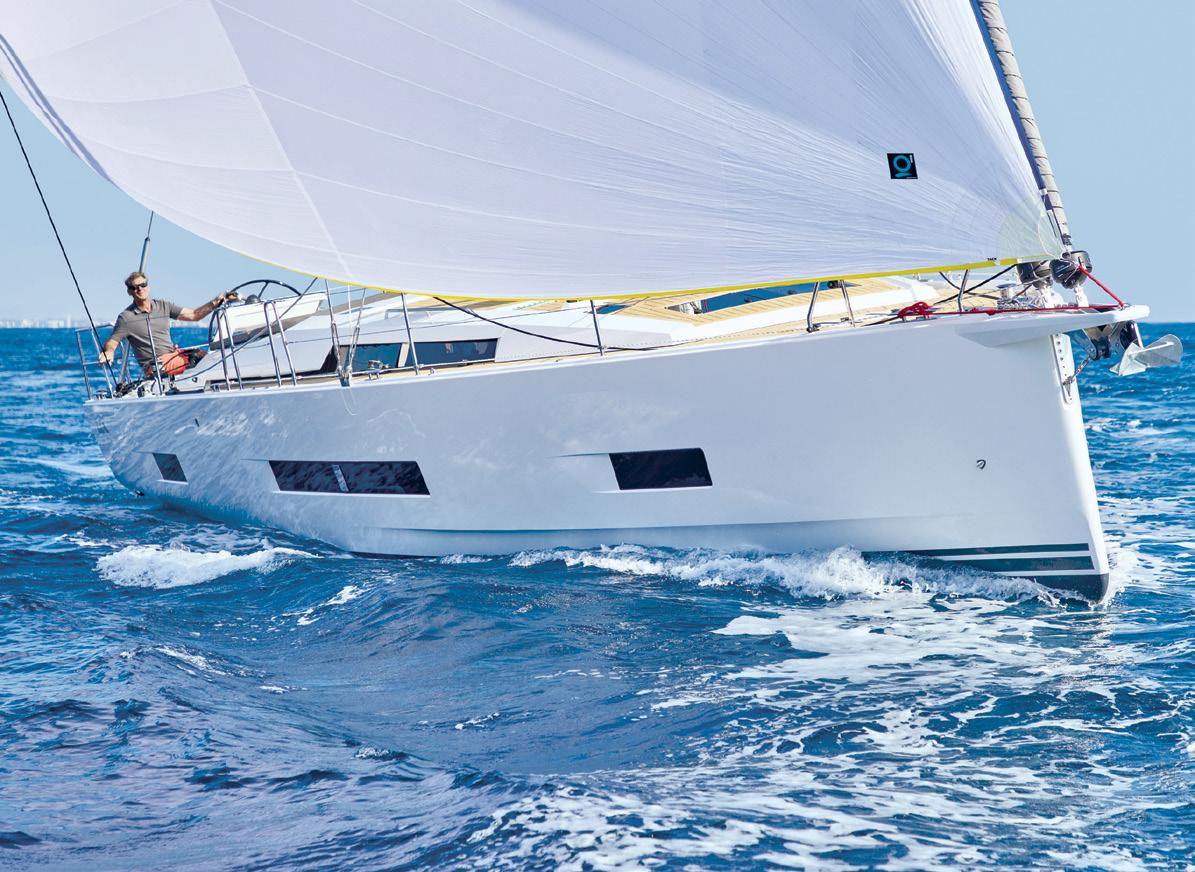












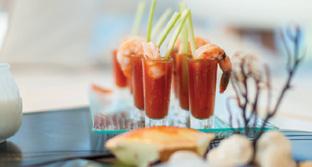
Walking a beach where the only footprints in the sand, are your own. Enjoying a refreshing drink from an island bar only accessible by boat. Waking up each morning with the flexibility to sail anywhere you wish. These experiences redefine luxury -- and are the hallmark of any yacht charter vacation.
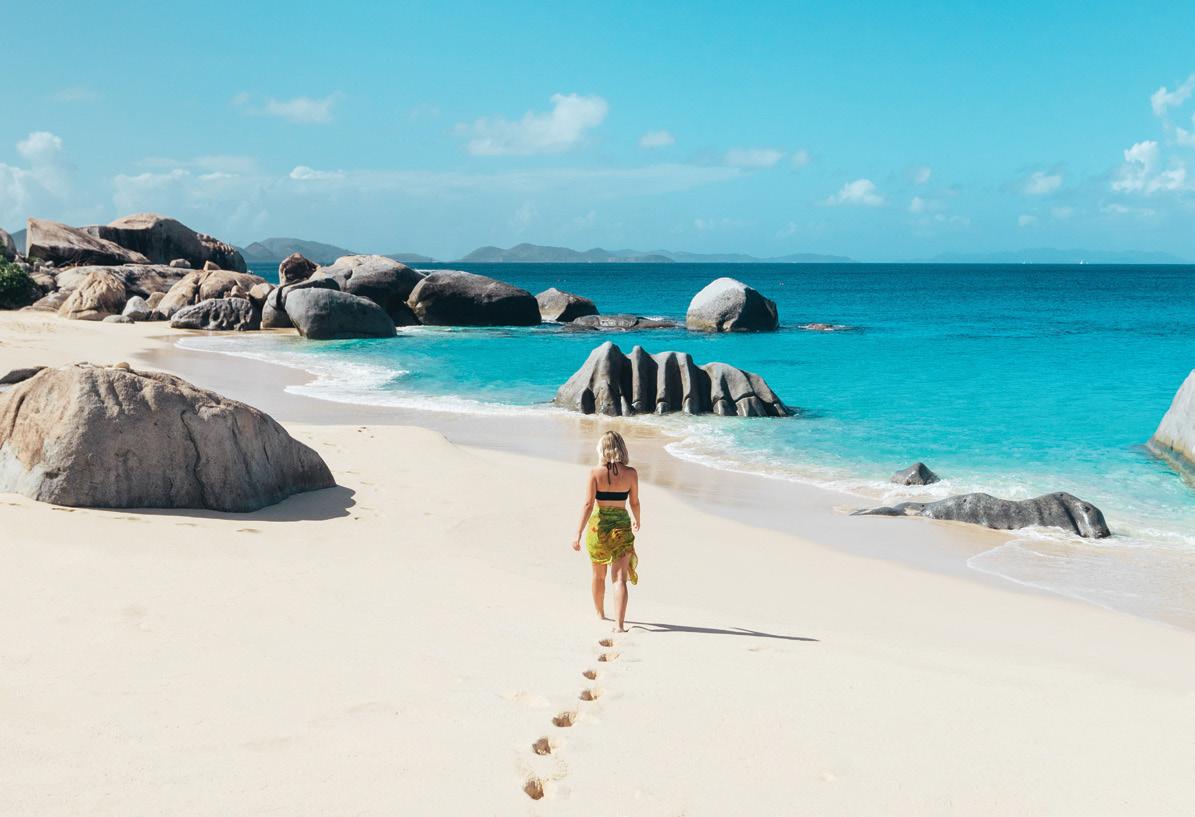
This year, we invite you to discover unbridled freedom and authentic travel experiences with The Moorings. Unforgettable moments await.

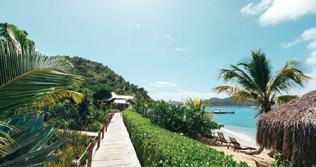
Congratulations, SpinSheet Century Club!
The official list of 2022 Centurions, as well as one motivated team who reached their 100-day goals together.
Kids Summer
What’s new at local sailing schools, what to look for in a sailing camp, and what’s in it for the kids.
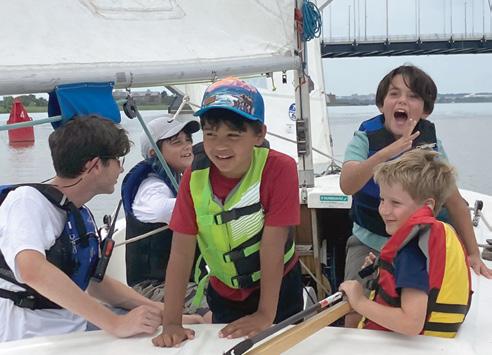
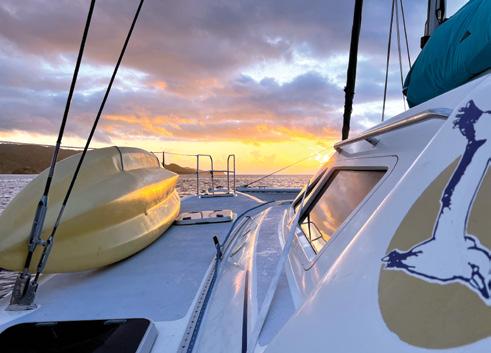 By Beth Crabtree
By Beth Crabtree
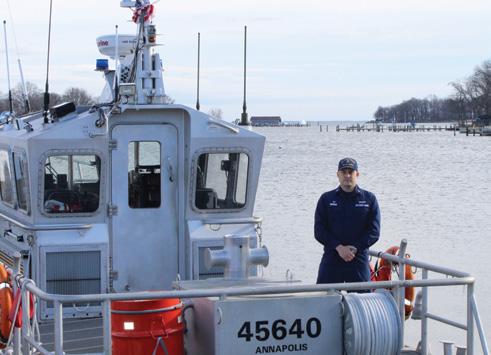
The Annapolis location is a ‘response’ station, yet its staff takes a ‘prevention’ stance to promote boater safety, education, and good seamanship.
By Beth Crabtree 46 Bluewater Dreaming: About That Thorny
A seasick zombie turned nautical cowboy finds the lessons in imperfect sailing.
By Cindy Wallach By Dr. Tim Herzog


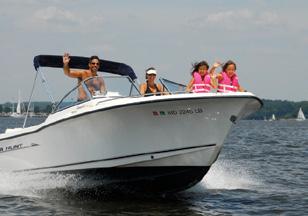
612 Third Street, Suite 3C, Annapolis, MD 21403 (410) 216-9309 spinsheet.com
PUBLISHER
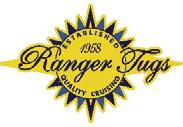
Mary Iliff Ewenson, mary@spinsheet.com
A SSoCIATE PUBLISHER
Chris Charbonneau, chris@spinsheet.com
EDIToR
Molly Winans, molly@spinsheet.com
SENIoR EDIToRS
Beth Crabtree, beth@spinsheet.com Kaylie Jasinski, kaylie@spinsheet.com
CoPY EDIToR Lucy Iliff, lucy@spinsheet.com
EDIToRIAL ASSISTANT
Kelsey Bonham
FoUNDING EDIToR Dave Gendell
ADVERTISING SALES Eric Richardson, eric@spinsheet.com
CUSToMER SERVICE MANAGER Brooke King, brooke@spinsheet.com
ADMINISTRATIVE AND MARKETING ASSISTANT Beatrice M. Roderick , beatrice@spinsheet.com
ART DIRECToR / PRoDUCTIoN MANAGER Zach Ditmars, zach@spinsheet.com
GRAPHIC DESIGNER / PRoDUCTIoN ASSISTANT Royal Snyder, royal@spinsheet.com
CoNTRIBUTING WRITERS
Kim Couranz, Chelsea Co, John Herlig, Eva Hill, Pamela Tenner Kellett, Craig Ligibel, Gwen Mayes, Lin McCarthy, Steven Toole, Cindy Wallach, Ed Weglein (Historian )
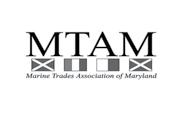
CoNTRIBUTING PHoToGRAPHERS
Walter Cooper, Ben Cushwa, Mark Hergan, Will Keyworth, Ted Morgan, Al Schreitmueller, Cindy Wallach
DISTRIBUTIoN
SpinSheet is a monthly magazine for and about Chesapeake Bay sailors. Reproduction of any part of this publication is strictly prohibited without prior consent of the officers of SpinSheet Publishing Company. SpinSheet Publishing Company accepts no responsibility for discrepancies in advertisements.
SpinSheet is available by first class subscription for $45 per year, and back issues are available for $4 each. Mail payment to SpinSheet Subscriptions, 612 Third Street, Suite 3C Annapolis, MD, 21403.
SpinSheet is distributed free of charge at more than 800 establishments along the shores Chesapeake Bay. Businesses or organizations wishing to distribute SpinSheet should contact the SpinSheet office at (410) 216-9309 or beatrice@spinsheet.com.

Member Of:
Martin and Betty Casey, Gregory G. Greenwell Sr., Dave Harlock, Ron and Colleen Ogden, John and Chrissy Wathen © 2023 SpinSheet Publishing Company
The freedom of a sailing vacation remains unparalleled, and Sunsail is here to help you make the most of every moment on the water. Comprised of passionate sailors from all over the world, our team of charter experts can help craft the perfect sailing getaway for you, your friends, and your family.
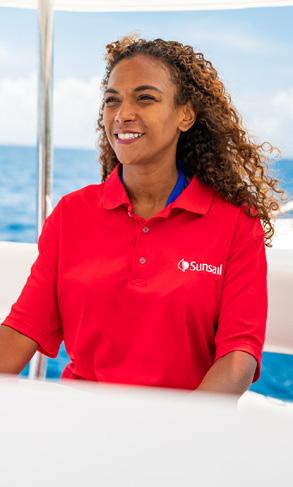
Select your charter destination from our extensive list of worldfamous cruising grounds, choose the ideal yacht for your crew, and let us help take care of all the details that make a yacht charter among the most unique, and memorable vacation experiences available today. sunsail.com

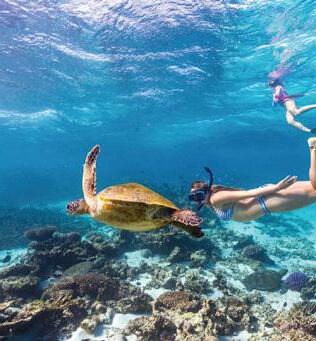
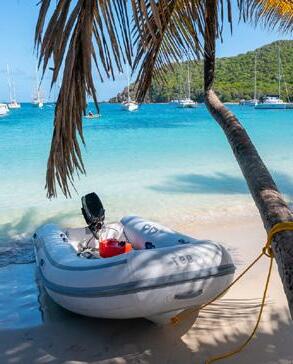
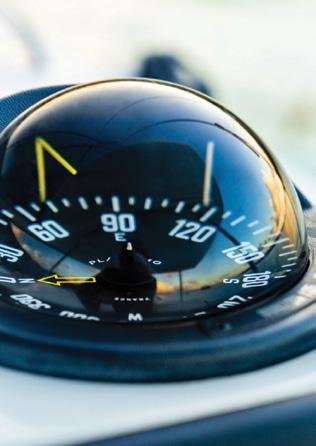


My mom used to say that life sped up as you got older. Twenty years ago, I reacted to that with an eyeball roll. Eleven years ago, Mom left this world. Now, I get it. As the years pass, my “season speedo” accelerates. Many of you understand the phenomenon. Today, ice. Tomorrow, June. Why not plan for it?
Last month for our SpinSheet Happy Hour discussion, “That Didn’t Go Well,” Annapolis sailor Ray Wulff described a scary incident aboard his J/105 Patriot in which the bowman’s hand got crunched in the forward hatch, making for a bloody broken hand and a trip to the ER. When we were done groaning and wincing at Ray’s colorful description of it, he told us the good news: they quickly delivered the bowman to the dock and hospital. He is okay.
Lesson learned? Ray’s onboard first-aid kit proved woefully illequipped for the incident. His crew solved the problem with a sock and tape. Ray urged all listeners to go out pronto and update their sailboat’s first-aid kits. Kristen Berry, another guest on the show, noted that over the
By Molly Winanscourse of the summer, crew members nibble away at the Advil supply or quietly use up all the Band-Aids, so no one knows what’s left in the med kit until an accident occurs. He recommended going above and beyond what a store-bought, marine first-aid kit would offer (go to spinsheet.com and search “medical kit” for a list of important items). February is an excellent month for sailors to check “med kit” off their lists.
You know how marine service companies get slammed in late March and April because every sailor on the Chesapeake wants their boat to be ready by the first sunny spring day? When is a good time to set up your appointment for spring commissioning work on your boat? Gold star to anyone who guessed “now.”
Speaking of gold stars, we recently learned about Gold Star Sailing, an adventure camp for children of fallen service members; thanks to Emma Powers for giving us some background on this inspiring program (page 43). It’s part of our “Kids Summer Sailing” section, because, you guessed it, ’tis the season to make reservations for youth summer sailing programs (page 38).
During sailing season, it’s not uncommon to find a lifejacket, or three, in the “trunklet” of my MINI. New sailors ask why I have so many. I enjoy educating people about my lifejackets: an inflatable personal floatation device (PFD) for big boats, a life-vest for general use, and a beltstyle PFD for warm-water standup paddleboarding. I love my lifejackets. Take this quiet month to find yourself a fitting PFD (or three) for all of the sailing and boating you do. Investing in ones you find comfortable and cool-looking will increase your chances of wearing them. This, in turn, may extend your long and safe sailing life.
While you have sailing on the brain, take stock of your foul weather gear, tech layers, gloves, socks, and duct-taped dinghy boots and replace gear beyond its prime. April sailing on the Chesapeake can be cold and wet, so prepare for it now. As Mom would say, spring will be here in the blink of an eye.
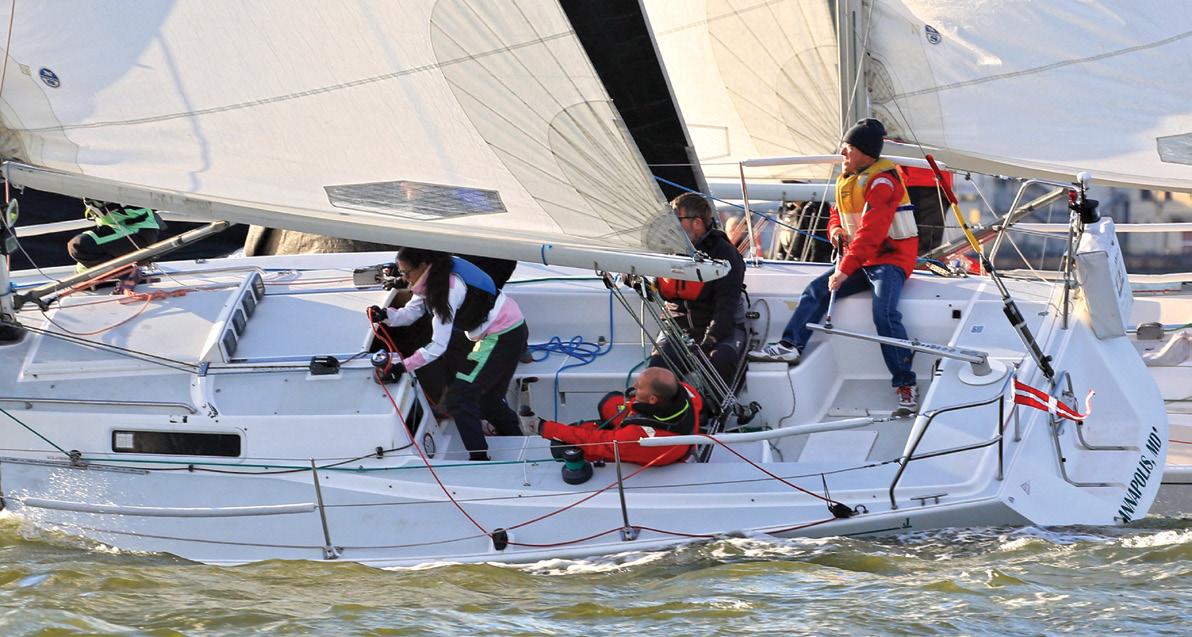
Once in a while I want to email a SpinSheet article to a friend. Is that something made available? And if so, how would I find said article? For example, the October 2022 SpinSheet page 30 article, “Science Confirms Our Suspicions.”
My brother-in-law comes down for the Annapolis Sailboat Show annually, and he recently noted how awesome SpinSheet is. We are very fortunate to have you here!
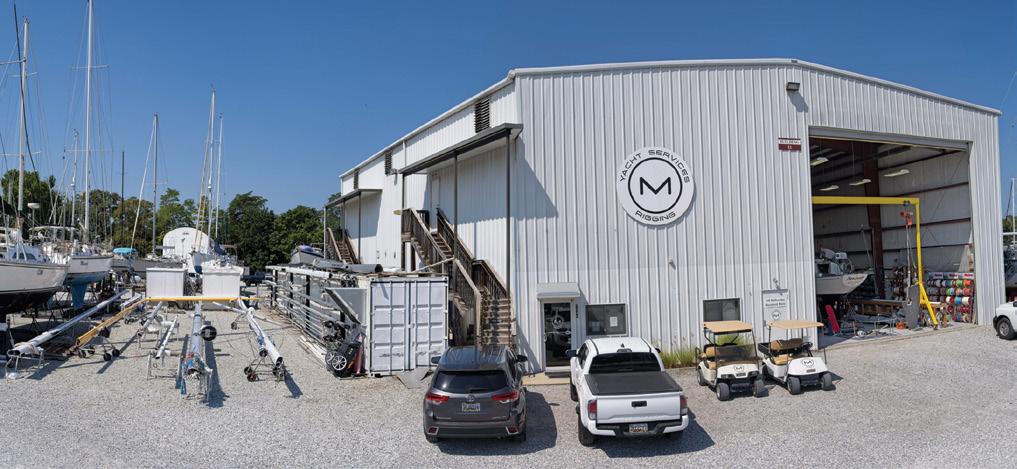 Andrew Perahia (at helm)
Andrew Perahia (at helm)

Thanks for the kind words, Andrew! Your brother-in-law sounds awesome. Yes, you may email a link to a story, but it requires a few steps. Find our current digital issue on spinsheet. com/read-spinsheet-online. Below it you will find an archive from the past year on what look like digital bookshelves. Click on the particular issue you seek; flip to the article you want to share; and click on the “share” button and envelope icon at the top righthand corner. If ever it gets confusing, feel free to email me at molly@spinsheet.com
In last month’s wonderful letter by Duffy Perkins, “Hard To Let Her Go” (page 12), I incorrectly labeled the Perkins family’s recently sold sailboat as a Tartan 34. It was a Sabre 34. Both are pretty boats! ~MW
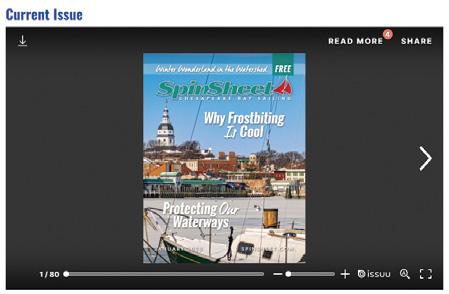
The New Year marked an important milestone for our beloved Bay Bridge—the westbound bridge turns 50 this year! Its elder eastbound sister turned 70 in 2022.
As a tribute, we thought we’d celebrate some of the highlights of the bridge’s past and present. Keep these facts handy to impress any shipmates while passing under—or over—the bridge this season.
The eastbound span opened on July 30, 1952, followed by the westbound span on June 28, 1973. At the time, the first span was the world’s longest continuous over-water steel structure. Historical accounts estimate that annual traffic on the eastbound bridge nearly doubled in the first 10 years of its use, making it clear that the second bridge was needed. Today’s traffic estimates exceed 27 million vehicles per year, as compared to just 1.1 million in 1952 and 7.3 million in 1973.
Although we affectionately and short handedly refer to it simply as the “Bay
Bridge,” it is officially named the Governor William Preston Lane Jr. Memorial Bridge after the 52nd governor of Maryland who is credited with the eastbound bridge’s construction. With all due respect to the governor, “Bay Bridge” certainly rolls off the tongue easier than its official name.
Traffic — Approximately 61,000 vehicles use the bridge daily.
Tower Height — 354 feet eastbound, 379 feet westbound.
Bridge Deck Height — 186 above water level. The Statue of Liberty could easily fit under the bridge deck, with 35 feet of clearance over the torch.
Length — 4.33 miles westbound, 4.35 miles eastbound.
Cost — The eastbound span cost just $45 million to build, as compared to $148 million to build the westbound span 21 years later. Current proposals to build a new Bay Bridge range between $5.4 to $8.9 billion to construct.
Bay Bridge Walk/Run — First held as a walk in 1975 at the request of a Towson Boy Scout leader, the annual Bay Bridge Walk/Run is a treat for people of all ages. I walked the bridge back in 1996 and will never forget the experience. The most recent walk/run was held in November 2022 and is slated to take place on November 12 this year. Find details at thebaybridgerun.com.
Bay Bridge Swim — For those who prefer to experience the full bridge length from the water level, the annual 4.4mile Bay Bridge Swim will be held this year on June 11, with a shorter onemile option also available.
Whether you drive over it by car, sail under it by boat, swim through it, walk across it, or any combination of these, the Bay Bridge never ceases to amaze visitors by its sheer size, stature, and engineering.
Birthday, Bay Bridge!
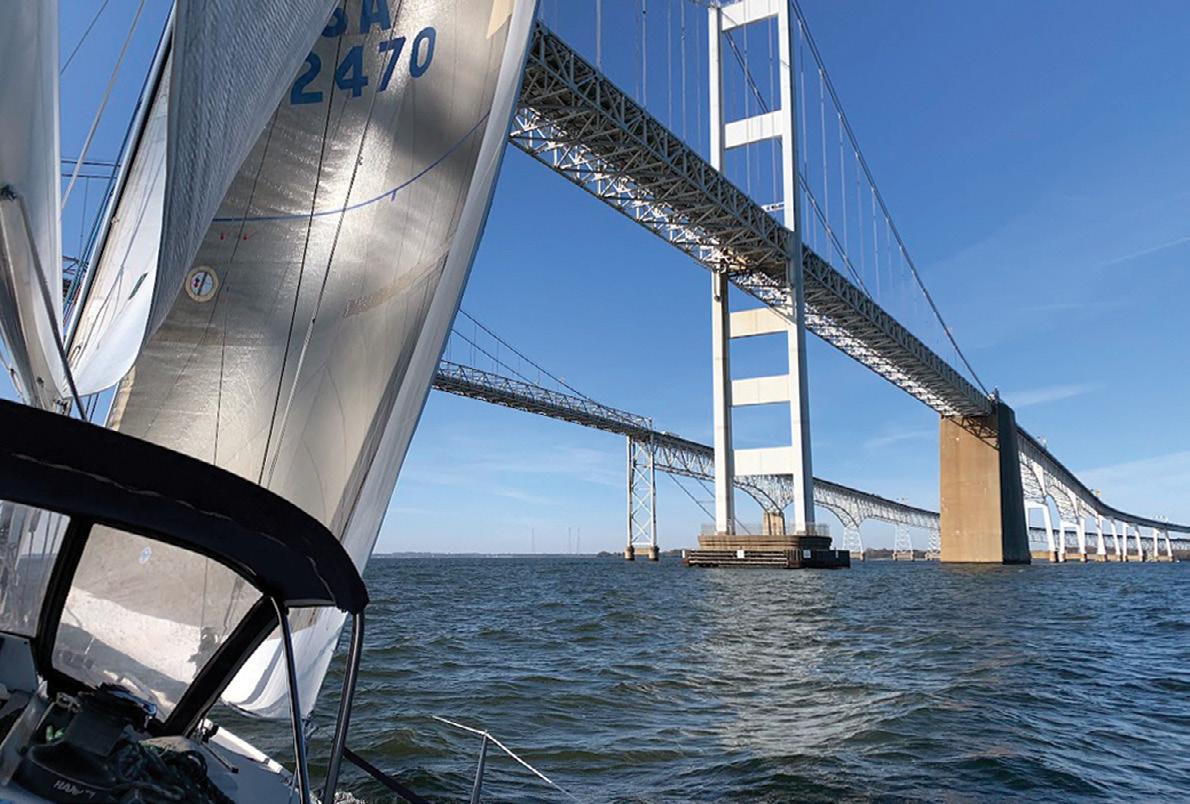


IIn December, the Chesapeake Conservancy announced the 2022 Champions of the Chesapeake, the organization’s highest honor recognizing extraordinary leaders from across the Bay for their significant and exemplary accomplishments that protect and restore our natural systems and cultural resources. Rappahannock Tribe Chief Anne Richardson and Vince Leggett, founder and president of Blacks of the Chesapeake Foundation, were named Champions of the Chesapeake for demonstrating that tireless work leads to notable achievements in conservation.
Chesapeake Conservancy president and CEO Joel Dunn stated: “Chief Richardson and Vince Leggett were the driving forces and incredible partners behind two of the most significant conservation achievements in the Chesapeake this year.”
Chief Anne Richardson has been instrumental in the return to the Rappahannock Tribe of a 465-acre sacred site at Fones Cliffs on the eastern side of the Rappahannock River. The site, known as Pissacoack, will be permanently protected by a conservation easement and used for
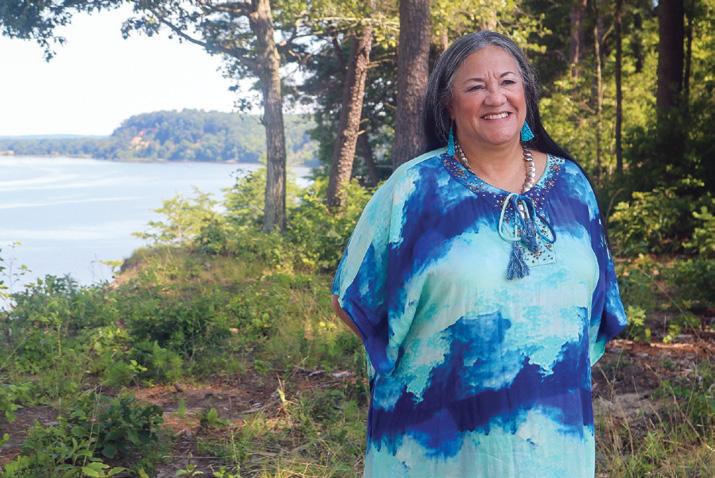
recreation and education. Also home to bald eagle nests, Fones Cliffs has been designated by the National Audubon Society as an Important Bird Area with global significance.
Vince Leggett is recognized for his efforts to preserve Black history and culture on the Chesapeake Bay. For 15 years, Leggett worked tirelessly to preserve

Elktonia Beach, a five-acre waterfront parcel on the Chesapeake Bay that is the last remnant of the original 180acre property purchased by Fred Carr in 1902. Carr’s and Sparrow’s Beaches were privately owned and operated by Carr’s daughters, Elizabeth Carr Smith and Florence Carr Sparrow. “The Beaches” (1930s-1970s), as they were called, represented the heart of entertainment throughout the mid-Atlantic region and welcomed Blacks during a time of segregation.
“Now, more than ever, we need leaders and officials who will stand up for conservation in the Chesapeake Bay region,” continued Dunn. “Chief Richardson and Vince Leggett both exemplify what it means to be a Champion of the Chesapeake through inclusivity, dedication, partnership, and collaboration. They are both role models for today’s environmental leaders and for future conservation wins.”
Learn more at chesapeakeconservancy.org
Captain Jeff Lill of the JC Widener remembers when ice formed in the Annapolis area every winter. “Before the 1990s it seemed as if every year you could count on icebreaking, but now each year there seems to be less and less,” he says. “Last year we only broke ice one day, and the last time we had significant ice was in 2018.”
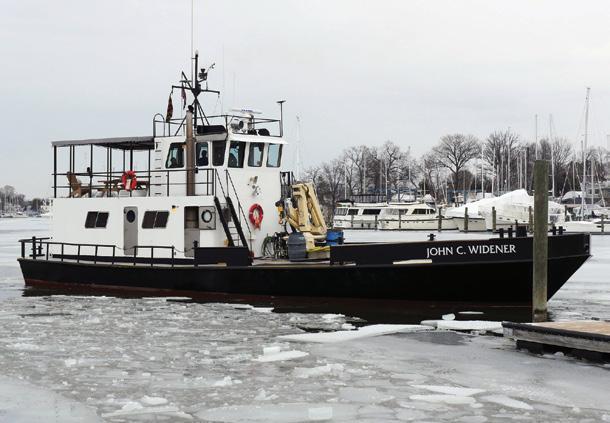
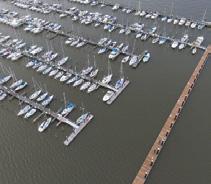
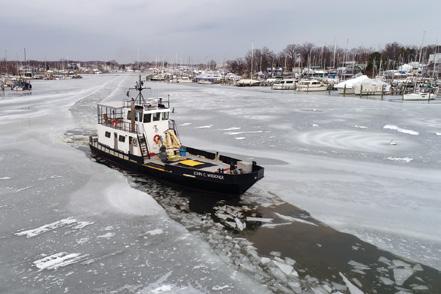
Captain Lill has worked aboard the 72-foot Widener for 28 years. Most of the year the vessel is based in Cambridge, MD, for buoy tending, but for icebreaking it moves to Annapolis. The crew of four is responsible for keeping the waterways clear in Anne Arundel County, including the Magothy, Severn, and West Rivers, and the creeks off of them. Fishing Creek gets cleared for the Coast Guard boats stationed there.
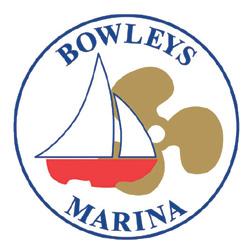
According to Lill, ice most often forms in this area during early January. This year, at the time of our interview in mid-January we hadn’t seen ice of any significance. Lill said, “Right now the 14-day forecast shows water temperatures won’t be conducive to ice before February, but you never know. We saw a big exception to the usual trend in 2014. That year we didn’t have ice until midFebruary, and we were breaking ice until mid-March, which was very unusual. That may have been the only time I’ve seen ice here in March.”
Lill says he likes to see a little ice. “A little bit of ice cleans the bottom of the boat—almost like getting a haul out for a power wash and scrap,” he says. “It gives the boat a clean bottom and a nice, clean prop. That’s one of the benefits of icebreaking!”
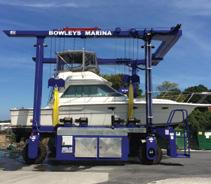
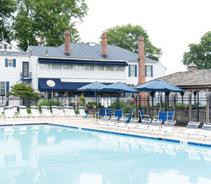

Back by popular demand, Mark Thornton of LakeErieWX will lead a three-part webinar next month on Chesapeake Thunderstorms for regional boaters (spinsheet.com/ thunderstorm-webinar). We reached out to him to learn more about his sailing and passion for weather forecasting.
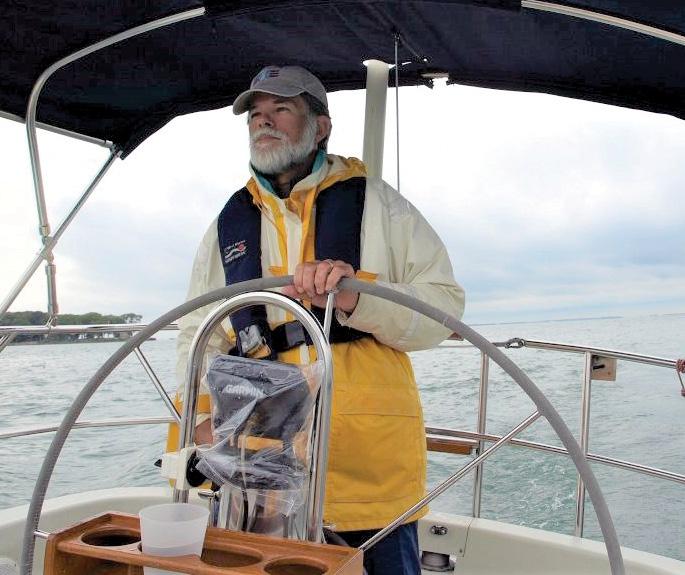
I grew up in central Illinois, so my early boating years were spent paddling. When I transferred to Cleveland for work, I met my wife. We’d been married a few years and decided on a lark to go to the Cleveland Boat Show. The local fleet of FJs was recruiting there. They said, “If you buy a boat, we’ll teach you how to sail.” We bought a used FJ and sailed on an inland lake. The boat had a main, jib, and spinnaker, so it was a good learning boat. We had a great time. After a few years, bought a 23-footer with a centerboard, sailed

that for a season, and realized it was too small for Lake Erie. We ended up with a C&C 29 and sailed all over Lake Erie for the next 13 years or so. Once we got the bigger boat, we’d go to the Annapolis Sailboat Show, a pilgrimage for us. We loved it… One year while wandering around Eastport, I saw a C&C 35 at a boatyard. Next thing you know, we bought a boat in Annapolis and shipped it to Lake Erie. That was in October 2006, and we only recently sold it and bought a MainShip 34 Pilot trawler.
There always seemed to be this giant disconnect between the marine forecast and what you’d get out there. I’m not quite sure how I found it, but in a magazine for weather forecasting I saw an ad for an online course at Penn State. I did some research and found out they were leaders in this topic. I called the lead professor, and his enthusiasm for the subject matter was extraordinary. I thought, “What the heck? I’ll sign up.” It was phenomenal. They had an online
platform to ask the professor questions. No one showed up but me, so I got to ask all my questions from sailing… As that class came to an end, the professor contacted me and said they were starting up a two-year program for folks like me who had a strong interest in the topic to be part of the test group. I did that and graduated in the fall of 2006.

for boaters?
I teach classes and webinars, such as the one I’m doing with SpinSheet in March. For the two big Lake Michigan distance races, the Chicago Mac and Bayview Mackinac Race, I do weather routing for private customers. I am also the race meteorologist for the Bayview Mac.
Can you name a time when you were tasked with weather forecasting for a regatta when you thought Whoa!?
Without a doubt it was last year’s Chicago Mac. The race started on Saturday. Beginning on Thursday, the outlook for Saturday looked really
ugly: thunderstorms to start the day with a second round of storms on Saturday night maybe all the way through Sunday morning. These were going to roll in from southern Minnesota and Wisconsin and come onto Lake Michigan right where the racing fleet would be at the same time. There looked like evidence of fast storm motion (60-70 knots of wind) forming into several squall lines with a couple-hours breather in between. Lightning, hail, and possibly tornadoes. To have that 48 hours ahead caused a lot of people to say, “Uh oh. This is not good.” Friday night I sent out my official forecast. That briefing was pretty grim. This wasn’t a “Maybe, well, there might be thunderstorms.” The question was, “How ugly will it be?” Two of my customers decided not to sail. Maybe a dozen decided not to leave. The good news is that the winds forecast did not reach 70 knots except in a few pockets.
Learn more about Mark’s thunderstorm webinar hosted by SpinSheet March 15, 22, and 29 at spinsheet.com/thunderstorm-webinar.
Annapolis Sailboat Show, booth D-5
Annapolis Sailboat Show, booth D-5
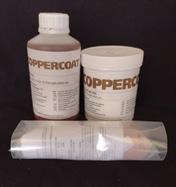
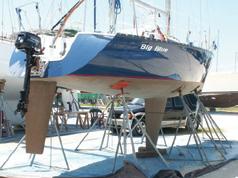
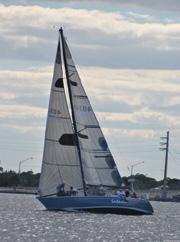


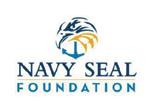



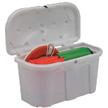
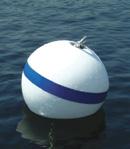
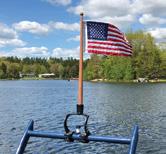

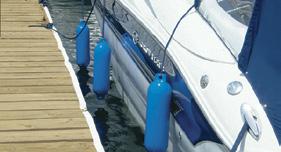
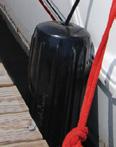
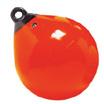
After the Ever Forward infamously ran aground outside of the Craighill Channel and several failed attempts to refloat her, Maryland approved an Emergency Wetlands License to allow for dredging to occur around the ship. The vessel was sitting within the legal boundary of Natural Oyster Bar 4-2, known as “The Lumps.” This license required the owners of the Ever Forward, Evergreen Marine Corporation, to pay an undetermined amount of money toward environmental remediation.
In June of 2022, the Maryland DNR Shellfish Division released its report of the impacts on oyster populations and habitat. The report detailed that samples revealed few oysters and little oyster habitat in the affected area. It concluded, “Aside from the deep footprint of the ship and dredging, the survey found no discernable impacts on oyster populations from the grounding of the M/V Ever Forward and subsequent activities to free
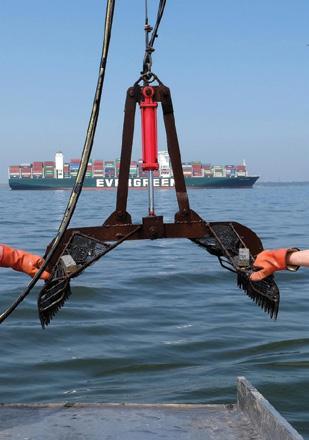
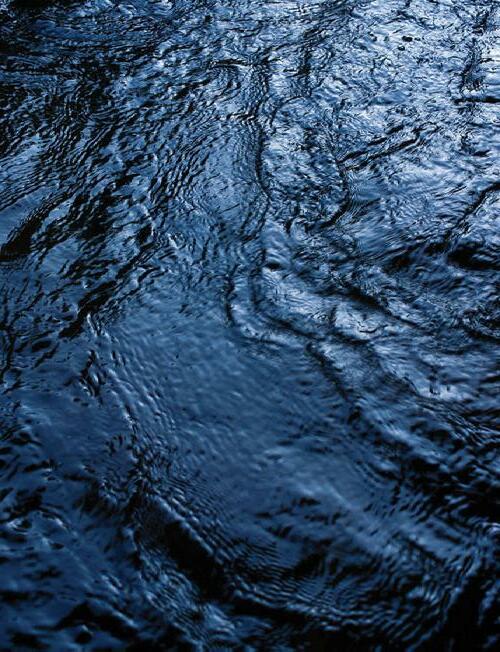 By Kelsey Bonham
By Kelsey Bonham
the ship…” because, despite being aground within the legal bounds of the oyster bar, it was still over 200 meters away from the actual historic oyster bar. This means that most of the affected area was relatively barren mud bottom.
Despite these positive findings, payment for environmental remediation was still embedded in the dredging license to free the Ever Forward. The DNR recommended to the Maryland Board of Public Works that Evergreen Marine Corporation sponsor 41 acres of oyster bar seeding and enhancement, at a cost of $676,200. The Board of Public Works approved the amendment to the license, with the finalized fee, on January 4. While the oyster seeding likely won’t occur at the exact site of the grounding, the DNR has noted that preference will be given to sites within Anne Arundel County where the grounding occurred. This is a victory for the health of the Bay—even though major impacts were not found at the site of the grounding, any event of this magnitude is
certain to have had some environmental repercussions, and this payment will go far toward restoring oyster populations and habitat.


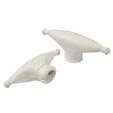
Not a frostbite sailor? Head inside for a fun, informative seminar. Here are a few options.
The Annapolis Maritime Museum (AMM) Winter Lecture Series is held Thursday evenings at 7 p.m. Register at amaritime.org. Upcoming events: Annapolis 1942 (with SpinSheet co-founder Dave Gendell), February 2; Pirates of the Chesapeake Bay, The Oyster Wars, February 9; Cartoonist at Sea, Two Years Sailing the World Through Photographs and Cartoons, February 16; Deadly Gamble, The Wreck of the Levin J. Marvel, February 23; Sea Turtles, Lessons on Sustainability from the Cayman Islands to Chesapeake Bay, March 3.
The Chesapeake Bay Maritime Museum (CBMM) in St. Michaels, MD, winter seminars include: An Archaeologist’s Perspective on Native Chesapeake Foods on February 1, Bear Me Into Freedom, The World and Writings of Frederick Douglas
on February 16, Hurricane Agnes, Fifty Years After Catastrophe on March 8, and Old Line Plate, Uncovering the Stories Behind Maryland’s Historic Recipes on March 15. Learn more and register at cbmm.org.
Haven Harbour’s Erik Lostrom will host free seminars February 25 (air conditioning, refrigeration, ice markers, generators, and shore power) and March 18 (coatings and bottom painting, paints, and varnishes) from 9 a.m. to 12 p.m. at the Inn at Haven Harbour, Rock Hall, MD). Questions? Call (410) 778-6697.
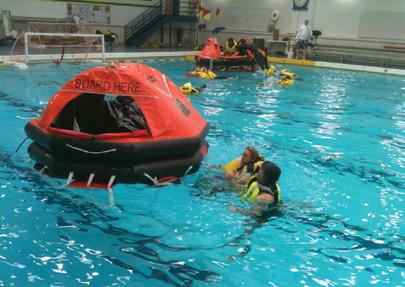
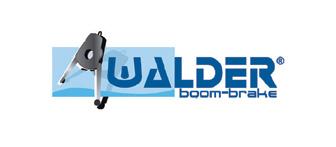
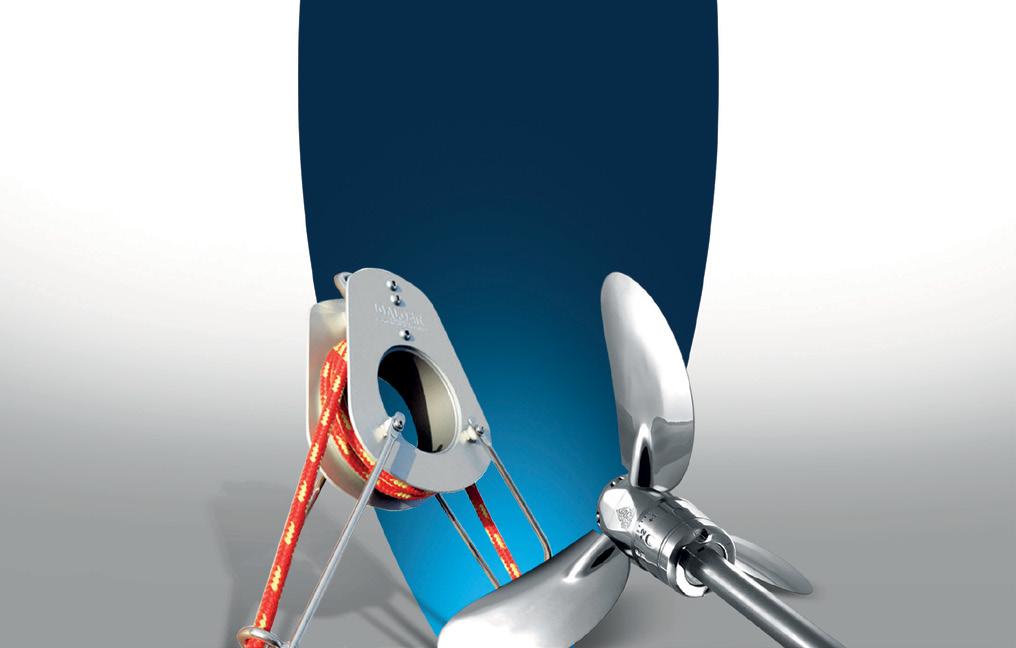
February 11 and 25 from 9 a.m. to 3 p.m. America’s Boating Club Kent Narrows will host the America’s Boating Course in Grasonville, MD. Guests must attend both days. Questions: contact Patti Eney at (773) 351-2403 or abckn.edu@gmail.com February 18 and March 4, America’s Boating Club Rockville will host the of-
ficial Maryland Safe Boating Course from 9 a.m. to 1 p.m. in Rockville, MD. To register or learn more, email jmckinney2606@gmail.com.
The Capt. Henry Marx Memorial US Sailing International Safety at Sea Course will be held March 11 at The Mariners’ Museum and Park in Newport News, VA. Register at marinersmuseum.org
Safety at Sea sponsored by the Marine Trades Association of Maryland will be held at the U.S. Naval Academy in Annapolis April 1-2. Find details and register at mtam.org/safety-at-sea
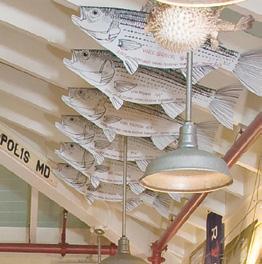
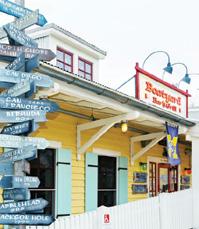
Happy Hour Mon–Thurs 3–6 pm Weekend Brunch Gift certificates available
400 Fourth St Annapolis, MD boatyardbarandgrill.com 410-216-6206
for more details and links to event websites, visit spinsheet.com/calendar
1from the Ground up: an archaeologist’s perspective on native chesapeake foods
Join local archaeologist, TimeChef, and food historian Henry Ward for a culinary exploration of recipes that celebrate indigenous foods and native cuisine of the Chesapeake Bay region. 3 to 4:30 p.m. at the Chesapeake Bay Maritime Museum in St. Michaels, MD. $8.
The first full year of World War II brings a rush of productivity to the previously sleepy Annapolis waterfront, from seaplane production to the Army Navy Game to warships being built. Annapolis historian and author David Gendell will share his extensive research into this period, including interviews with those on the scene, unique images, and original maps. 7 p.m. at the Annapolis Maritime Museum. $10.
maryland clean marina Seminar
10 a.m. at Tidewater Marina in Havre de Grace, MD. Presented by the Maryland Clean Marina Initiative to introduce the voluntary environmental certification program to new participants. Free. Advanced registration requested at: dnr.maryland.gov/boating/ Pages/cleanmarina/home.aspx
9
maryland clean marina Seminar 10 a.m. at Cambridge Yacht Club in Cambridge, MD. Presented by the Maryland Clean Marina Initiative to introduce the voluntary environmental certification program to new participants. Free. Advanced registration requested at: dnr.maryland.gov/boating/Pages/ cleanmarina/home.aspx
It has been over 150 years since the establishment of Maryland’s “Oyster Navy,” a forerunner of the Maryland Department of Natural Resources Police. It was a necessary establishment for dealing with a lucrative, competitive, and sometimes deadly industry. Lecture by Dr. Jamie L.H. Goodall, historian and author. 7 p.m. at the Annapolis Maritime Museum. $10.
Two Saturday sessions, February 11 and February 25, from 9 a.m. to 3 p.m. at Bosun’s Marine in Grasonville, MD. Must attend both days. Presented by America’s Boating Club Kent Narrows. Cost: $25 non-member adults. Free to members and ages 17 and under. Register: tinyurl.com/4exwpvjm (reservations required). For more info, contact Patti Eney at (773) 351-2403 or abckn.edu@gmail.com
At Annapolis Recreation Center in Annapolis, MD. Presented by the Maryland Clean Marina Initiative to introduce the voluntary environmental certification program to new participants. Free. Advanced registration requested at: dnr.maryland.gov/boating/Pages/ cleanmarina/home.aspx
16 bear me into freedom: the World and Writings of frederick Douglass
Honor the 205th birthday of Frederick Douglass with this unique program, which will pair excerpts from Frederick Douglass’ writing and speeches with images from Jeff McGuiness’s new book, Bear Me Into Freedom. 5:30 to 7 p.m. at the Chesapeake Bay Maritime Museum in St. Michaels. $8.
cartoonist at Sea: two years Sailing the World through photographs and cartoons
For over 20 years, Jim Toomey has been bringing the sea into the homes of millions of newspaper readers through his comic strip Sherman’s Lagoon. Jim will do a livedrawing demonstration as well as discuss his experiences living on a sailboat for two years with his family and how he managed to continue publishing a daily comic strip about the ocean while living on the ocean. 7 p.m. at the Annapolis Maritime Museum. $10.
18 Get your maryland boating certificate
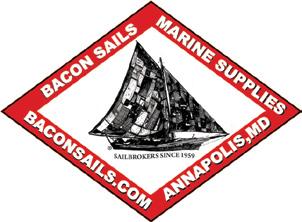
America’s Boating Club Rockville presents the official Maryland Safe Boating Course on February 18 and March 4 (Saturdays) from 9 a.m. to 1 p.m. at 9615 Darnestown Road, Rockville, MD (Montgomery County Fire Station 32). This state approved eight-hour course fulfills all legal requirements, provides you with a solid foundation for boating, and gives you a Maryland Boating Certificate which you need to legally operate a boat. $10. Registration deadline: 3 p.m. February 12. To register or learn more, email jmckinney2606@gmail.com
cmm maritime performance Series
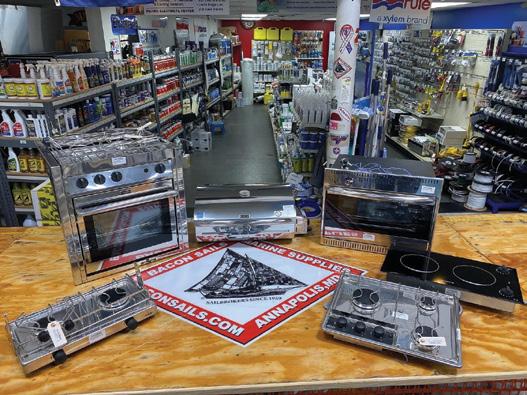
7 to 9 p.m. at the Calvert Marine Museum in Solomons, MD. Doors open at 6 p.m. Beer, wine, soda, and water available for purchase. Tickets: $20 online, $25 at the door. Live music by Ash & Eric.
Deadly Gamble: the Wreck of the Levin J. Marvel
The 128-foot schooner Levin J. Marvel foundered in Herring Bay in southern Anne Arundel County on August 12, 1955. The three-masted ship was a carrier converted to a passenger cruiser. The captain was returning to Annapolis from an Eastern Shore cruise with 23 passengers and 4 crew aboard when he encountered the wind field of Hurricane Connie. With no auxiliary power and no canvas aloft, the captain made the decision to run before the wind to anchor off of Fairhaven... Author and photojournalist Kathy Bergren Smith tells this tragic tale and its aftermath. 7 p.m. at the Annapolis Maritime Museum. $10.
ayc frostbite Series Second half Sunday afternoons out of Annapolis Yacht Club.
Inshore racing, the 360 Round Antigua Race, and the Caribbean 600, plus a lay day.

haven harbour Seminar Series 9 a.m. to 12 p.m. at the Inn at Haven Harbour’s Manor House Great Room (20950 Rock Hall Ave, Rock Hall, MD). Free and open to the public (roughly 35 attendees per class). Coffee and pastries will be provided. Session II will focus on air conditioning, refrigeration, ice markers, generators, and shore power. Seminars led by Haven Harbour Yacht Services’ very own Erik Lostrom. Questions: (410) 778-6697
Sailing through the Winter Solstice Every year, Carroll Creek Park in Frederick, MD, is filled with individually designed lighted sailboats. Vote for your favorite boat by making a contribution to the affiliated local charity to help determine the winner. You can view the boats anytime day or night; lights usually turn on at sunset.
presented by
ayc foundation event
With aspiring olympic competitors The event will feature Paul Cayard, executive director of US Sailing Olympic Sailing, Gary Jobson, and three aspiring Olympic sailors from the Chesapeake Bay area: Leo Boucher, James Golden, and Casey Cabot. Youth Event: 4-5 p.m. Free and open to sailors ages 9-22; Main event: 6 to 8 p.m. $200 fundraiser cocktail party and program for adults. VIP Dinner: 8 to 9:30 pm. A $500 fundraiser VIP dinner with Paul Cayard and Gary Jobson. VIP tickets include reserved seating at the main event. Register: bit.ly/AYCFoundation
2 Sea turtles: Lessons on Sustainability from the cayman islands to chesapeake bay
A century ago, sea turtles were once an extraordinarily desirable commodity both for food and decoration throughout the world. In this lecture, participants will learn why the Caribbean turtle fishery ended and how efforts to save turtles reveal important lessons about sustainability for other waterscapes, including the Chesapeake Bay. Presenter: Dr. Sharika D. Crawford, Professor of History, U.S. Naval Academy. 7 p.m. at the Annapolis Maritime Museum. $10.
hurricane agnes – fifty years after catastrophe 2022 marked the 50th anniversary of Hurricane Agnes, a storm that brought the most rain and wreaked the worst damage in U.S. history up to its time. With impacts from Florida through southeastern Pennsylvania, Agnes saved her strongest blows for the Susquehanna River basin, catching forecasters and riverside communities by surprise in a 400-mile rampage from the Finger Lakes of upstate New York to Maryland’s Chesapeake Bay. Author Gary Letcher will recount the Agnes story, sharing a compelling narrative that brings home the power of nature and of ordinary people in the face of epic catastrophe. 3:30-5 p.m. at the Chesapeake Bay Maritime Museum in St. Michaels, MD. $8.
capt. henry marx memorial uS Sailing international Safety at Sea course
11
This hands-on training course is to prepare you for survival offshore in demanding situations and emergencies. Presented by The Mariners’ Museum and Park in Newport News, VA, and Landfall Navigation. Cost: $300. Space is limited to 60 participants. marinersmuseum.org
18 haven harbour Seminar Series 9 a.m. to 12 p.m. at the Inn at Haven Harbour’s Manor House Great Room (20950 Rock Hall Ave, Rock Hall, MD). Free and open to the public (roughly 35 attendees per class). Coffee and pastries will be provided. Session III will focus on coatings and bottom painting, paints, and varnishes. Seminars led by Haven Harbour Yacht Services’ very own Erik Lostrom. Questions: (410) 778-6697
old Line plate: uncovering the Stories behind maryland’s historic recipes
For generations, cookbooks have raised money for churches and charities, while also documenting regional food traditions. A recipe inside one of these books can tell the story of a meal, a cook, and even a community. In this talk, culinary blogger Kara Harris will dig deeper into the stories of the lives lived between the meals, and the culinary legacies left behind. 5:30 to 7 p.m. at the Chesapeake Bay Maritime Museum in St. Michaels, MD. $8.
22 understanding and avoiding thunderstorms on the chesapeake bay Webinar
Three-part webinar for all boaters by weather expert Mark Thornton about various types of thunderstorms, how they form, their timing and lifespans, and resources for understanding more. Participants will have access to the recordings in case they miss a session or want to review it later. March 15, 22, 29 from 7 to 8:30 p.m.
24 cmm maritime performance Series
understanding and avoiding thunderstorms on the chesapeake bay Webinar
Three-part webinar for all boaters by weather expert Mark Thornton about various types of thunderstorms, how they form, their timing and lifespans, and resources for understanding more. Participants will have access to the recordings in case they miss a session or want to review it later. March 15, 22, 29 from 7 to 8:30 p.m.
capca captain’s License renewal
Captain’s License Renewal for OUPV and Master up to 100 tons. This is a renewal class; you must already hold a US Coast Guard license. Time: 7:30 a.m. to 5 p.m. Location: Annapolis Elk’s Lodge, 2 Pythian Drive, Annapolis, MD 21037. Cost: $200 for CAPCA Members, all others $240. Register: capca.net/ classes. This class is presented by the National Seafarers Academy (NATSEA) in conjunction with CAPCA. Questions? education@capca.net
7 to 9 p.m. at the Calvert Marine Museum in Solomons, MD. Doors open at 6 p.m. Beer, wine, soda, and water available for purchase. Tickets: $20 online, $25 at the door. Live music by The Eastman String Band.
29 understanding and avoiding thunderstorms on the chesapeake bay Webinar
Three-part webinar for all boaters by weather expert Mark Thornton about various types of thunderstorms, how they form, their timing and lifespans, and resources for understanding more. Participants will have access to the recordings in case they miss a session or want to review it later. March 15, 22, 29 from 7 to 8:30 p.m.
iLca frostbite racing Series 2 Sundays out of Severn Sailing Association, Annapolis.
ayc frostbite Series Second half Sunday afternoons out of Annapolis Yacht Club.
Ibecame interested in bald eagles while writing a novel set at Blackwater National Wildlife Refuge. Blackwater, near Cambridge, MD, is a designated sanctuary for migratory birds, a relative midway point along what is known as the Atlantic Flyway. I thrive on immersing myself in the settings I write about, so I enjoyed visiting Blackwater frequently. I’d study a different landscape feature that corresponded with my story each time. However, it wasn’t until my most recent visit that I had my first eagle encounter.
I scanned the treetops for eagle nests as I drove along Blackwater’s scenic Wildlife Drive. They’re not difficult to spot; the large, dark masses of leaves and sticks stand out among the branches of the Loblolly pines. Average nests are four to six feet in diameter and three feet deep. I saw a few nests in the trees as I inched my car through the pine forest, but no roosting eagles. Wildlife Drive opens to a marsh and bay past the forest. Stands of tall pines mingle with tree-lined islands in the distance. While creeping along in my car, I saw two eagles land in a solitary tree in the water. I pulled over and reached for my binoculars to get a better look.
The mighty eagle’s cry that we know from the movies is far from what they actually sound like. Their call sounds closer to a musical piping chitter, something you might expect from a fancy bird with colorful plumage. I observed the eagles with my binoculars high up in
 By T.J. Butler
By T.J. Butler
the tree, looking at each other, cocking their heads, and chittering excitedly. Listening to their conversation felt like sharing a private moment with them.
Three wildlife photographers pulled over nearby. We struck up an easy conversation. I asked about the eagles. They delivered, sharing facts, tips for spotting them, and where I could see more. I was glad for the insider knowledge and took a few notes. I learned that bald eagles are no longer an endangered species. Our region is home to one of the largest populations in the country. They prefer rural areas near the Bay and its many rivers. Spring and autumn are especially good viewing seasons when migrating bald eagles from other parts of North America visit.
Continuing along the Wildlife Drive, I saw a large treetop nest across the water. I was excited at the possibility of seeing an eagle come home to roost. None did. Instead, I was treated to a gorgeous sunset beyond the trees.
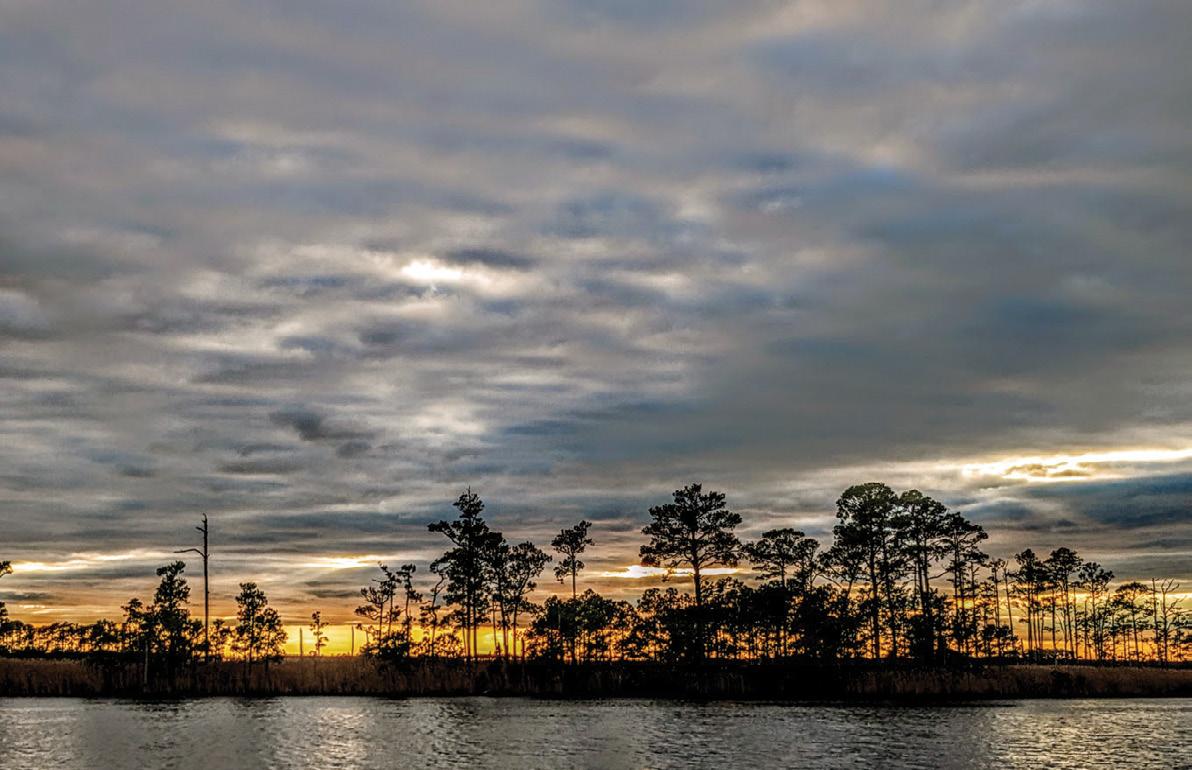
The photographers noted the Conowingo Dam on the Susquehanna River as a popular winter viewing and photography spot for eagles. They warned me that the area was cold and windy, and spectators had to be patient while waiting to see them. This wasn’t part of my novel research; Blackwater’s eagles sparked my curiosity, and I wanted to see more of them in the wild. A few days later, I dressed warmly and packed a good pair of binoculars.
I wasn’t prepared for the dam’s upbeat atmosphere and camaraderie. I knew there would be photographers, but I didn’t expect to find crowds of them. The parking lot was almost full. The mood in the viewing area overlooking the dam was quite festive. Photographers were chatting. Some were having lunch. I saw photographers wave to people they knew. Everyone was friendly. When eagles appeared overhead, the first to spot them would call out, and everyone would rush to peer through their long telephoto lenses.
After mostly keeping to myself since the pandemic, my experiences meeting others at Blackwater and Conowingo felt like I was part of something larger. We were all gathered for the same purpose: the collective hope that we’d bare witness to bald eagles soaring high over the water and swooping down from the air to dive for fish. My novel is complete, but my journey with eagles has only begun.

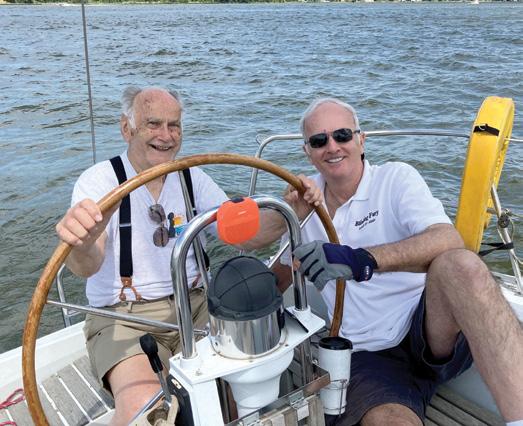 By Beth Crabtree
By Beth Crabtree
Rick Schmitt grew up in New York City, hanging around a marina owned by his father and his father’s father before him. The boatyard and marina offered plenty of opportunities for adventures (and misadventures), including the chance to mess around on a small sailboat and figure out how to sail. Here Rick shares a bit about how sailing became a lifelong interest and hobby.
“I didn’t really know what I was doing with that little nine-foot sailboat given to me at my dad’s marina, and in such a confined space it was inevitable that I bumped into some of the boats docked there,” says Rick. “But the customers, most of whom had watched me grow up, didn’t seem to mind too much,” he adds with a chuckle. “Sometimes I’d take out my girlfriend, Joanne, and we had a lot of fun.”
Years later while vacationing in the Caribbean, Rick and Joanne bought tickets for a midnight sailing cruise. As the boat healed under the stars, they reclined topside, leaning against the cabin, feet on the gunwale, listening to music, and drinking rum drinks. The memorable night convinced Rick that he wanted to do more sailing.
Eventually the couple moved to Maryland, bought a home, and started a family. Rick opened his chiropractic practice. Life was busy, but Rick made time for sailing.
“In 1985 while I was taking a sailing class held at Bowie High School, Joanne and I went to a winter boat show in Washington, DC, ‘just to look.’ Impulsively we bought a 35-foot Elite cruising sailboat. The boat that we’d be taking home was the one on display, so we went

back to the show the next day with bottles of champagne, sat in the cockpit, and offered a glass to anyone who wanted to tour the boat and celebrate our purchase,” he recalls.
Life’s twists and turns
The couple still has that same boat. The keep it in a slip in Londontown, MD. For decades Rick has cruised out of the South River about once a week with friends after work. “We bring wine, food, and music and have a lot of fun,” he says. Years ago, Joanne and Rick also bought a 30-foot Donzi powerboat to enjoy as a family as the kids were growing up.
Rick’s introduction to sailboat racing came after a chance meeting with Fred Mertz, the original owner of the Schock 35, Blinding Fury. “In spite of my lack of racing experience, after we sat and talked about sailing, I guess Fred figured I’d make good crew,” says Rick. “He invited me to race with him, and eventually I brought along my good friend Rob. The two of us, along with one or two others, became Fred’s core crew. I was usually on the bow.
We did several overnight races, won the Governor’s Cup one year, and I earned my captain’s license. Life was good.”
After about 13 years of sailing together, illness forced Fred to sell Blinding Fury, which was purchased by SpinSheet staffer Eric Richardson. “I thought my days racing Blinding Fury were over,” recalls Rick, “but just before Fred passed, he asked the crew to take his widow, Susan, sailing on his birthday. Eric graciously took us all out, and a few of us ended up becoming crew for Eric! We race in the EYC Friday Night Beer Can series, the AYC Frostbite races, and an occasional distance race.”
Rick says, “After selling his marina, my father moved to Rhode Island. He always enjoyed coming to Maryland to sail with me. After his retirement I convinced him to move down here by dangling the prospect of regularly sailing with me. He made the move, and we still go sailing together. Dad, aged 95 years, and I look forward to more sailing next summer.”
hold your phone’s camera over this code for a short video in which rick gives suggestions on how to learn to sail.



Often when new sailors dream of sailing a boat, they imagine summer sun and warm breezes. While it is true that more sailing is done during the summer months, sailing happens all year round here on the Chesapeake Bay. Most Chesapeake region sailors who are on the water through the winter months are racing sailboats. Such races are called frostbite regattas, but cruising sailors are on the water too.

Many sailors are also active in other winter sports, so they already own the right kind of winter-weather outdoor wear. Layers are important, beginning with a base layer that wicks moisture (one can work up a sweat frostbiting!), a mid-layer for warmth, and a top layer to block the wind and any spray from waves. A warm hat is key. Long underwear on the legs is common, as are wind- and water-resistant pants.
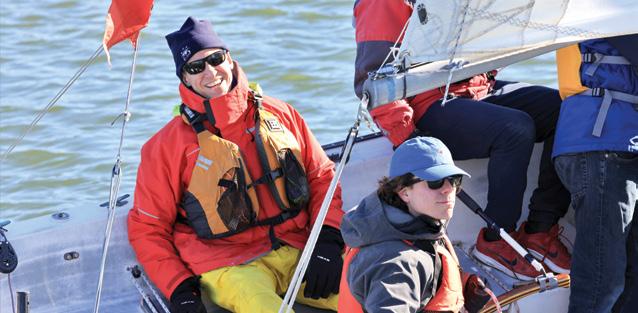
For the feet, a thermal sock can work wonders, especially when paired with a boot that is lightweight and has good traction. Hand and foot warmers go a
long way if you’re out for an extended period. To cover hands, look for a glove that will give you as much finger mobility as possible and some “friction” on the underside so that you can get a good grip on ropes and other equipment. Wind and water resistance are important for hands too. You may want a base layer glove and a top layer glove.
When it’s really breezy, a buff (neck warmer) provides warmth and may
from
be pulled up over the mouth and nose. Sunglasses not only protect the eyes from the sun’s harmful rays, but they also keep the eyeballs warm when the breeze is in your face. Finally, a lifejacket is essential when sailing on cold water. Even if you’re a good swimmer, the combination of cold water and all those clothes would make swimming almost impossible. Plus, a lifejacket adds another layer of warmth!
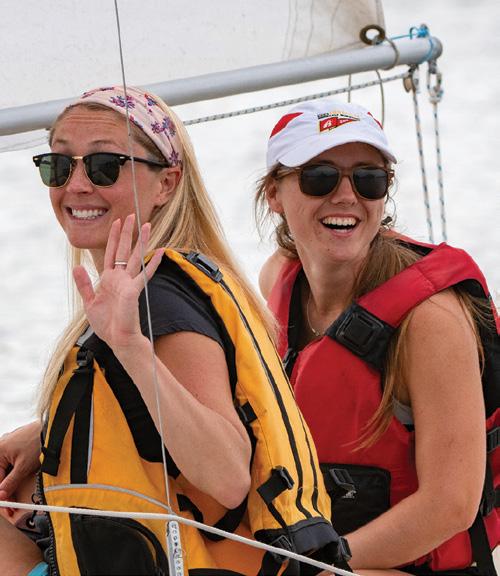
New sailors or those returning to sailing may want to seek instruction or coaching at a sailing school or club. Many such organizations exist on the Chesapeake Bay and its tributaries. They offer certifications for beginners, returning sailors hoping to brush up on seamanship skills, cruisers seeking bareboat chartering or navigation experience, and racers wanting to hone their skills. The following is a sampling of schools and clubs that offer sailing instruction on the Chesapeake. For a more complete list of schools offering certifications outside this region, visit US Sailing or American Sailing Association.
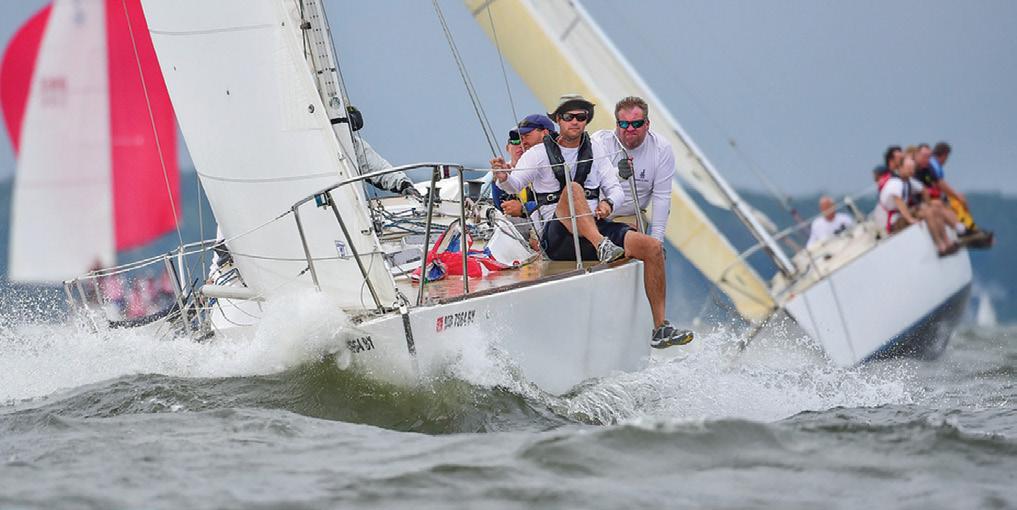


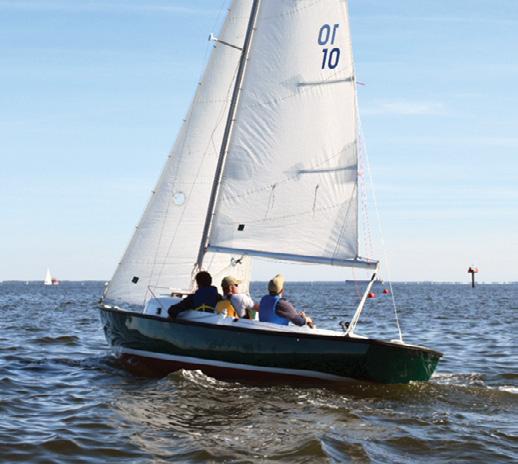
• Annapolis Sailing School annapolissailing.com
• Annapolis Naval Sailing Association ansa.org
• Blue Water Sailing School bwss.com
#
• Captain In You Sailing Schools, Inc. captaininyou.com

• DC Sail dcsail.org
• J/World Annapolis jworldannapolis.com
• Rock Hall Yacht Club Sailing School rhycsailingschool.org
• Sailtime sailtime.com/annapolis
• Sail Solomons sailsi.com
• West River Sailing Club learn2sailwrsc.com
Following are the names of the official members of the SpinSheet Century Club 2022 in alphabetical order by first name. To qualify for this extraordary club, members logged at least 100 days on the water within the calendar year on any type of vessel, including sailboats, powerboats, kayaks and other paddlecraft, and personal watercraft. Members were permitted to count up to 10 land-based or dockside boat-work days. They posted their final year-end tallies online by January 5.
Besides bragging rights and the joys of spending an incredible amount of time on boats, SpinSheet Century Club members earned an invitation to our February 4 awards party with beer and cake, where they will receive their 2022 burgees and celebrate with members of the SpinSheet Racing Team, powered by Team One Newport.
Alan Bomar
Americo Cottely
Andrew Shingledecker
Ashley Love
Aubrey Marino
Bill Wheary
Bob Gallagher
Bob Ohler
Brian Robinson
Bruce Hamilton
Carol Ross Casey Firth Chris Valentino
Cindy Wallach
Colette Bailey
Cynthia C. Dave Nestel
David Stalfort Don Frick
Dorian Haldeman
Doug and Becky Firth
Drew Mutch
Ed Tracey Eric E.
Eric Packard
Erin McNamara
Glenn Robertson Gregory Welker Haley Varner Hannah Dickmyer
Hilary Howes Ian Morrison Jack Regan Jaco C. James Ronayne Jane Millman
Jayne Durden
Jeff Joy Jeffrey Moore Jeremy Salkin
Jerry Lee
Joe Cummings
John Burke John Mecca
Jonathan Nepini Jordan Stock
Jose Turcios
Julianne Fettus
Keith Chapman Keith Donald Kelly McMurray Kevin Littell Kevin Wood Kristen Robinson Laura Ladenheim Leah Burman
LeAnn Myhre Maddy Ploch Mark Witte Mason Cook Matthew Coyle Michael Jewell Michele Ward Mike Christman Mike Gomez Mike Pitchford Mischelle Wilbricht
Naia Wallach Nancy Herman Nathan Younge Nikki Bruno Pam Corwin
Raymond Bay Rayned Wiles
Regan Littell Richard Turman
Robert Alusic Robert Marino
Robin Witte Russ Borman Sean Martin
Stefanie Brady
Stephanie Sams Steven Birchfield
Suzanne Carter Suzanne Fryberger
Terry Rapp Terry Slattery Thomas Birchfield
Tim Etherington
Timothy Dull Trevor Perkins Varner Burke
Vicki Saporta Viet Nguyen Walt Bailey
To learn how you can become a member of our 2023 club—which will be our 10th Century Club class to finish— visit spinsheet.com/century-club and start logging your days. Send questions and comments to editor@spinsheet.com.
This year, four members of the Solomons-based Barba Roja crew all worked together to complete the SpinSheet Century Club. Boat owner Steven Birchfield says, “Brought together by our love of racing on the Barba Roja, we all embarked on the Century Club for different reasons and took different approaches to reach the finish line.”

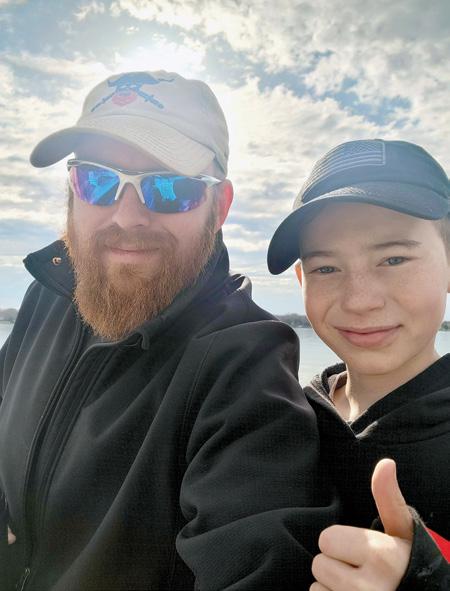
“This year my fellow crew members will cross the finish line with me with 100 days on the water,” I told myself. With this being my fourth year in a row to complete Century Club, I really wanted to share the fun and enjoyment of being on the water with my crew aboard Barba Roja. My son Tommy made it for the first time last year, and if it weren’t for my sailing addiction, he would have more days than me again this year!
Between day-sailing and racing, I start January 1 and continue the whole year. The team that sailed together could in fact cross the finish line together. My designated helmsman Jonathan Nepini, my mainsail trimmer Bob Ohler, and of course, my own sailing prodigy Thomas Birchfield all made the cut this year with me. Century Club started as a personal goal to get out on the water more on my own boat. Although my goals have changed in the past few years, shifting more towards racing, teaching, and photography while on the water, the Century Club remains the primary motivation to get me to complete the rest. Tommy however... well he is just a 13-year-old sailing addict without a cure!
I have known about the Century Club for a long time; however, working full time prevented me from having any chance of getting out on the water 100 times until this year. Now retired, I set a goal for myself to reach the Century Club for the first time. Since our sailboat is a half hour from home, I purchased a kayak to help me get to 100 days. I was racing on Barba Roja, sailing our Cape Dory 30, kayaking as much as possible, and I was on track. Then, in September, while working on “day 85,” I tore my bicep tendon.
I am lucky to have friends, crew, and my son who would do anything necessary to get me those other 15 days that I needed. I continued to race on Barba Roja, but strictly as a tactician. My friend Steve Birchfield got me out on the Southern Maryland Sailing Association (SMSA) chase boat several times. On December 5, I singlehanded for the first time since my surgery. That set me up for success. On December 10, my son Dave and I went fishing. We celebrated my 100th day on the water as well as his 40th birthday.

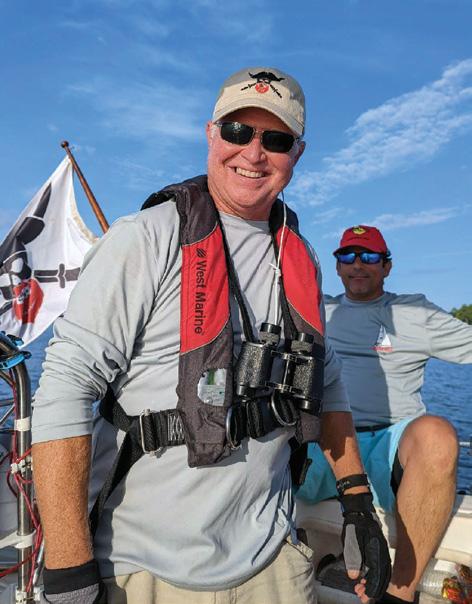
After getting into sailing last year as crew on Barba Roja and informally logging about 50 days, I decided to go for Century Club as a motivator to get out on the water more often. As the only watercraft I currently own is a paddleboard, I thought it would be an interesting challenge to see if I could make 100 days mostly on others’ boats. Steve asked me to take over as helmsman so that he could focus on tactics, teaching new crew, and photography during races. I took advantage of every invitation to go boating and enjoyed a full calendar of racing, many cruises with friends, race committee for dinghy racing at SMSA, and a lot of paddling to fill the gaps. Throughout the season several friends on the Barba Roja crew bought their own boats, so I had many opportunities to sail with friends and build my skills.
While the beauty of the water draws most to the Eastern Shore, for photographer Robert Sullivan, it’s the often-forgotten landscapes, cemeteries, and abandoned homes that catch his eye.
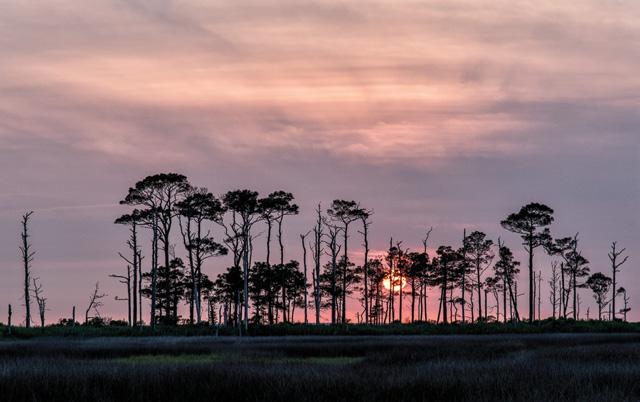
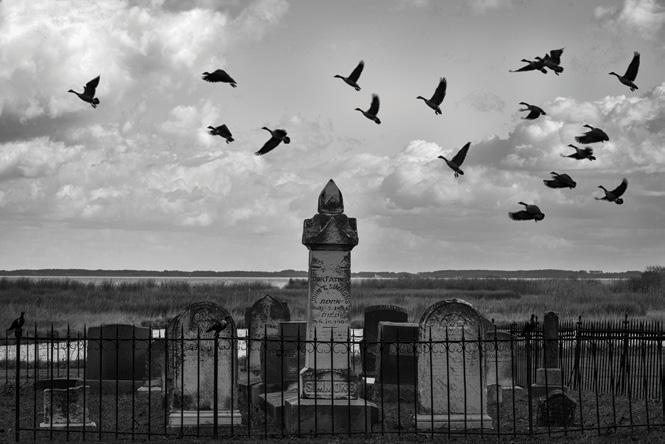
What’s going through your mind when you’re on a shoot?
I ask myself “why?” What about this specific image or scene do I want to convey. I’ve been taking pictures long enough that this question is automatic, but it’s still the most important one to ask. Mostly, it helps me focus.
I want viewers to feel what I feel. To do that, I’m always looking for something unique to make the picture pop. Otherwise, it can look like what everyone else is doing.
Ever since I was a teenager, I’ve had a love of photography and film. I studied both while in college, and, of course, made a living doing something completely different upon graduation. I never stopped taking pictures. At some point I realized I needed to develop my skills further. I’ve taken classes and workshops, watched countless videos, and still study and look for ways to improve. “Working to improve” keeps me young.
How would you describe your work to others?
I want my photographs to tell a story. I look for the unique angle, lighting, or motion that instantly creates a story in someone’s mind. I put them in the scene to experience what I’m seeing, even if just for a few seconds. Photography is just a license to explore, which is all I really want to do.
What about Hoopers Island captures your attention?
Although it’s not all that I do, one of my passions is landscape photography. Nothing beats Hoopers Island. As soon as you cross the bridge onto the first island, you realize you’re somewhere special. I was crossing the second bridge one stormy evening when the moon was peeking through the clouds. I stopped my car in the middle of the road and started taking pictures. I love the marinas, the cemeteries, the winding road, those bridges, the history.
How do you capture the ‘unusual’ in your work?
I always look for details that might make a picture special. It’s a process of constantly looking, sometimes waiting for the elements of a scene to come together and simplifying so that the viewer is directed to the most important elements of the picture. It helps to be endlessly curious and eager to do what hasn’t been done before. Often, I will research a place and talk to people beforehand, so I understand the life that goes on behind the obvious.
What’s planned for early 2023? I’m always exploring old properties to shape my workshops. On February 22, I will lead a sunrise workshop in conjunction with Dorchester Center for the Arts at Blackwater Wildlife Refuge to catch the wildlife when they are most active and the sun is constantly shifting.
On May 20, in conjunction with the Maryland Photography Alliance, I will lead a nighttime workshop on Hoopers Island to explore working with low lighting and to discuss photographing the Milky Way. How do folks register for your workshops or view your work? Register at workingimagephotography. com or reach me via email workingimage@fastmail.com. Find me on Facebook under my name and on Instagram @working_image.
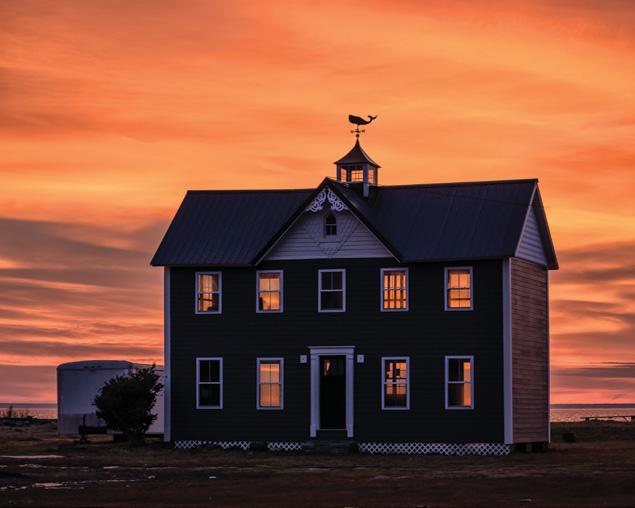
About the interviewer: Gwen Mayes is a writer, life coach, workshop host, and docent for the Annapolis Maritime Museum and Park. Find more about her work at anchortoself.com.

Looking for a slip for your sailboat? Find the perfect home for your boat in SpinSheet’s Chesapeake Bay Marinas Directory! Click to the online directory listings for more information and direct links.
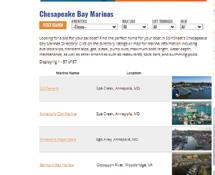


From 2007-2017, The History Channel aired a reality TV series called “Ice Road Truckers,” accounting the courageous routine of navigating tractor-trailers across frozen lakes of Canada’s Northwest Territories. The 2004 animated film “The Polar Express” contains an exhilarating, albeit fictitious scene of a passenger steam train sliding uncontrollably across a frozen body of water, presumably near the North Pole where it was headed that night. But could a freight train traverse a frozen body of water here in the warmer climes of our Chesapeake Bay? It can, and indeed it did.
The winter of 1952 was particularly frigid, completely halting ferry traffic across the frozen Susquehanna River. The first railroad bridge to cross the river wasn’t built until 1866. Until then, ferry boats transported passenger and freight rail cars across the river about .8 miles between Havre de Grace and Port Deposit, en route between Philadelphia and Baltimore. With the Susquehanna unexpectedly frozen over that cold winter, an alternative approach was needed.
By Steven Toole
More than 150 years before viewers enjoyed watching the icecapade-like transports of “The Polar Express” and “Ice Road Truckers,” officials at the Philadelphia, Wilmington, and Baltimore (PW&B) Railroad Company had a simple—yet risky—vision of rails on ice to resume transportation service over the frozen solid Susquehanna River.
Completed on January 15, 1952, the railway carried freight trains right across the frozen surface of the river. Historical accounts estimate that
1378 rail cars carried 10,000 tons of freight over the course of 40 days before the tracks were removed and ferry service resumed. Horsedrawn sleighs carried passengers while simultaneously towing the freight cars on rails across the ice. Not a single incident was reported throughout the endeavor.
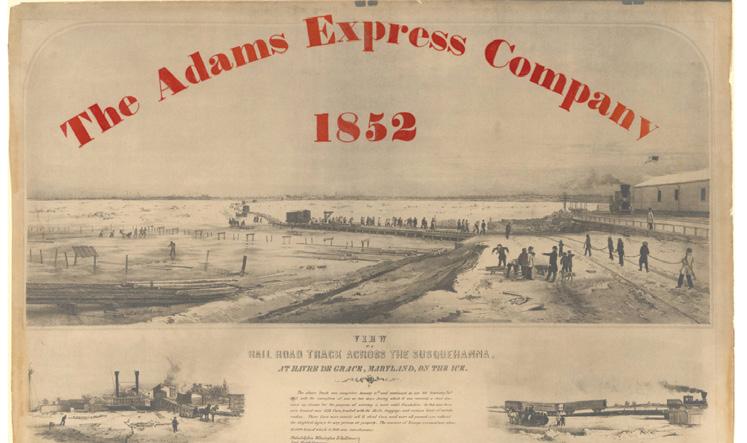
Railroads in other parts of the country followed suit in the decades that followed, including an ice bridge over the frozen St. Lawrence River in 1860 and one over the Missouri River in 1979.
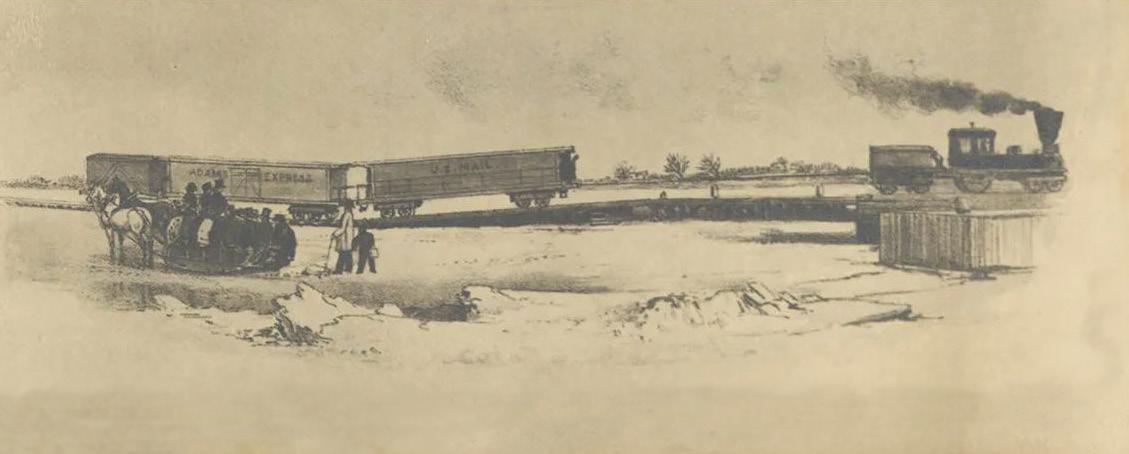
Today, the I-95 Millard E. Tydings Memorial Bridge carries more than 75,000 vehicles daily across the Susquehanna River, and more than 100 passenger trains traverse the Amtrak Susquehanna River Bridge daily near the site of the ice river bridge of 1852.
Down below today’s bridges lies the original port town of Havre de Grace. Once a community of oyster and crab harvesting and fruit orchards, the town is now an attractive destination for visitors and tourists coming by car or by boat, offering an array of restaurants and bars, breweries and wineries, as well as cafes and bakeries to tempt even the most distinguished palate.
Art shops and galleries, gift shops, and antique stores provide charm and intrigue to visitors, while several museums bring the town’s history to life. The Concord Point Lighthouse and Keeper’s House Museum provide an intimate encounter with the oldest publicly accessible lighthouse on the Chesapeake Bay, dating back nearly 200 years to 1827. The Lock House Museum recounts the town’s role in transporting goods up and down the Susquehanna in the 1840’s before rail transportation surpassed canal transport efficiency.
The town of Havre de Grace hosts a wide array of events to celebrate the arts, culture, diversity, music, history, and culinary delights offered by the community. Some of the more notable events Havre de Grace held last year, and will likely hold again this year include:
• The Havre de Grace Winter MiniMarket— first and third Saturdays 9-11a.m., January through April.
• Havre de Grace Farmers Market— 8:30 to noon on Saturdays, May through December
• First Friday in Havre de Grace— first Friday of the month, May through October
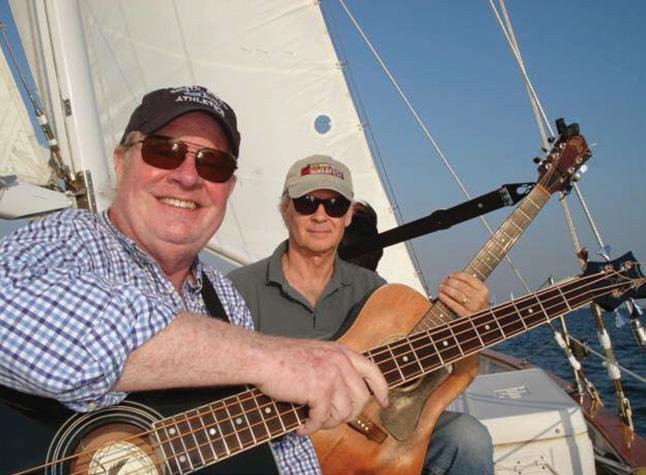
• Carnival on the Chesapeake— mid-June
• Rowdy Rooster Music Festival—midJune
• Independence Day Concert— on/near July 4

• Annual Arts, Wine & Jazz Fest—August
• National Lighthouse Day celebration— early August
• The Waterfront Festival—early September
• Fall Harvest Festival—late September
• Susquehanna Wine & Seafood Festival—late September
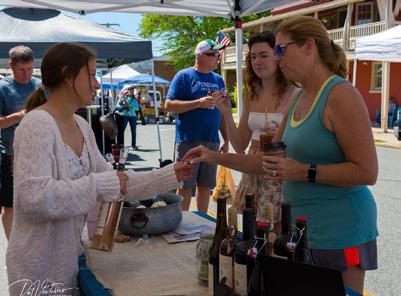
• Havre de Haunts, Home of the Original Ghost Tours of Havre de Grace— Saturdays in October
• Shrimp and BBQ Fest—mid-October
• Annual Havre de Grace Art Show—late October
• Veteran’s Day Parade—November 11
• The 2022 Great Havre de Grace Oyster Feast—late November
For more information on these events and the most current event schedule, visit the Havre de Grace Official Tourism Site at explorehavredegrace.com.
For overnight guests, quaint and historic mansions and inns offer a window to the past, far afield from modern national hotel chain commercialism.
Those arriving by boat have several transient docking options, including City Yacht Basin, Havre de Grace Marine Center, and Tidewater Marina, each with various amenities such as fuel docks and pump-out stations, on-site marine service, and even kayak and standup paddleboard rentals.
Further upriver in Pennsylvania, the Susquehanna Yacht Club is home to Lightning Fleet 253 and Flying Scot Fleet 81, with Wednesday nights regattas during the sailing season on a section of the river called Lake Clarke.
About the author: Captain Steven Toole covers cruising, interesting destinations, and other Bay-related topics for SpinSheet. He is an active racer and cruiser of his J/120 Hot Pepper on the Bay, holds a USCG Master Captain’s License, and operates 76 West Sailing Charters of the Chesapeake.

After only two weeks since deciding that I was ready to start searching for my first sailboat, I came across an ad on Craigslist for a 1983 Catalina 30 that perfectly aligned with my desires. After a thorough inspection, I concluded that she had just the right amount of refit projects that were within my budget, expertise, and resources.

Starting out with something that seemed manageable, my first project was installing a new shore power inlet. If I had had the right tools when it came to wiring, all would have gone smoothly, but such is the dilemma of a new technician/boat owner building their toolkit. I called in backup from my mentor at Diversified Marine Services (DMS), Colleen Moore. With her tools and supervision, the inlet was successfully installed with a new shore power cord.
Moving down the list of priorities, I had an oil and fuel leak on my engine, which I first tried to remedy by changing the gasket and crush washers, but it
still leaked. Eventually I replaced it with a new fuel lift pump. After I had all parts in place and supposedly had done everything right, it still leaked!
Though some projects require special tools, I was able to change out my fuel lift pump with this handy gear wrench kit.
I had overlooked the fact that one of the fuel injectors had a small burr that was causing the leakage. By taking some sandpaper to the face of the injector, I was able to create the flush seal required to fix the leaks.
On the topic of unwanted fluids, I successfully installed a new check valve to prevent the backflow
from emptying back into the bilge, which definitely helped bolster my confidence when I ran the bilge pump and there wasn’t any backflow.
Then, it was on to restoration projects, such as cleaning the teak handrails and companionway panels. Cleaning the teak with Te-Ka yielded a massive transformation, and applying four coats of Semco wood stain was the satisfying cherry on top.
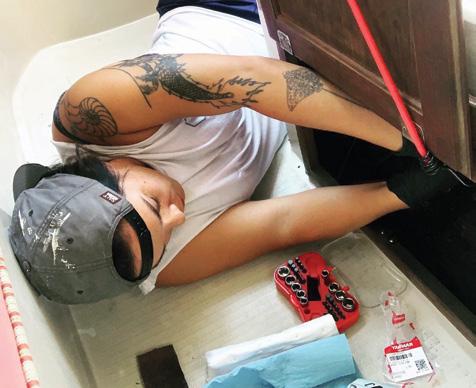
When the spring showers finally started to cease and the warmer temperatures rolled in, I embarked on the largest project: repainting the top decks. My restoration mentor at DMS, Matt Jones, guided me through what the entire process would entail and cost. Although it was going to be an involved process, I was poised and ready to give my sweet sailboat a solid refresh.
I was going to be using a roller and brush, compared to the spray gun
technique, which meant I would be using a technique called rolling and tipping. You first roll the paint on with a foam roller and use the brush to barely swipe across the surface so that you can pop any bubbles left on the surface. My sailboat would remain in the water, which is certainly not the easiest approach when painting a boat.
The first step was to scrub away the oxidized gelcoat, otherwise the paint would not adhere well. I thoroughly scrubbed her three times over until the oxidized gel coat remnants were gone. In addition, I had to sand down an irregularity in the cockpit where the previous owner had repaired the binnacle and clean up rogue butyl tape that had been applied in a smattering of locations.
Next was masking off all the hardware and teak so that I could begin priming. What many don’t realize is that it is the preparation of the area that takes the longest. Since I was a one-woman show, I divided up the deck into sections so that I wouldn’t waste any materials by making more than I could feasibly apply in one session.
Applying the primer was incredibly satisfying but also seemingly endless
since I had to get every inch of deck covered with multiple coats.
I quickly learned about the delicate timing when working with primer, as my attempts to go back over sections that had just begun to cure led to the swift destruction of my foam rollers. I also can testify that it is worth affording the higher quality green painter’s tape. During one of my supply runs, the lower quality green tape was the only type available. While I thought it wouldn’t make much of a difference, it barely adhered during application and was even more of a nightmare to remove.
After a few coats of primer, it was time for sanding. I thankfully had support from a friend, meaning that one of us used the orbital hand sander and the other used a piece of sandpaper by hand to get every curve and face sanded.
Though I had made it past the spring showers, now I was faced with navigating the afternoon thunderstorms of summer. Paying close attention to the forecast, I entered the home stretch of this project. I used AWLGRIP ‘Off-White’ for the smooth areas and ‘Moondust’ for the non-skid areas.

Once the multiple coats of ‘Off-white’ were complete, I excitedly tackled the final rounds of painting the non-skid ar-
eas. This was the most satisfying part of the entire painting project because each section I completed brought the new image of my sailboat closer and closer into view. They were also the sections with the smallest surface area and the most straightforward to paint.
A tip that saved me a lot of grief when it came to rogue paint strokes was having acetone and a rag on hand to easily wipe them away before they dried.
After painting myself off the boat three times, endless trips to West Marine, and three months of long hours in the sun, my sailboat beamed with her new fresh coat of paint! It was the cherry on top of the fact that the engine purred like a tiger and all her systems were in great working order!

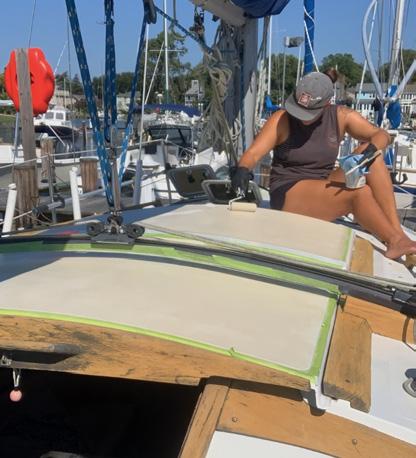
Though I was armed with the ‘professional’ protocol of how to execute these projects, the most growth occurred through the errors and mistakes I made. My endeavor into this refit was the hands-on approach that I was looking for. While I was able to practice what I had learned from my apprenticeship, I also learned how to be an effective boat owner, project manager, and overall better solo sailor. #
About the author: Chelsea Co (@deepbluechelsea) loves to share stories about momentous mariners and savvy sailing. From working as delivery crew to owning and refitting her own boat, Chelsea soaks up as much knowledge as she can to prepare for her circumnavigation.
Even though racers are still frostbiting and skiers are on the slopes, now is the time for anyone who will be in charge of children this summer to figure out how to keep them busy.
Summer sailing programs are a terrific option for many reasons (see page 40). Right now, organizers of youth programs are busy hiring staff, figuring out how to make knot-tying exciting, and polishing up boats in anticipation of summer sessions jam-packed with fun, learning, and exploration. Registration is open now for most programs.
Read on to learn what’s new at local sailing schools, what to look for in a sailing camp, and what’s in it for the kids.

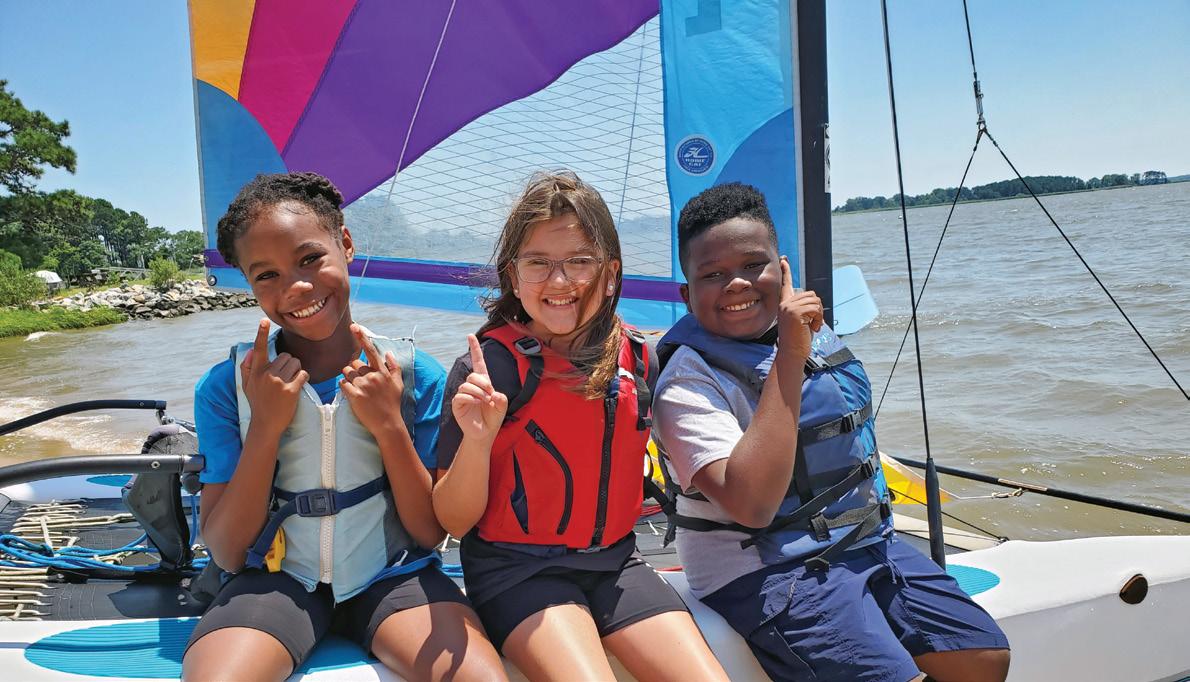
What’s Cool and New at (Sailing) Schools?
We checked in with some local sailing schools with tried-and-true kids’ programs to learn what’s new for the 2023 sessions. Here are a few highlights.
Lots of exciting new changes are going on at Annapolis Sailing School’s KidShip sailing camp this summer. Staff are gearing up for an awesome season with some new boats, exciting new course materials, and a new KidShip director, Michaela Turner, a former KidShip instructor with lots of fresh, new ideas to make camp even better for its campers, parents, and staff. In addition to Sail Down the River Day, Wednesday Water Wars, and Friday regattas, Kidship will add an on-the-water scavenger hunt and fun take-home materials for campers and their parents. A couple of monthly, youth-oriented events are in the works as well. Michaela and the instructors can’t wait to see all our new and return-
ing campers on June 19th! Learn more at annapolissailing.com.
Rock Hall Yacht Club Sailing School (RHYCSS) will mark its 20th season of sailing and outdoor summer fun this year. To celebrate, staff will reach into the photo and information archives for regular throwback Thursday posts on social media. A sailing celebration is planned for July 23 to include a sailing open house. The current community, past sailors, instructors, coaches, volunteers, and families are encouraged to join together for a sail on Langford Bay.
Over the last 20 years RHYCSS has grown from teaching sailing to 10 children per summer in three homemade Optimist dinghies to instructing and coaching more than 160 children and adults per summer in Optis, Sunfish, Lasers, and C420s. Despite being
a relatively small nonprofit, RHYCSS has had multiple skilled racing sailors compete and achieve Top 10 in CBYRA competition. Director Connie Ranney says, “We are also very proud of our sailing scholarships and community outreach, as we work with local partner organizations to get many people on the water for the sailing experience who may not otherwise have the opportunity.”
Learn more at rockhallyachtclub.org

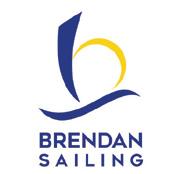
Two program updates support Youth Sailing Virginia’s (YSV) dedication to breaking barriers and reaching children who might not otherwise have the opportunity to access the water and sailing. This first is YSV’s newest program, Water Safety and Survival, which is designed to overcome any potential barrier caused by lack of swimming skills. YSV and its community partners identify and enroll children and teens who would benefit from understanding the risks of a water environment and learning water safety skills. By the end of the course students pass a swim check and qualify to participate in YSV’s beginner Learn to Sail program.
The second program update is in response to feedback from families who had expressed a desire to enroll their children in YSV’s Learn to Sail with STEM program but had problems with transportation. YSV now offers weekly full-day sessions for beginner and intermediate middle school youth. With this new schedule YSV also offers early drop off and late pick up options to ensure that all kids who want to learn to sail have the opportunity. Learn more at youthsailingva.org
West River Sailing Club has enhanced its racing and sea urchin programs and expanded the overall program to meet demand. On the racing side a highlevel 420 clinic is being developed and more 420s have been acquired to expand programs for older youth. In addition, big boat sailing opportunities will be offered for older/experienced youth. For the little ones a new half day class will be offered for young sailors ready to start sailing on their own but not yet ready for an all-day program. Find information at westriversc.com
Hampton Yacht Club (HYC) is very excited for another year filled with education and training for youth in the Southern Bay. Its junior program sold out for two years in a row, which led HYC to expand its Opti 1 program for this summer. HYC will offer Learn to Sail for ages five to 18 years as well as professional
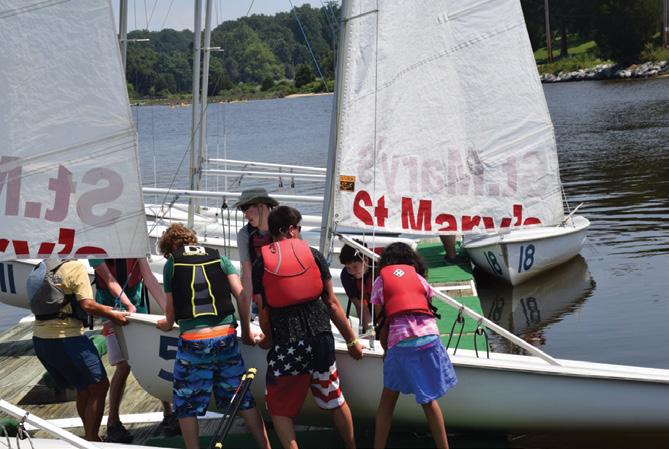
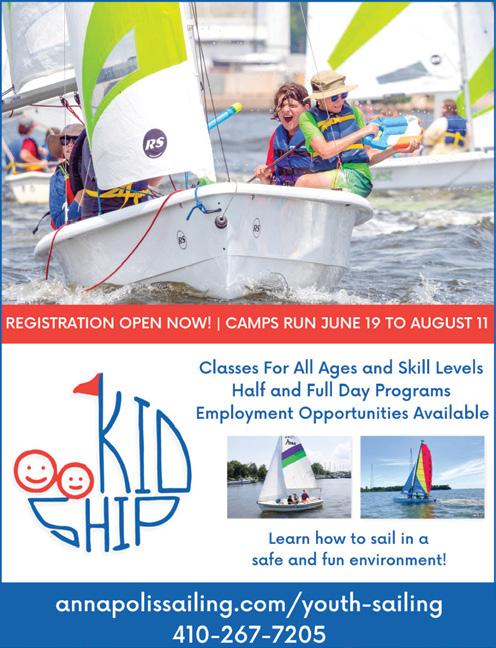


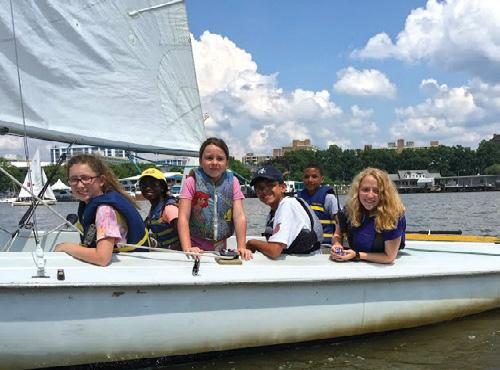

race team coaching in the Optimist, c420, ILCA 4/6, and foil board. For those kids who want powerboating and fishing too, HYC offers the Chesapeake Experience. Registration will open February 15 to the public at hamptonyc.com.
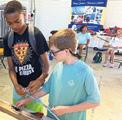
Miles River Yacht Club Junior Sail program offers great coaches at a great location with full-day classes all summer for all ages from beginners to racing. Sea Kids class is a fun introduction to boating and sailing for six- and seven-year-olds. Beginner, intermediate, adventure, and racing classes are taught aboard the Opti fleet, and the club offers beginning and intermediate racing on the C420/Laser fleet. Young racers will be offered a full schedule of travel to regattas around the Bay. Learn more at milesriveryc.org
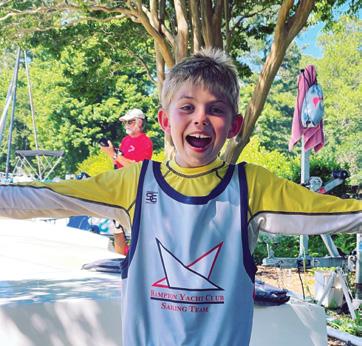
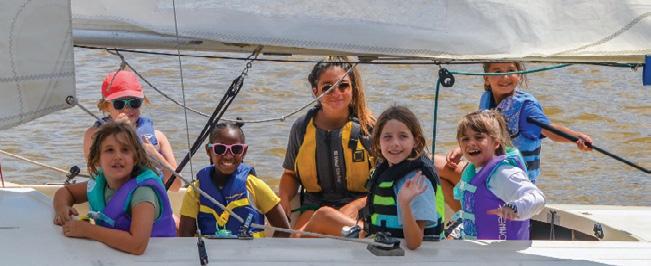
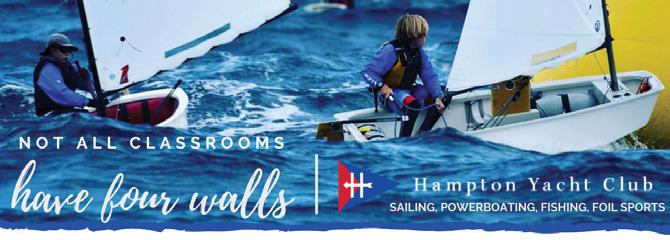
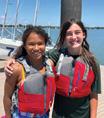
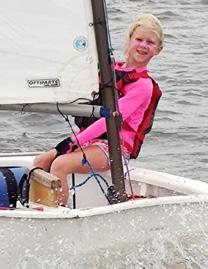
DC Sail’s “Kids Set Sail” summer program runs from late June to the middle of August. The program is a week-long day camp at DC Sail, located on the Anacostia River in Washington, DC. Youth, ages seven to 15, participate in on-the-water sailing for much of the day, supplemented with fun and educational shore-based activities. Kids Set Sail curriculum provides sailors the opportunity to not only learn to sail, but also engage in lifesaving boating safety training. Youth also explore environmental and ecological concerns and are introduced to weather, navigation, and racing. Beginner/intermediate youth sail on a Flying Scot with their instructor onboard as coaching support. More experienced, advanced level sailors are teamed with another sailor on the Flying Junior fleet. Kids Set Sail is already sold out for this summer, but a waitlist is available. Learn more at dcsail.org/youth-kss. #
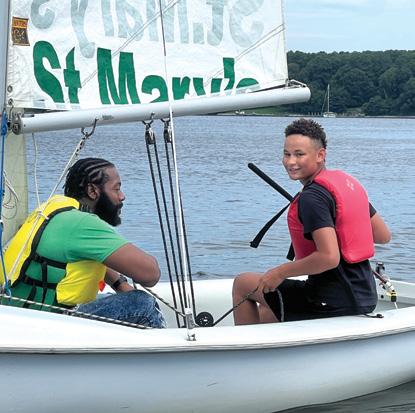
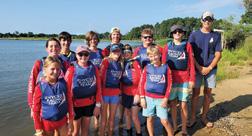
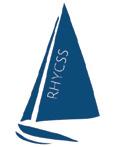
What’s the focus of the program?
Some kids want to focus on hard skills for the youth racing circuit. Others want to mess around in boats, pick up some basic seamanship skills, or maybe learn a bit about Bay ecology. Talk to the school/camp staff and be candid about what your family is looking for. Will the kids have time to mess around on standup paddleboards, try fishing, learn the basics of navigation, try powerboating?
What’s the temperament of the child? Let’s set the kids up for success by taking time to understand what they really need. Some children are intense, competitive, and love structure. Others are playful, creative, and thrive in a relaxed atmosphere. Some are independent—happy to go away to camp on their own. Others feel more secure with friends or siblings. Tell me about the staff and the boats. Is the program accredited by US Sailing or ASA? What is the instructor-student ratio? What type of boats will the kids sail? How old is the fleet and how well is it maintained? What qualities are important to the director when hiring instructors? What percentage of staff are returning counselors/instructors? What are the safety protocols?
Does this camp fit my family’s schedule and budget?
Think twice if the program doesn’t fit well into your already busy family life or your family’s budget. With so many great regional programs, parents should be able to find one that is conveniently located, within budget, fits the parents’ work schedule, meets the kids’ needs, has excellent counselors, and offers exciting programming.
The ads on these pages are a great place to start when seeking summertime fun for your child. For a more comprehensive school list, visit startsailingnow.com and click on “finding a sailing school.”

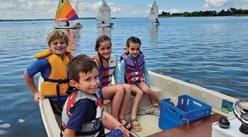
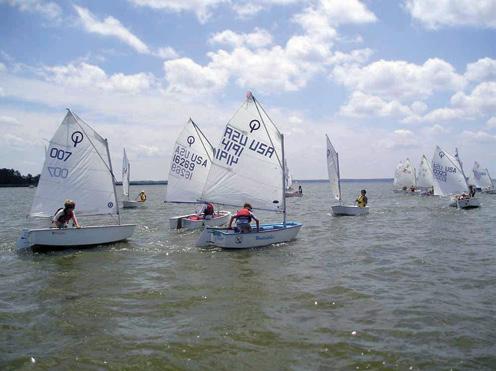
We often say to our military service members and veterans, “Thank you for your service!”
What do we say to their families? Worse, what do you say to a Gold Star family who paid the ultimate sacrifice? Are we limited to just saying, “Sorry for your loss?”
Retired US Army Colonel Patrick Powers wanted to find a better solution and founded Gold Star Sailing in 2014 to support the children of our fallen service members. Its mission is “to instill self-confidence, build character, teach teamwork, develop leadership, and promote healing in a positive environment of hope, adventure, and friendship.”
The intent of Gold Star Sailing is to get teenage children out of their environment and introduce them to the adventure, camaraderie, and fun of sailing. The concept is to get them out of their comfort zone and embrace life. At Gold Star Sailing they do not dwell on loss but focus on living. They never say, “We are sorry for your loss.” Instead, they say, “We are so glad you came!”
Gold Star Sailing began in Newport, RI, where campers experience the history, cuisine, and unique activities that make New England special on and off the water. They are treated to lobster, visit the sailing museum, tour the historic Newport mansions, and of course sail! During Covid-19, Gold Star Sailing partnered with the Lauderdale Yacht Club to host a second sailing camp in Florida where campers sail, enjoy an
everglades alligator airboat tour, go deep sea fishing, and taste conch and key lime pie.
Gold Star Sailing is not a grief camp; it is an adventure camp. They don’t focus on loss. They focus on adventure, fun, and friendships. Campers arrive as strangers and leave as family.

The healing happens naturally and organically. One camper put it best when they said, “This isn’t like the normal grief camp. We don’t sit around and ask each other why we hurt or what happened. Gold Star Sailing shows you how to have fun again and that it is okay to be happy!”
While each camper is in a different place in their grief journey, sharing adventures and bonding with other teenagers who share their situation is the real value. They leave with a peer
support network which is enabled by social media. The feedback from the campers and parents has been overwhelmingly positive. The quote (below) captures the essence of the program and clearly articulates the positive impact on the children and the families.
These camps are paid for entirely through donations with absolutely no cost to the families. Severn Sailing Association generously hosted a charity auction for Gold Star Sailing during the J/24 North Americans in October 2022. Powers says, “We are so grateful for the amazing support we received in Annapolis during the J/24 NAs this past year! We are working to maintain two camps so that we can support twice as many children in 2023.”
Learn more or donate at goldstarsailing.org
“This is the first and I mean the first time my daughter has wanted to go back to participate in a program like this. Instead of being sad, she came back from her first experience at Gold Star Sailing wanting more from life... At your camp she’s just another kid that is there to have fun learning to sail. It just so happens that the other campers have experienced similar loss.
“Gold Star Sailing lit a fire in her for the upcoming school year. Your program has helped her see the possibility of having a future!”
Thank you! ~Gold Star Mom
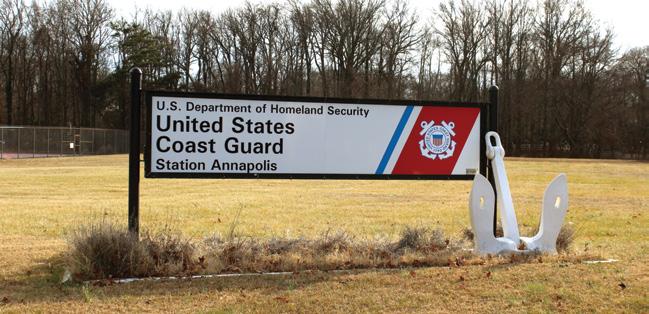 By Beth Crabtree
By Beth Crabtree
On a sunny but cold and breezy January afternoon I had the pleasure of meeting Senior Chief Matt Kinsman, officer in charge at the Coast Guard Station Annapolis. Senior chief Kinsman explained that although the Annapolis location is a ‘response’ station, its staff takes a ‘prevention’ stance to help promote boater safety, education, and good seamanship. Here are the answers to a few questions that I posed to him.
What happens when a call for help comes in?
When a distress call comes into the Annapolis station, immediately everyone gets very quiet and focuses on the situation being conveyed. I begin planning how best to respond: how to prep the boats, what equipment will be needed, how should we be dressed for the weather? Depending on the situation we may have a crew briefing at the station or on the rescue boat while “en route.” From the time a distress call comes in, our maximum allowable time to launch the boats is 30 minutes, but it usually doesn’t take that long. The average time is closer to 10 minutes.
Name a few things you would like sailors and boaters to know before leaving the dock. In addition to the basics of operating their boat, it is important to understand weather, boat maintenance, safety procedures, crew management, and seamanship skills. Know your boat’s limits, but also know your own limits. We are here to help. I’d much rather someone call in with a question— whether it’s about the waterways, the weather, or to file a float plan—than to do a search and rescue. The Annapolis station can be reached at (410) 267-8107.
What are the top five things you want to know from a sailor or boater who makes a distress call?


1. Position: latitude and longitude are ideal, but we are familiar with buoys, daymarkers, and other landmarks.

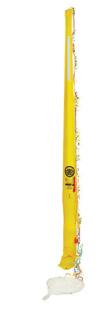
2. Number of people onboard: it helps to know if there are children, or older persons, and whether the persons onboard can swim.
3. Lifejackets: How many people are wearing lifejackets?
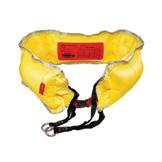

4. Nature of the distress: tell us what’s wrong. For example, is your vessel disabled, do you have a medical concern, are you lost in inclement weather?
5. Description of the vessel: In addition to length, hull color, sail or power, we want to know information such as: is the bilge keeping up, has the hull been breached, does the boat have a tower, is part of the boat submerged, are there items floating in the water that would help make you easier to spot, such as a cooler or fenders? Have you set off a flare?
How many boats and staff are at the Annapolis station?
Annapolis station has 30 active staff and 15 reserve. We are always ready, 24/7, 365 days a year to respond to a call. Similar to a firehouse, a rescue crew is always on duty at the station. In addition to our command center, offices, and briefing rooms, we have a barracks for sleeping, a kitchen, space to relax, and a gym to workout.
Because the Annapolis station is situated near the state capitol, a major bridge, the US Naval Academy, and a body of water large enough that submarines sometimes visit, it has an elevated level of response capability compared to some other stations of its size.
Three boats are kept here, one 45-foot response boat-medium and two 29-foot response boats-small. We keep the bigger boat and one 29-footer in the water at all times. Bright orange inflatable life vests sit ready in each seat and are donned before the boats launch.
The rescue boats have many features, such as pumping devices capable of removing water from a vessel that is taking on water. The larger boat has joy sticks instead of a helm for excellent maneuverability. It also has a space designed specially to care for someone who has been rescued. In addition to climate control to warm-up or cool-off someone in distress, the space has blankets, potable water, and a microwave.
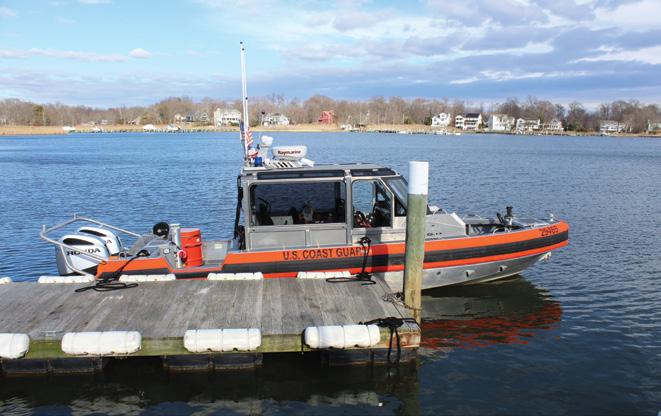
Our area of responsibility (AOR) includes the Chester River, Eastern Bay, and Miles River on the Eastern Shore, and on the Western Shore, we are responsible for the Magothy, Severn, South, and West Rivers down to Chesapeake Beach. From Annapolis we can reach our northernmost AOR in about 20 minutes, and our southernmost AOR in about 30 minutes.
I really like community integration. We want to be partners in education and on the water. The Annapolis station welcomes school field trips and annually hosts an open house. We partner with the local fire and police, which have top-notch equipment and knowledgeable officers and staff. We are fortunate to have a saturation of first responders in this area, and we collaborate with them. The first on the scene might be a tow boat, a Maryland Department of Natural Resources waterborne rescue team, a fire department, or other responder.

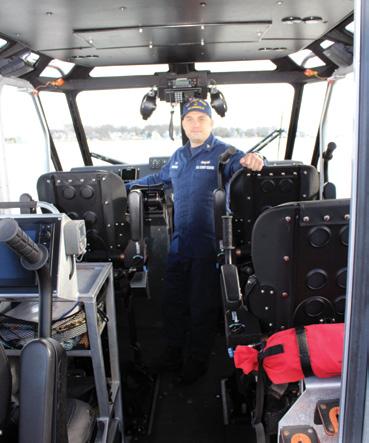
Our Auxiliary liaison at the Annapolis station keeps us informed about Auxiliary activities and where their boats are on patrol. On summer holidays or weekends, they might have three to five vessels on patrol. I dispatch our boats accordingly to cover as much area as possible. This makes them a real force multiplier. Most Auxiliarists have spent significant time on the water and are safetyminded, so they tend to have excellent seamanship skills.
The US Coast Guard requires certain safety equipment to be onboard vessels of a certain size. These minimum equipment requirements are:
• Lifejackets for each person onboard. For sailboats and powerboats 16 feet or longer, a throwable is also required.

• Visual Distress Signals
• Fire extinguishers
• Ventilation

• Backfire flame control
• Sound producing device
• Navigation lights
After a half year in the protected waters of Luperon, Dominican Republic, pointing our bows east out of the channel became a sudden rodeo ride. Forecasted four-foot seas were more like nine-foot broncos tossing the boat... and my stomach.

I started the mental “99 Bottles of Beer on the Wall” of hours and minutes left as we crashed our way east. Twenty-five hours to go. Vomit. Twenty-three hours to go. Vomit. Twenty-one hours to go. Vomit. Nineteen hours to go. Vomit. This is the point where one starts dreaming about Zillow and a home in the suburbs. I would have actually scrolled through Zillow to get my mind off of how awful I felt, but that required too much energy. Vomit. Seventeen hours to go.
My daughter and I cuddled in my berth together with a bucket while my son and husband, who apparently have stomachs made of steel, took all of the watches that first 24 hours. Some diehard evangelists of the book “The Gentleman’s Guide to Passages South” by Bruce Van Sant told us we should only sail overnight and make three stops along the way to avoid the full claws of the trade winds that would be pushing wind and waves against us along the north coast of Hispaniola. But Bruce Van Sant didn’t cruise with kids or dogs.
And the forecast showed a rare disruption in the trades thanks to a late
By Cindy Wallachseason hurricane passing north of us, so the wind was supposed to be lighter than normal. And it was. But the seas were more boisterous than forecast, and so we bashed. We didn’t want to pull over to anchor and turn a 24-hour trip into a three-day ordeal using the Van Sant method, especially knowing that the winds were supposed to kick up to full trades in just a day. As far as we could tell, these pullover spots didn’t have good shore access for the dogs, so we pressed on. Vomit. Twelve hours to go.
I stumbled out of my bunk around 2 a.m. to see if anyone needed a rest from the helm. I went up, looked at my son who was happy under the stars, asked how he was doing, and vomited over the rail right next to him. “Go back down below mom. We got this.” Seven hours to go.
Right around sunrise I woke up because of an odd feeling I had. It was the feeling of not feeling sick. It was the feeling of settled seas. I stumbled out again and saw that we were in the sheltered waters of Samana Bay. We glided into Samana where we would
wait a few days in a marina for the next window to cross the Mona Passage to Puerto Rico.
The marina had a pool, and ice, and fuel, and pizza, but it also had terribly “rolly” slips. At first I was annoyed at feeling as if we were underway while tied up in a slip, but I told my daughter it was training. We were training our stomachs for the next leg. Because of this rolly slip we will be acclimated when we head out again. While it seemed like one of those lies a parent

tells a kid to make them feel better, it actually turned out to be true.
When we left three days later and made the next passage, there were no green tummies. We were still motoring into the trades, but this time our bodies were as ready as the boat. We took medicine the night before. We used the single earplug trick. Whatever it was that worked, we were grateful to be feeling 100 percent again. We also used weather expert Chris Parker to help us pick a conservative weather window that gave us a very smooth Mona Passage crossing.
We got comfortable in Puerto Real, Puerto Rico, but knew we had to press on and “make some easting” along the south coast. With no break in the trades on the horizon, we leaned into the Van Sant method a little more, leaving just before dawn before the winds kicked into full force, and anchoring by about 11 a.m. before

it got too sporty. All good in theory, but we were still experiencing the full pinch of the Thorny Path. The seas built as we rounded the very southeast corner of Puerto Rico. The rodeo was on again.
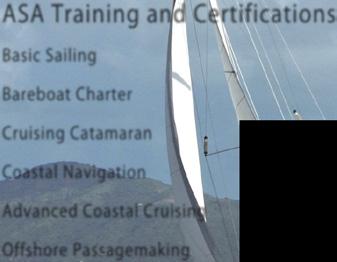
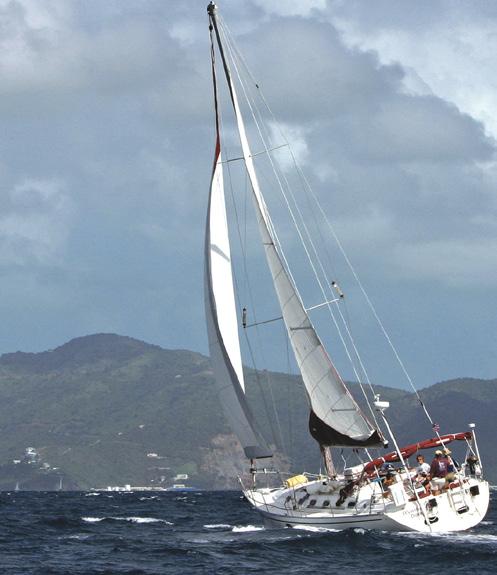
The difference this time was that our tummies acclimated. The knowledge that there was a safe harbor to tuck into a few hours away rather than a day or two made all the difference in what we told
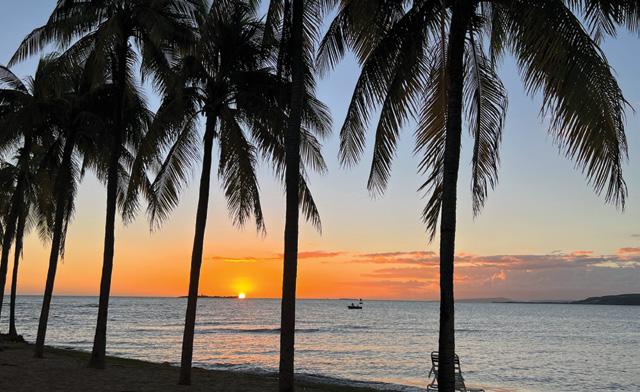
ourselves we could handle. Unlike Hispaniola, Puerto Rico has one protected anchorage after another to duck into. You take your lumps, but you can pick and choose how long you ride the bluewater bulls before you pull over and chill for a day or three, or week or two.
The paradigm shift from vomit zombie to nautical cowboy helps make each mile you crawl along the Thorny Path to windward more enjoyable. On watch, I’d stare at the bows of our boat as they pointed up to the clouds, and crash down into a trough of a wave showering me with spray. Rinse, repeat, ad infinitum. But I learned how to use the
rhythm as a salty, messy meditation, focusing me completely in the moment. No thinking about where we had been or where we were going or what I needed to get done.
I would just look at the sky, the waves, and the flying fish, only thinking about that very moment. A weird large wave would pass. I’d watch it march on towards the horizon, wondering who she was off to meet next. That was a big wave, and now she’s gone. Adios wave. Acknowledge it and let it go. That’s the lesson of imperfect sailing days on the Thorny Path. #
About the author: Longtime SpinSheet columnist Cindy Wallach is cruising in the Caribbean with her husband, two children, and two dogs on their St. Francis 44 catamaran Majestic.

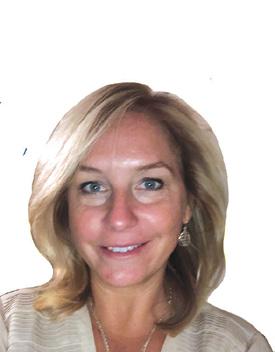
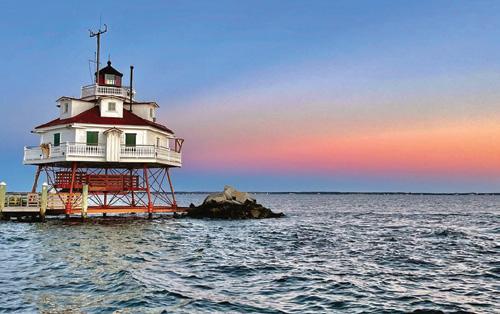
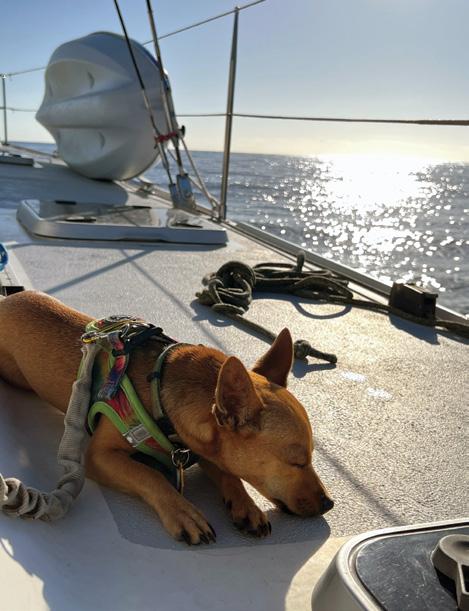
Every Mack Sail Is Proudly Made in our Stuart, Florida, Sail Loft

us at
Our rigging department Hood roller furling Schaefer Gamma boom on Bristol 47 that is currently cruising in the BVI’s. Our riggers also new rod rigging and upgraded all wiring and new light fixtures sail loft built a new full & code 0 as well furling genoa to fit the existing Our extensive experience cruising boats furling has provided our a integrated
Our rigging department converted this Hood roller furling mast to a new Schaefer Gamma boom on this Bristol 47 that is currently cruising in the BVI’s. Our riggers also built new rod rigging and upgraded all the wiring and new light fixtures to LED. Our sail loft built a new full batten main & code 0 as well as a furling genoa to fit the existing Harken furler. Our extensive experience with off shore cruising boats and furling booms has provided our customers with a greatintegrated system.
Our 47th Year
See us at Our 55 th Year
Our 47th Year
The Biggest Small Loft in the USA 800-428-1384 info@macksails.com • www.macksails.com
Have you ever set off for the Caribbean with a boat full of provisions only to realize that the schedule you’re on is totally wrong? Did it sting, even just a bit, to do the right thing and park your beloved vessel in a slip? Did it bring a tear to your eyes to walk away from her, even if it was only for a month or so?
When you gave all your perishables to strangers at the boatyard, did you feel like you were giving back, or did it feel like you were taking a step back? Do you think that nice sailor from New Jersey actually ate the green cabbage you gave him? Or was he simply too polite to say ‘no?’
When the NOAA buoy close to your boat at the mouth of the Rappahannock River clocked winds at 56 knots sustained with gusts up to 91, did you worry a little? Do you know how long it takes to get to the boat from where you are so that you can see if she’s okay? Are you sure you doubled all the dock lines before you left her there to fend for herself?
Did you have fun trying to figure out how to quasi-winterize your boat so that she wouldn’t sink? Did you find a solution that means she will still be mostly ready to go next month when you return? How did you ever figure out what to do or not do? Remember that moment when you decided that removing the end cap from the heat exchanger would let the raw water drain and eliminate the risk from freezing? Have you ever heard of anyone trying that before? How confident are you that it was the right thing to do?
What could go wrong with the boat while you’re away? Will the cockpit scuppers clog and be a problem if a cold front brings epic precipitation? How many wraps did you put on the jib, and how well did you tie off the furling line so you could be sure it wouldn’t let loose under load?
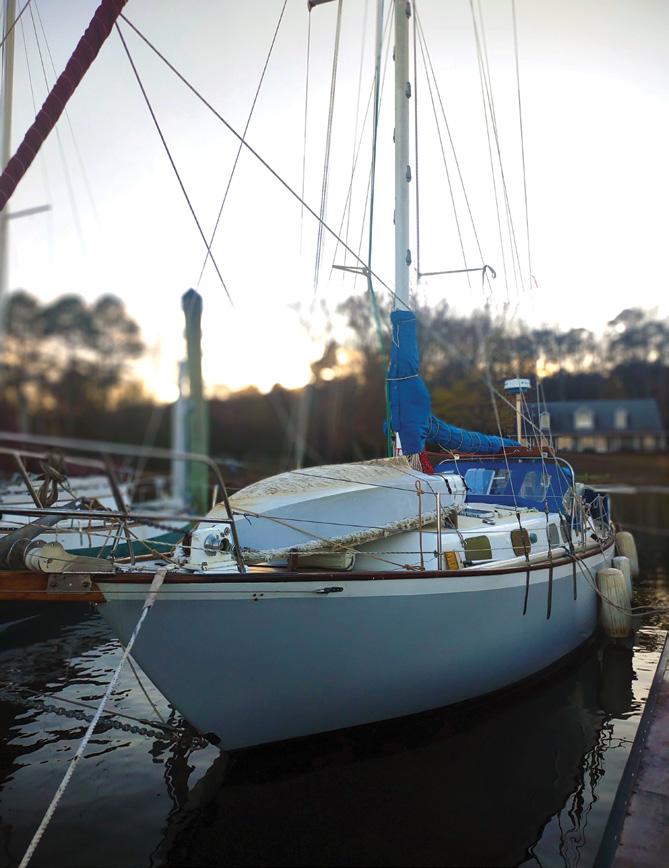
When your obligations have been met and you return to the boat, where are you going to go? Is St. Martin still the goal, or should you consider a change?
Would heading to the Virgin Islands be better? Have you considered Culebra? If you do change your plans, will you really be ready to give up all that potential easting so easily?
What part of all of this made you feel like a bluewater cruiser while you added logs to the fire at your sister’s house? Are you going to be out of rhythm again when you get back aboard? Have you paused to consider that February sailing might be more challenging than November sailing would have been? Will it all seem like it was worth it when you’re back on the boat?
Have you ever scanned social media to stare at friends’ photos from warm tropical islands, while back on land you dig through boxes of old clothes looking for wool socks to squelch the cold that has crept into your toes and now refuses to leave? Have you caught yourself staring at your own sailing photos, convinced
that if you try just a little harder, you can will yourself into remembering what warmth feels like?
How does it feel to check your friends’ trackers every morning to see where they are? Is it a bit of a farce when you log in to offer support, advice, or opinions? Are you maybe kind of phoning it in at this point?
How many of your followers think that right now you are basking in a sunny, tropical anchorage? Have all those other cruisers found the balance between sailing and life, or are they, too, mucking through and just doing their best? When you get back down south, how long will it take for the sunshine and blue waters of the Caribbean to scrub the last shard of doubt from your mind?
But aren’t you also pretty sure it will be alright in the end? Was that ever really a question?
Did you ever make a plan, announce your plan to the world, and then scrap the plan?
You see the full-page ads in the magazines, full of ecstatic faces in dreamy locations. You want that too! I certainly did when I first started chartering in the nascent internet era. When I booked my first sailing charter in the British Virgin Islands (BVI) in the early 90s with a major charter company, it was right out of an ad in a sailing magazine, followed up with a glossy brochure. That there were other choices didn’t really register. As time passed and the ability to research on websites and online forums increased, the alternatives became more visible; there’s much more to chartering than just the largest companies.
What were once referred to as second-tier and third-tier companies are now billed as “boutique” companies. But how do you decide whether to go with a big company or with a boutique company?
The majors have much to offer. For a newbie charterer (or sailor, for that matter), for someone who is unfamiliar with the destination, or for someone who likes convenience, the big companies offer the confidence of a nearly all-inclusive experience with a reputable outfit. More than just the huge fleets of standardized boats, many customized specifically for the company, the major companies offer services that can include in-house flight specialists to help book air travel (even private charters), transfers from the airport to the base, custom provisioning, and sailing instruction.
The largest charter bases sometimes include on-site hotels (with pools and spas), bars and restaurants, on-base grocery stores, and bath houses. Chart briefings can be multimedia experiences in a dedicated briefing room. Flotillas can be arranged for the sailors
# Chartering with Sunsail with a captain onboard to help with Med mooring and local restaurant knowledge turned out to be a win for the author’s 2015 Croatia charter.
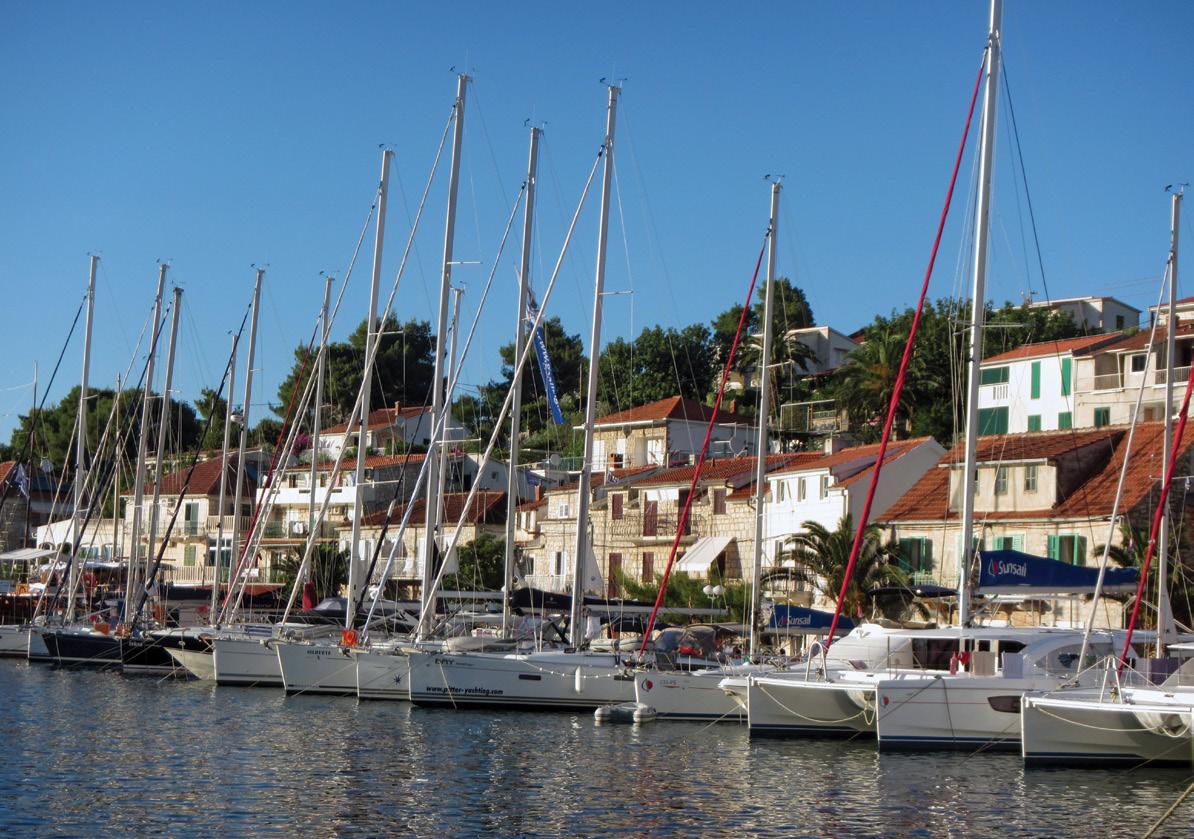
who want the company of others with more experience; some companies offer in-house sailing schools as well. Standardized yachts mean that there are spare parts (or even spare boats) in case something goes wrong with yours. Or if something goes catastrophically wrong—such as a hurricane—the major companies have the resources to take care of their guests.
But all of that big-ness and standardization can come with disadvantages as well. The experience can be impersonal. Being herded into a briefing room with all the day’s charter starters, or having multiple crews briefed on a single boat of the same model, may feel dismissive. Large numbers of less-experienced sailors (or “credit card sailors” hoping that their inadequate skills aren’t noticed), combined with quick boat turnaround, can make for chronic equipment issues that plague charter after charter. For
example, clapped-out battery banks are a well-known and endemic issue, since some crews don’t know how to use them properly, or don’t care to. And all those amenities can mean that the offerings of the majors are the most expensive.
The boutique companies have grown up to fill some of the niches that the larger companies don’t. One of my earliest charters with a boutique company was in Belize, where there was (at the time) no major company presence, aboard a small catamaran that wasn’t offered by any other company. If you’re into obscure destinations, or particular
boats, a boutique company might be for you. Indeed, on most of my charters with small companies, I’ve been able to specify a boat not just by model, but by name as well.
If you lack appropriate experience, you can’t hide with a boutique company. Not only do you need to provide a sailing resume, but one company went as far as to require passing a test. And when you are having your one-on-one boat briefing, the briefers often observe how you behave and move on a boat to gauge your skills. Test sails are not uncommon either. Experience is key,
since there is usually not a fleet of chase boats to help get you out of trouble.
The bases are more bare bones—sometimes just a designated area in a larger marina—so you’ve got to be willing to find your own provisions and book your own hotel if needed (though recommendations are always available). Using a boutique company can result in a more immersive and personalized experience. Many times— but not always—the charter costs less.
Be honest with what you want or need when weighing the options. As with most things related to sailing and travel, one size does not fit all. #
Charter Directory

These sailboat charter companies specialize in sailing destinations such as the Chesapeake Bay, Northeast United States, Northwest United States, South America, Caribbean, Mediterranean, Southeast Asia, and South Pacific. Contact them and book your charter dream vacation today!


# Be honest with what you want or need when weighing your charter options.
Attention Chesapeake Bay sailing clubs! Winter is a great time to brag about stand-out members. Share a spotlight on your special club member by emailing beth@spinsheet.com. Share your club news and events in SpinSheet’s Club Notes section by sending a 350-word write-up and one or more clear photos of smiling faces or pretty boats. Perhaps you’d like to share a photo of your new flag officers at a change of watch ceremony. Send all to beth@spinsheet.com. Thanks to Club Notes section sponsor, YaZu Yachting! Find them at yazuyachting.com and on Facebook.
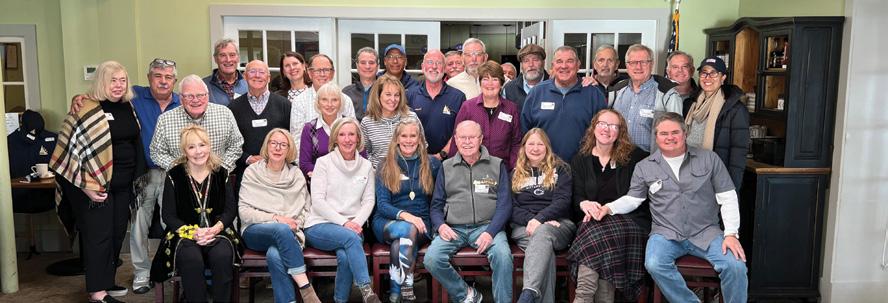
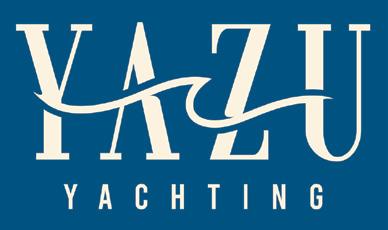
Start the new year with an organization of Beneteau and Lagoon owners who foster and develop sailboat cruising on the Chesapeake Bay and have a lot of fun. For over 20 years, Club Beneteau Chesapeake Bay (CB2) has provided a forum for good fellowship and an arena for the exchange of sailing knowledge. CB2 held its annual fall meeting at Pirates Cove Restaurant in November 2022. Members caught up with friends and were introduced to new members and guests who were in attendance. The upcoming 2023 season was discussed and highlighted with several fun events both ashore and afloat. There was great enthusiasm for getting back on the water!
If you are a Beneteau or Lagoon owner and would like to become a part of a great sailing club, please visit the CB2 website at cb2.org. If you would like additional information, please feel free to contact the club’s commodore, Chuck Smith, at chucksmith.o35@gmail.com.
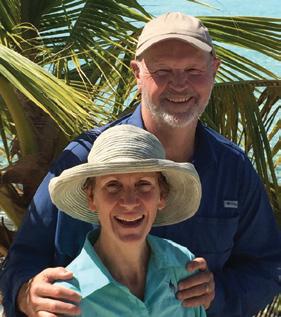
The Corinthians Chesapeake Bay Fleet’s new activities chairperson, Janice Cannon, will meet this winter with her team to plan out the year’s calendar. We look forward to her spin on our annual events such as the Non-Procrastinator for spring launch maiden voyages, Spring Cruise, themed raftups, Fall Cruise, one or two educational programs—and there is talk of another event that will remain a mystery for now. Stay tuned!

We also welcome a new racing chair, Chris Rogers, who is putting together some interesting low-key and high velocity racing opportunities.
In January, The Corinthians Chesapeake Bay Fleet’s “Mother Organization,” The Corinthians Sailing Association, held its annual awards luncheon at the Annapolis Yacht Club. It was great to be back at AYC for an event after its renovation—it was missed! This banquet is usually held in New England; however, the association is starting to rotate among the fleets, of which there are currently four: Chesapeake Bay; Long Island Sound, NY; Mystic, CT; and New England (with an unofficial fleet wintering in Florida). This gives us lots of visiting opportunities up and down the East Coast with many port captains and assistance for sailors. These are just some of the perks of being a member.
Last month, we held our perennial Bah Humbug potluck event, which is traditionally held in the dead of winter. Many thanks to our host, Mary West, and to those who brought prospective members as guests.
Want to learn about our organization? For information, please check thecorinthians.org for a membership brochure and additional information.

Back by popular demand! An in-depth, threepart webinar with meteorologist and sailor Mark Thornton of LakeErieWX Marine Weather about how to recognize and avoid Chesapeake thunderstorms. The series will examine: • Various types of thunderstorms • Ingredients that lead to their formation • Timing and lifespans of storms

• Resources for forecasting and monitoring storms all registrants will have access to the recordings for future reference
Thanks for the great Chesapeake seminar, I’m sure this will be very useful for our sailing. - Michael
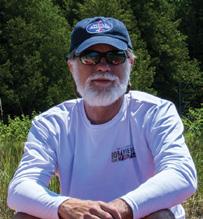
This past week I sailed for a week on the Chesapeake and knew how to spot cold fronts, monitor their timing from various data sources and avoided all sorts of bad storms! - laura
presented By:
Hunter Sailing Association Station #1 (HSA-1) members are proud to announce our 2023 officers: commodore Laurie Underwood, vice commodore Celeste Streger, fleet captain Jeremy Midgley, secretary Dan Breitenbach, treasurer Mike Meegan, and immediate past commodore Bob Rectanus.
Commodore Laurie Underwood grew up on Long Island fishing and water skiing but did not take up sailing until she and her husband, Sean, took lessons in 2014. After chartering for two years, they purchased Bootlegger, a Hunter 410, in 2016. Most weekends you will find Laurie, Sean, and their two puppies cruising around the Bay or working on the boat and enjoying the amenities at Herrington Harbour North. They are also thrilled when their college-age son Jack is able to join them on sailing trips.
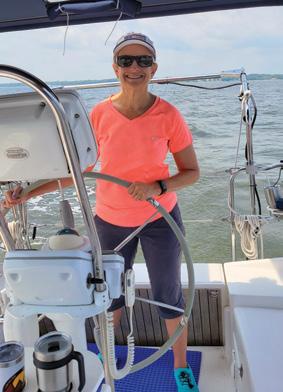
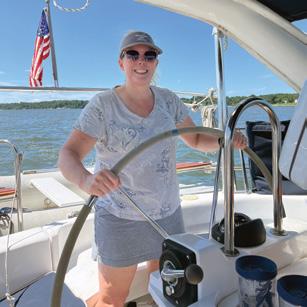
Vice commodore Celeste Streger and her husband Mark have two adult sons, and when they were in high school, Celeste and Mark decided to take sailing lessons. They made it a vacation with a Learn to Sail weekend in Newport, RI, with J/World. They continued their US Sailing certifications at J/World Annapolis. They joined
Chesapeake Boating Club for access to boats for day sailing and cruising. They twice went to Charleston, SC, for bareboat and coastal certifications and have chartered in the BVIs and the US Virgin Islands. Celeste and Mark moved to Annapolis in 2015 to live on the water and sail more often. When Covid hit, they bought a 2011 Hunter e36 they call Bay Dream and joined HSA-1 in 2021.
Fleet captain Jeremy Midgley grew up spending time visiting or living with aunts and uncles on the Potomac and Patuxent Rivers and on the many lakes of Michigan fishing and boating. After a perfect daysail with a neighbor in 2010 Jeremy bought a Hunter 340 and then a Hunter 356, which he lived aboard for nearly three years prior to meeting his wife Tammy and her two sons. In March 2020, Jeremy and Tammy upsized to a Hunter 2007 41ac Renegade, which is kept at Herrington Harbour North. Last year, Jeremy earned his 50-ton masters captains license with sailing and towing endorsements.
Secretary Dan Breitenbach learned to sail when the Army sent him to Newport, RI, for 10 months while his wife Cathy continued her career in Washington, DC. In Rhode Island he took sailing lessons, and when Cathy came to visit, they took a sail with his sailing instructor. They found themselves in 19 knots of wind in a 19-foot Rhodes. A quick but exciting sail back to the marina, with waves breaking over the bow, left them soaked. They both loved it, and in 2004, they bought their current boat, a Hunter 386, named
Zum Wohl in recognition of their three tours in Germany. Dan and Cathy keep their boat at Shipwright Harbor Marina in Deale, MD.
Treasurer Mike Meegan bought his first sailboat, a 30 foot, 1985 S2, with two office co-workers, Tina and Marty, along with Marty’s husband. Tina and Mike were married in 1989. In 1998
Mike and Tina bought their first boat, Enavigare, a Hunter 410 and in 2008 purchased their current boat, a Hunter45 DS, also called Enavigare, which is docked at their home slip on Saltworks Creek off of the Severn. They spend most of their summer weekends in Annapolis on the boat.
Immediate past commodore Bob Rectanus’s love for sailing began as a kid when his dad bought the family a 12foot sailboat. His interest in sailing was reawakened about 18 years ago when he and his wife Sharon stopped in Duxbury, MA, to visit a friend of Sharon’s. Bob spent most of the week sanding and painting the bottom of their 35-foot Choy Lee ketch for a chance to go sailing in Cape Cod Bay. For five years they sailed with Getaway Sailing Club out of Baltimore, before they bought Unfurled, a Hunter 356 in 2007. Unfurled was sold a few years ago when they took delivery of their new 2018 Marlow Hunter 40.
We welcome Hunter owners from around the Bay to join us and consider club membership. If you have a Hunter in the mid-Chesapeake Bay and are not a member, please check out our club at hsa1.org or email commodore@hsa1. org to learn more about the benefits of membership.
 By Greg Shields
By Greg Shields
At the moment, it is 60 degrees with a wonderful breeze from the SSW. Why did we put the boat away so soon? Chesapeake Bay Tartan Sailing Club (CBTSC) member Darlene Forte took advantage of the fair weather to repaint the cove strip on her Tartan 41, hull number 42 (see photo on page 58).

Turning to a somber note, it is with much sadness that we share the news that long-time CBTSC member Mary Ina Bourdon passed away on December 15. David Bourdon and Mary Ina were the founding members of the CBTSC, and David was our first commodore in 1986. David and Mary Ina sailed for many
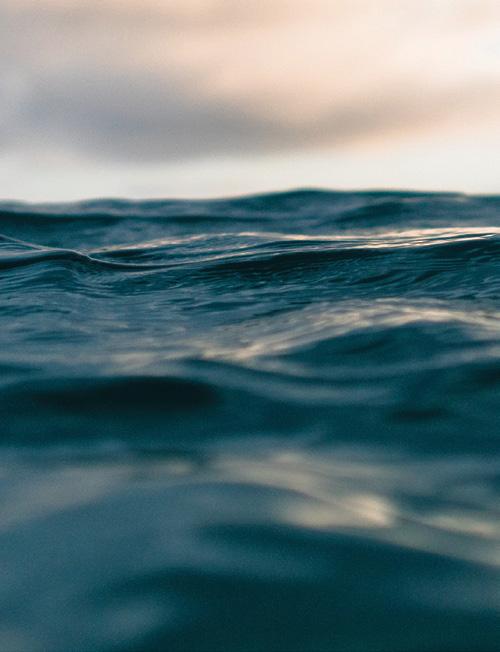
years on their Tartan 34 Celebration and were present at almost every club activity. They finally put their boat up for sale last year. Our sympathies and prayers to David and his family.
In January, the muchrevered Ladies Luncheon returned as a live event. It was held at the Severn Inn in Annapolis and was well attended.
The CBTSC leadership will start scheduling the 2023 sailing season with a planning meeting to be held at the Selby Bay Yacht Club in Edgewater, MD, in early February. The calendar of events will be finalized and
posted on the club’s website. The popular CBTSC Sailing Symposium will be held April 4 at the Eastport Yacht Club in Annapolis. Learn more about CBTSC at cbtsc.org





Chesapeake Paddlers Association (CPA) is an all volunteerrun organization with its mission to promote safe sea kayaking and safe paddling practices through the education of the local sea kayaking community and the interested public. Two kayak classes are planned. Members of CPA and non-members are invited to register.

Sea Kayaking 101 is a one-day introductory course on the basics of sea kayaking. The program includes featured instructors and short highlights from some of the area’s best kayakers. Learn how to shop for the perfect boat for you, equipment needs, paddle and boat design, the basics of safe paddling, how to find people to paddle with, and interesting places to paddle. Kayaks, paddles, equipment, clothing, car rack systems, and a variety of kayaking gear will be on display. Although this event is primarily for the newer paddler, or those interested in getting into the sport, everyone is invited to come and expand their paddling horizons. The workshop will be held Saturday, February 25, from 8:30 a.m. to 3:30 p.m. at Cult Classic Brewery, 1169 Shopping Center Road, Stevensville, MD, 21666. Space is limited. Advance registration is required, $40 per person, to include a light breakfast, snacks, and pizza and salad for lunch. Online registration is open through Saturday, February 11 at eventbee.com/v/sk101_2023#/tickets.
Sea Kayaking102 is an on-the-water skills class covering basic kayak paddle strokes, basic and advanced rescues, stroke improvement, rolling, and more. On-land classes such as navigation and kayak camping are also on the agenda. SK102 is designed primarily to teach beginner and intermediate paddlers proper paddling techniques and the skills that they will need to kayak safely. In addition to the classes, there is unstructured “boat play time,” a relaxed evening paddle, and a cookout with a big bonfire. This event is planned for late April. Find more details at cpakayaker.com and facebook.com/cpakayaker
The Dickerson Owners Association kicked off the year with its annual business lunch held in January in Annapolis. Commodores Don and D Wogaman welcomed the members. In addition to business reports, Barry Creighton presented “Trans-Atlantic Passage on a Hallberg Rassy 48.”
The Dickerson Owners Association Classic Sailboat Rendezvous will be held June 16-18 in Oxford, MD. Events begin with a parade of boats on Friday afternoon followed by a cookout on the grounds of Safe Harbor Marina. On Saturday the classic boat race will take place, followed by dinner at the Robert Morris Inn. A traditional post-rendezvous cruise will follow after the weekend program concludes.
The Dickerson Owners Association was established in 1969 by Henry and Helen Dodson. It is an association of owners, not affiliated with Dickerson Boatbuilders. The association members try to keep an upto-date directory of Dickersons and their owners, but the main point of the group is the sharing of friendship and boating experiences with others to increase the fun of owning and sailing a Dickerson. Learn more at dickersonowners.org

For our January social, more than 32 members and guests of America’s Boating Club Wilmington (ABCW), also known as the Wilmington Sail and Power Squadron, enjoyed an interesting slide program presented by Gary Letcher, author of Bold Forecast: The Hurricane Agnes Deluge.
Gary explained that June 2022 marked the 50th anniversary of Hurricane Agnes, a storm that brought the most rain and wreaked the worst damage in U.S. history up to its time. In the Middle-Atlantic states Agnes remains the storm against which all others will forever be compared. Bold Forecast tells the Agnes story as a compelling narrative, reminding us of the power of nature and the power of ordinary people in the face of epic catastrophe.
We began the assembly with several members recounting their memories of experiencing Agnes firsthand. Then in a fascinating presentation combining video, photos, and narrative, Gary took us through a brief history of the event and its legacy. Several ABCW members who have read the book agreed that it is an excellent read. It
By Carol Hansonunfolds like a novel with tales of courage, loss, and survival woven together with the story of scientists who struggled to predict the path of disaster even as their equipment washed away around them!
ABCW is all about “Fun, Friends, and Better Boating.” We learn as we play!
Social events with an interesting educational focus are held in the winter months. To learn more about our club and membership, check out wilmingtonpowersquadron.org or our Facebook page at America’s Boating Club Wilmington.

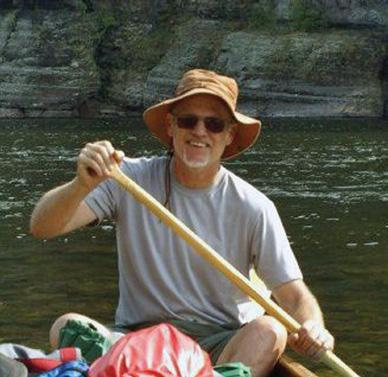
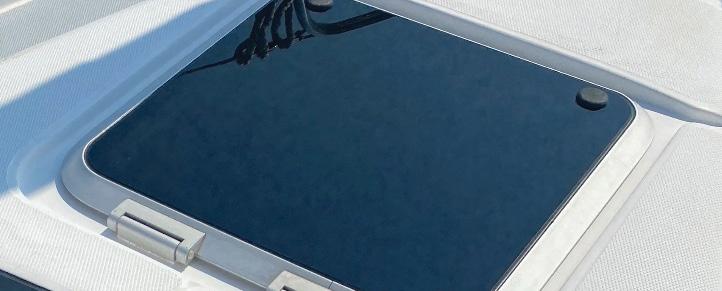
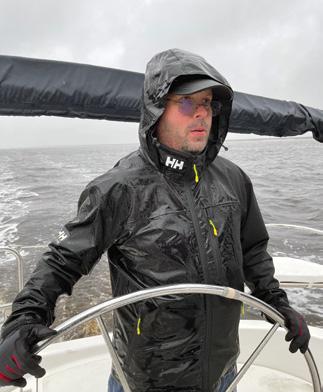
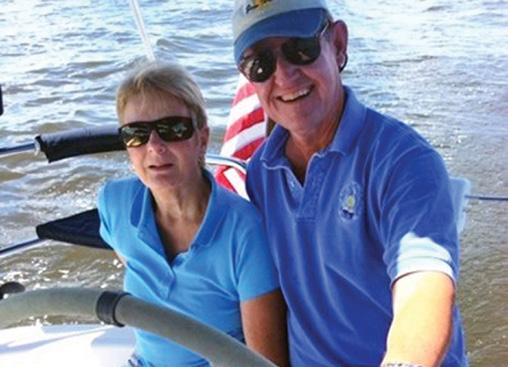
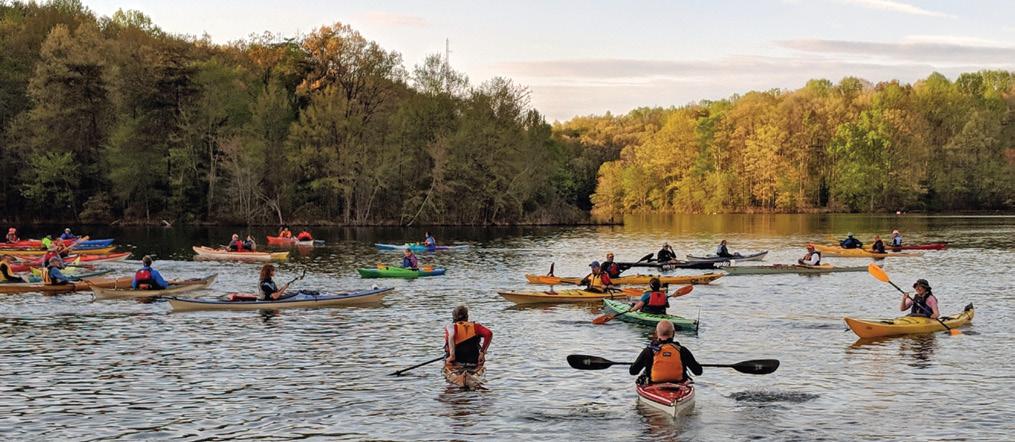

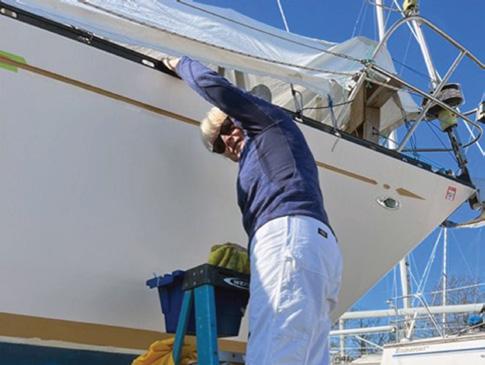

Our boats are covered in white to wait out the long winter months, but our Singles On Sailboats (SOS) club members are keeping connected and active.
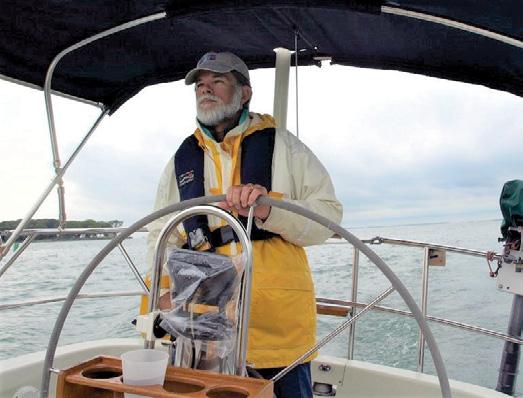

We are dusting off our laptops for our bi-weekly Zoom happy hours and training programs. We are starting a crew member’s fitness program to help our movement around the cockpit and ability to complete tasks while underway.
In addition, we are holding Fireside Chats with smaller groups of club members who will gather at a host’s home, share a meal, and discuss recent experiences or events. You must be a member of SOS to reserve your place.
We will have several brunches, usually held at the Double Tree Hotel in Annapolis where we can mingle and catch up with old and new friends. At the April
brunch we will hold a photo contest. Members will submit photos they have taken over the last year. The photos will be evaluated by a professional photographer. Images that make the cut will be previewed at the brunch, and small prizes will be given out for those chosen from several categories.
We also continue to gather at our regional, unofficial monthly happy hours in locations from Virginia to Pennsylvania. Details may be found at singlesonsailboats.org and on our Meetup site. Happy hours are open to anyone who would like to explore what our club is about and have a chance to meet active members.

We are working on scheduling day and weekend sails to all parts of the Bay in 2023. Plans are unfolding to explore the San Juan Islands by bareboat in the
fall. CPR classes, a flare and safety seminar, and numerous other workshops are in the works.
Our Spring Training for Sail and Power Boaters on April 1 is open to all, including non-members, single, married, and of course SOS members.
Come join us. We like to say, “Come for the sail and stay for the friendship.” Find more information at singlesonsailboats.org See you on the Bay in the spring.
Grab a Mount Gay Rum drink or a mocktail and join us at 5 p.m. on FaceBook YouTube as we ask a racing pro and sailmaker all your pressing questions to set and trim your sails, do tough maneuvers well, and sail faster in

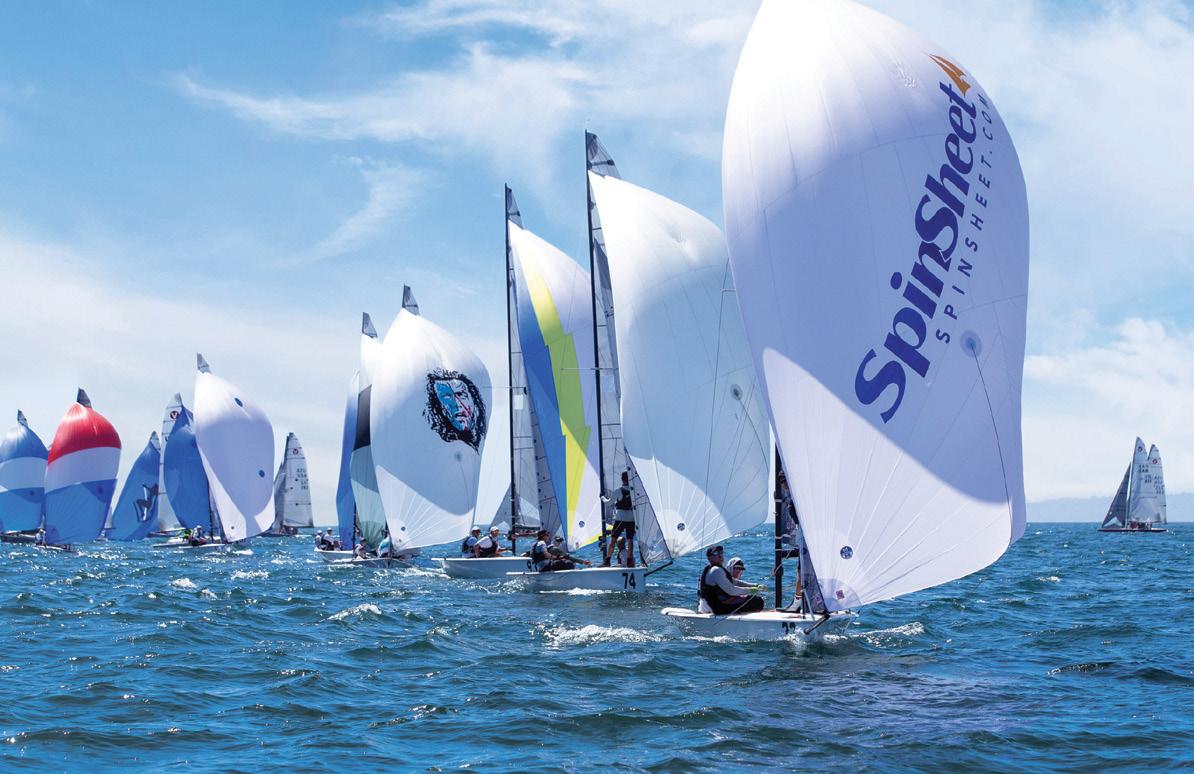
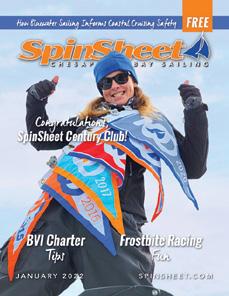
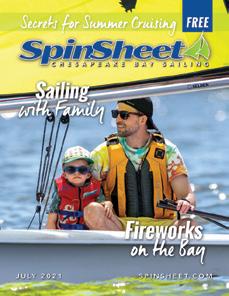
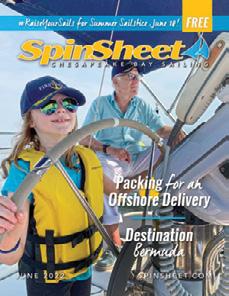
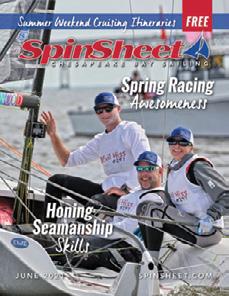

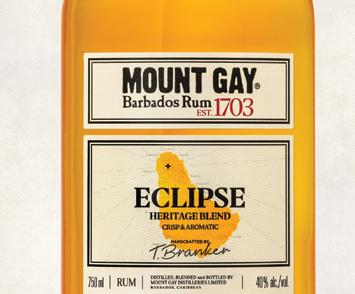


Every year the Chesapeake Bay Yacht Racing Association (CBYRA) announces its High Point qualifiers for the previous year. CBYRA will host an awards ceremony in March (details TBA) in which it will honor all qualifiers and special awards. Following are the Junior High Point qualifiers as sent by CBYRA. If we have the results before we go to print, we will run the Cruising One Design, PHRF, Multihull, and CRCA qualifiers for the entire Chesapeake in our March issue; if not, we will run them at spinsheet.com.
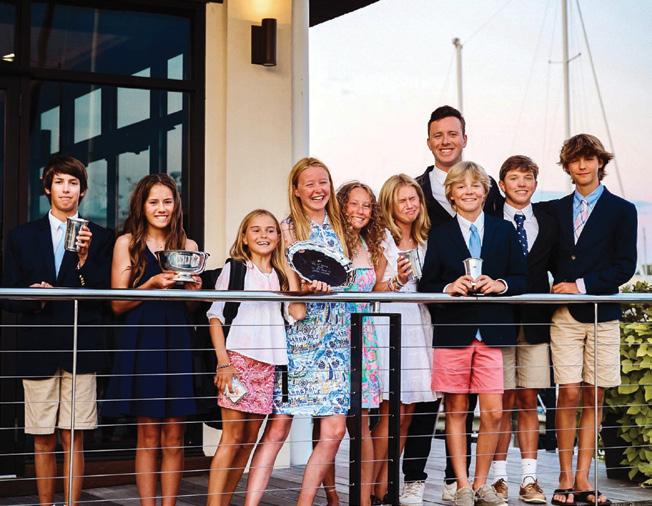
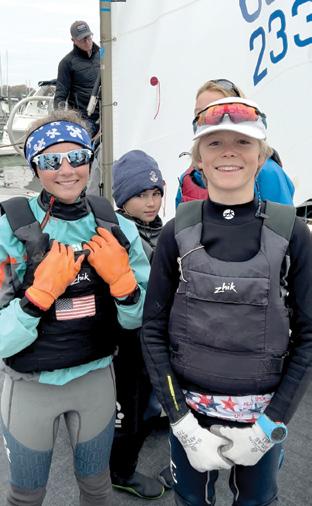



opti overall Ashton Perkins, AYC Amelon Rule, HYC Jake Beaver, AYC Halsey Carter, AYC Alex Baker, AYC Will Mohler, AYC Brandt Adams, HYC Andrew Shingledecker, AYC/SSA Andrew Allgeier, HYC Morgan Rosenthal, AYC
opti Red Fleet Ashton Perkins, AYC Amelon Rule, HYC Jake Beaver, AYC Halsey Carter, AYC Alex Baker, AYC
opti Blue Fleet Morgan Rosenthal, AYC Adam Butz, AYC Clarke Garrett, FBYC Jackson Martin, HYC Casey Burman, AYC/SSA
opti White Fleet Brandt Adams, HYC Andrew Allgeier, HYC Henry Latell, FBYC Peter Shingledecker, SSA Dorsey Owings, RHYC
Laser Radial overall Logan Hayes, FBYC Noah Macielag, RHYC Pierce Brindley, BBSA
John Thomas Mason, FBYC Tommy McGeady, SSA Joshua Almany, FBYC
C420 overall

Walker Angus/Sofia Forsberg, FBYC/AYC Joseph Murphy/James Lilyquist, SCC

Club abbreviations:
Annapolis Yacht Club (AYC)
Severn Sailing Association (SSA)

Rock Hall Yacht Club (RHYC)
Hampton Yacht Club (HYC)
Fishing Bay Yacht Club (FBYC)
Broad Bay Sailing Association (BBSA)
Sailing Club of the Chesapeake (SCC)
Join fellow sailors from clubs and programs around the Chesapeake Bay to hear first-hand what it takes to compete at the highest level. The Annapolis Yacht Club (AYC) Foundation will host a series of events on March 2 at the AYC main clubhouse to hear from Paul Cayard (executive director of US Sailing Olympic Sailing, Gary Jobson (sailing journalist and America’s Cup champion), and three aspiring Olympic sailors from the Chesapeake region: Leo Boucher, Casey Cabot, and James Golden. This is the first time the area has produced three Olympic contenders at the same time!
The youth event from 4-5 p.m. will be free and open to sailors ages nine to 22. Raffle tickets will be provided to attendees for a chance to win a coaching session with each of the athletes. Light refreshments and snacks will be served.
The main event, a fundraiser and cocktail party for adults, will take place from 6-8 p.m. and cost $200. A VIP dinner with Cayard and Jobson will unfold from 8-9:30 p.m.; VIP tickets ($500) include reserved seating at the 6 p.m. main event.
Cayard will kick off the program and share insights on US Olympic Sailing followed by Jobson who will lead a lively discussion with the three sailors and conclude with questions from the audience.
To help these athletes realize their dreams, sponsorship opportunities are available. For additional information, contact Kathy Parks at: kathyparks10@gmail.com.

The AYC Foundation is a 501(c) (3) organization that provides grants to amateur sailors competing at the national and international levels and to maritime-related 501(c)(3) charitable and educational organizations. The foundation also provides scholarships to underprivileged youth to participate in junior sailing events. Learn more at aycfoundation.org
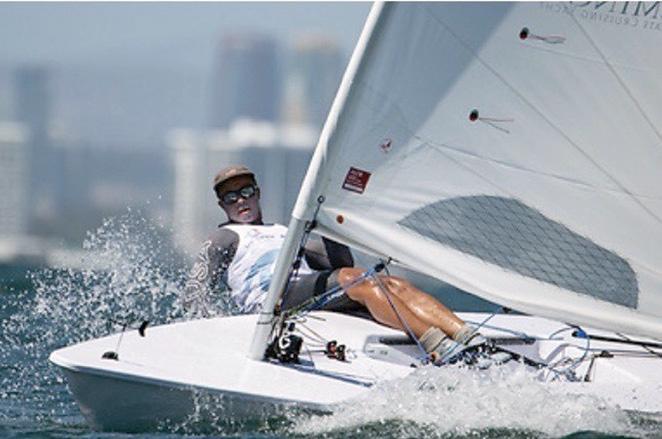
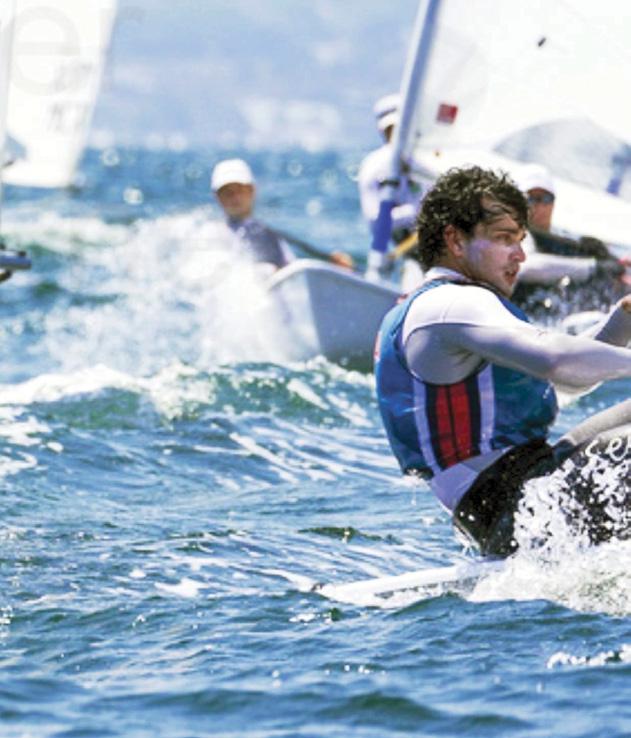 By Jacelyn Swenson
By Jacelyn Swenson
By New Year’s day a record total of 60 boats were signed up for this year’s Marblehead to Halifax Ocean Race (MHOR) which is cosponsored by the Boston Yacht Club and the Royal Nova Scotia Yacht Squadron and starts July 9.
“We still have more than six months to go before the start of the race” said BYC Vice Commodore and MHOR co-chair Scott Sarazen, “so it is really gratifying to see the volume of interest there is already in this year’s race both from participating sailors and sponsors.
In addition to the sixty boats registered, returning sponsors include the title sponsor Steele Auto Group of Canada and Gill Marine USA, the exclusive clothing sponsor.
One of the newcomers to this year’s race is also the oldest boat signed up so far, the 1936 Rhodes designed cut-
ter Kirawan which is now owned by Dan Levangie of Boston. Kirawan was designed for and indeed won the 1936 Newport to Bermuda race for her then owner Robert Baruch. Her amateur crew of nine included designer Phil Rhodes and builder Irving Jacobson. Competitors from the Chesapeake include Scott Ward (Hollywood, MD) on the Beneteau First 50 Crocodile, Will Passano (Gibson Island, MD) on the Sydney 47 Polaris, Michael and Connie
Cone (Philadelphia, PA) on the Hinckley B 40 Actaea, Seth Winnick (Annapolis, MD) on the Sabre 38 Nomad, Albert Bossar (Annapolis) on the J/42 Allegiant, and Beth Berry (Annapolis) on the Tartan 4100 Kyrie
First started in 1905, the MHOR is one of the world’s oldest ocean races. The 39th biennial race returns after a four-year Covid hiatus and will leave Marblehead Harbor on July 9. Find more at marbleheadtohalifax.com
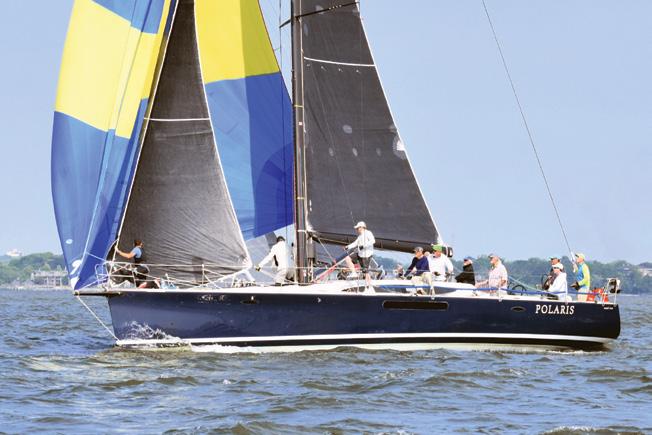

t print time, 27 boats had registered for the biennial Annapolis to Newport Race, which begins June 2 and 3 off Annapolis. A series of prerace seminars will begin at the end of this month at Annapolis Yacht Club.
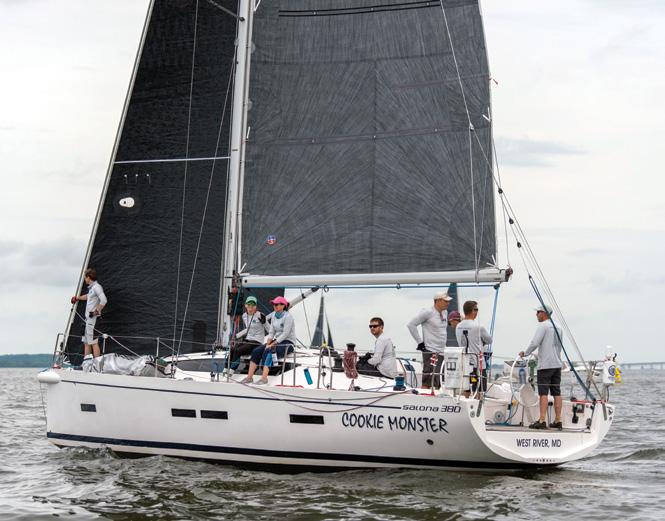
Boats are eligible to enter one of the following divisions: ORC, ORC Racer/ Cruiser, ORC Cruiser, ORC Doublehanded, or PHRF. If any division does not have a minimum of five entries by March 24, organizers may cancel that division, and entries will be allowed to change to another division or receive a full refund.
Find details about the race, seminars, and a link to registration at annapolisnewportrace.com
RoRC Caribbean 600 Series: Three days of racing followed by the main event; the 14th edition of the RORC Caribbean 600. February 14-24, caribbean600.rorc.org
Bacardi Cup Invitational: World class one-design racing in Miami, FL. March 5-11 bacardiinvitational.com.
Charleston Race Week: Three days of racing among 20 classes: PHRF, ORC, and one-design classes. April 20-23. charlestonraceweek.com

Antigua Sailing Week: April 29 – May 5. sailingweek.com
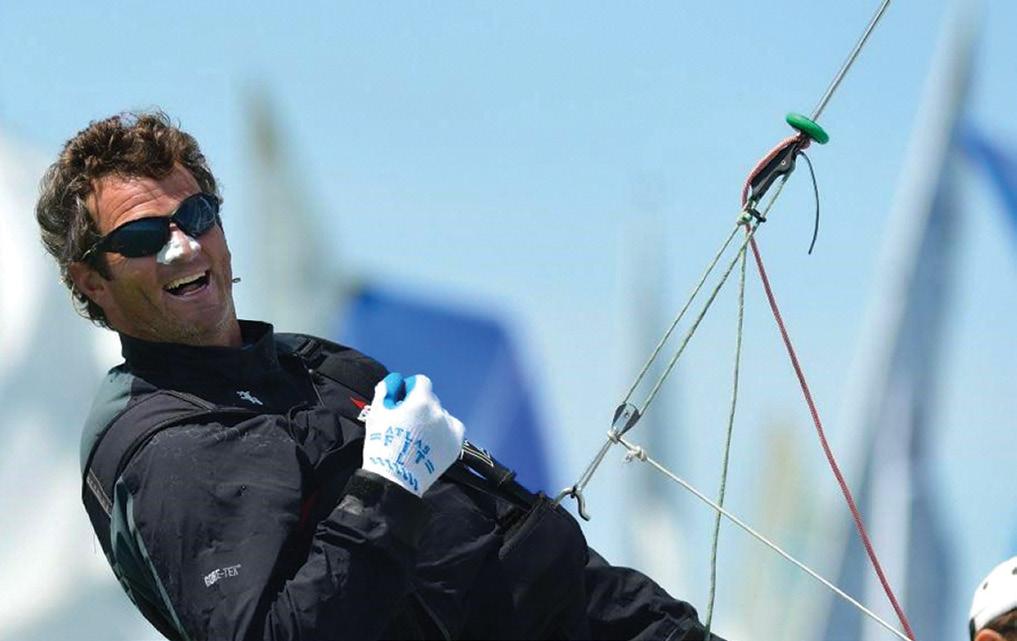
And Then… Back Home on the Chesapeake! Helly Hanson Sailing World Regatta Series Annapolis: One-design racing and cruising rally. May 5-7, sailingworld.com/regatta-series-annapolis
We are very grateful for race organizers in the Southern Bay for having their 2023 racing schedule together by Thanksgiving 2022! At print time, we here on the Northern Bay did not have that yet. We have posted the dates we know at spinsheet.com/calendar and will continue to do so as schedules come together. If you have confirmed the date of a significant Chesapeake racing event yet do not see it on our calendar, send details to: editor@spinsheet.com

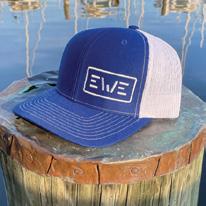


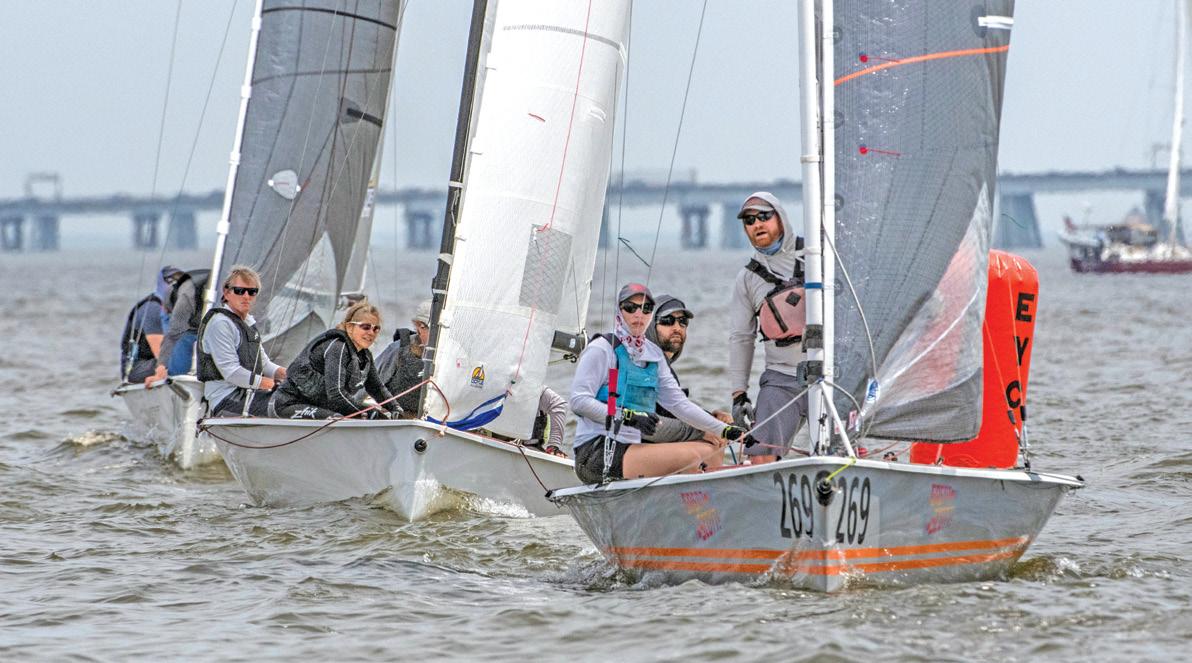 By Tim Herzog
By Tim Herzog
As a mental performance coach, frequently working with sailors, I’ve repeatedly heard some misconceptions about performance that are perpetuated among sailors, coaches, and parents. I want to offer some alternative perspectives:
“I knew that if I had decided to do XYZ (e.g., train harder), I definitely would’ve won.” Then why didn’t you? In the late 1700s world-renowned chess player Deschappeles (no, not the comedian) was afraid he wasn’t as good as people thought he was. His “solution?”
Deschappeles would start by taking a pawn off the table. If he won, he could boast by saying how good he was, but if he lost, he had a built-in excuse. It’s hard, but it absolutely feels better to try and fail than to self-sabotage, and who knows? In facing your fears, you might even succeed!
“If I believe I can succeed, I am guaranteed success.”
Think about it like this… if you knew the “magic odds” of success, they wouldn’t be 10/10. For example, let’s say you have a six out of 10 chance of winning a race. If you believe with 100 percent of your soul that you can achieve success, it is easier to fully focus on the task at hand, and you keep the odds at 6/10. But if you think, “Maybe I can do this and maybe I can’t” (50 percent of your being), you’re likely not fully present, you knock the odds down to 3/10. And if you believe, “I can’t do it” (i.e., 0%),
you knock the odds of success down to 0/10, as your get consumed with fantasies associated with failure. Of course, this idea is conceptual (not literal), but you probably get it.
“I need to be confident before I perform.”
Feeling confident feels nice, but it’s not a pre-requisite for success. In fact, we usually perform and then feel confident, rather than vice versa. Think of all the times you maybe had a breakthrough performance while you had no expectations at all. It is okay to have self-doubt; acknowledge

it, cope with it, and focus on more important things (such as strategy and boatspeed).
“If I just do ______, I’m guaranteed success.”
There simply are no guarantees. Maybe that’s not such a bad thing. How boring would sport be if we knew the outcome in advance?!
Part of what makes sport exciting is that it can’t all be scripted; anyone can win any given race. Anything can happen and we work hard to have influence over the outcome, but there are never guarantees because there are uncontrollables in the mix (e.g., the weather, competitors’ performance, race committee work, and umpires).
“I have to win” (or “should,” or “must”). Really? According to who/what? This kind of language likely creates unneeded pressure. Notice what you’re saying to yourself and whether it gets you amped enough or if it maybe gets you too amped up. Acknowledging, “I’d like to win,” can take that pressure off and make success more likely as you focus on more important things right now (rather than outcomes in the past or future).
“Picturing the bad race in my head, over and over, ensures I won’t do it again.”
Repeated mental rehearsal of mistakes actually makes you more likely to repeat them, not less. Review your mistakes once or twice, and do many mental reps of what you want to do next time in a similar scenario… Trust that you’ve learned from it, allow yourself to let go, and focus on the most important thing now.
“Doing mental imagery of success will help me succeed.”
Not exactly. In fact, there is some research that shows that when we do imagery of things such as crossing the finish line in front, we expect it to somehow magically happen. It’s as if we give ourselves a pat on the back for a “job well done,” when we haven’t even done the work yet. Instead, picture different kinds of adversity you will likely face, and imagine the steps you will take to move past obstacles. If you experience some negative imagery, don’t catastrophize it. Let it come and go, while making a point of now rehearsing what you want to do (rather than what you don’t want to do).
“My skipper (or coach or parent) just needs to push me harder.”
Actually, almost nobody said that, ever. It is a common misconception that if someone is floundering, they just need a little fire under them. Skippers are wise to speak succinctly and calmly. Parents serve their kids best by creating opportunities, by watching/ expressing enjoyment, or by staying away. A coach’s job is to facilitate learning of boatspeed, boathandling, tactics, and strategy.

Let young sailors determine how to get themselves motivated (and let them experience feelings of autonomy in the process). Note: sometimes a kid acts withdrawn not because he is too mellow; rather it can be a cover for being too amped. If you suspect a kid is too amped, suggesting a few nice long (six-second) exhales is often the best advice you can give.
“I need to set specific goals about what place I’ll finish.”
Outcome goals, such as finishing place, can be a great motivator so that you put in the hard work, even on those days when you’re not feeling like training. But during practice or during racing thinking about what place you finish is just a distraction. Imagine I suggest we drive to California (from Annapolis). We hop in the car, and I say, “going to California, going to California, going to California.” Focusing on the outcome of California while not looking at GPS, a map, drive times, or the gas gauge, I could end up in Maine or Florida! Embrace the process, and desirable outcomes become more likely (but never guaranteed) biproducts.
“It’s best if I know my scores during sailing.”
Why would it be? Scores are mostly just a distraction. Let one person be in charge of knowing the scores. If you have a coach, partner with them so that they let you know only during scenarios such as when there’s a specific boat you need to beat going into the final qualifying race, or the last race of the regatta. At that point you can cover certain people and consider match racing them. To drill this scenario so that you get better at tactics (and handling your nerves), you (or your coaches) can invent scenarios (e.g., “Hey Tommy! Susie has two points on you, and Beth is three points behind you. This is the ‘last’ race”).
Think I’ve got it wrong on any of this? Awesome! I love challenges. Reach out and let’s explore some ideas together. More importantly, let’s collaborate on figuring out what really works for you. I love working with sailors and coaches alike!
Annapolis sailor Geoff Stagg is a three-time winner of the iconic Rolex Sydney Hobart 638-mile offshore sailboat race. He calls the race a “temptress that lulls you to sleep and then kicks your bum when you least expect it.”
Such was the case the week of December 26, 2022, as 108 sailboats ranging from 30-foot cruisers to 100foot maxis headed out of Sydney’s North Heads in the 77th edition of the race down the Australian coast, across the shallow and blustery Bass Straight, and up the fluky Derwent River with the finish line at Hobart’s Constitution Dock.
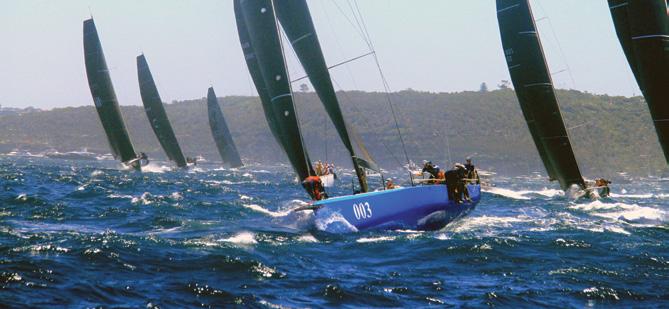
Among the fleet was the American TP52 Warrior Won, owned and skippered by Newporter Chris Sheehan. His boat was one of 12 TP52s: waterborne rocket ships that were favored to win the cherished Tattersall Cup, awarded to the boat with the best corrected time.
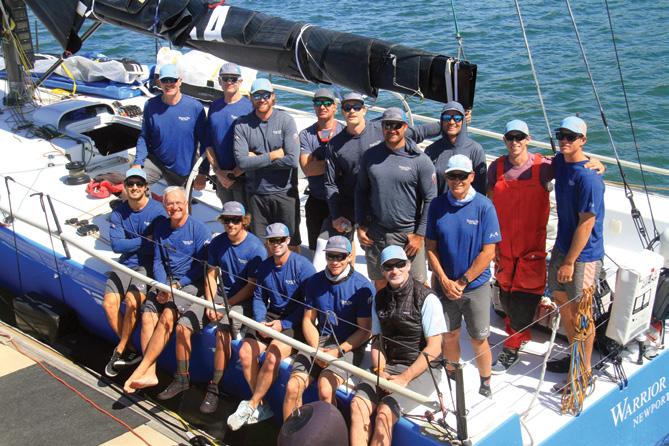
After a mad dash down the coast and a hair-raising night of surfing down monster waves in gale conditions,
Warrior Won crossed the finish line at 13th place overall while securing a hard fought fourth place in the Tattersall Cup standings. Warrior Won’s corrected time was two days, 17 hours, and one minute. Her actual running time was 1 day, 22 hours and 14 minutes.

After the race, Sheehan, 57, said, “We were very pleased. A number of portions of the race we were leading the pack of TP52s with a good shot at winning the
race. We had a couple of tactical and navigational decisions that didn’t go our way. All of a sudden, four hours later, we found ourselves behind. Kudos to the navigators and tacticians on the other TP52s… local knowledge seemed to help. We left it all on the course. The last 30 miles up Storm Bay was incredibly, brutally hard upwind sailing. Vicious 30 to 45 knots of upwind sailing. We’re all very tired and glad to be off the water.”
Four-time Canadian Olympic sailor Richard Clarke, Warrior Won’s watch captain, said, “In the last 70 miles, we had just as much of a chance to win as anybody. Sailing in extreme conditions, 30-50 knots with huge waves, can pretty much turn things sideways. That last night was something else. Pitch black, big waves, 30-40 knots running, blown sails, broken people.
“We went down a wave so hard and fast that we turned the boat into a submarine. Boat speed of 24 down to six in the blink of an eye. (We) exploded our storm kite and knocked a crewman unconscious. Yep. This Hobart race lives up to its reputation. Oh, and 50 knots upwind in the river against two knots of tide was the icing on the cake.”
The fourth-place finish capped a successful racing year for Sheehan and
Warrior Won. Earlier this year, the yacht won both the RORC Caribbean 600 and the Gibbs Hill Division of the Newport to Bermuda Race. There were seven international boats in the fleet. Warrior Won was the only American boat entered.
The international crew of American, Canadian, Spanish, and Aussie sailors onboard was a well-oiled machine. “Most of us have been together on this or other boats for a long time,” Clarke told SpinSheet prior to the race. “We had the boat shipped from the East Coast to Sydney. It took us four days to put her together. We spent five days fine tuning our procedures and testing some new sails.”
The weatherman cooperated with the boat’s big rig. “We have a sweet spot at 12-35 knots of wind,” says Sheehan. “The boat likes heavy weather reaching. When we are racing, we don’t pay attention to the other boats. We sail our own race one boat length at a time.
“This race is like Everest. It’s a challenge you’ve got to take seriously. You are sailing in an unforgiving body of water against the best sailors in the world. Yesterday’s honors are yesterday’s news. We train hard and practice hard. We expect to win every time we go out.”
Sheehan runs a no-frills operation. Freeze dried vegetarian haute cuisine. No alcohol onboard even at the dock. Below decks is a jungle of carbon fiber cross bracing. The two-person nav station is sandwiched behind the generator. Light is at a premium.
The TP52 is Sheehan’s second boat named Warrior Won. The previous one, an XP44, finished a disappointing 47th in the 2017 Hobart. “The name Warrior Won pays homage to the warrior that resides in each of us,” Sheehan says. “At times of stress, your inner warrior keeps you going. It’s a force of energy that helps you focus on the positives. I rely on my inner warrior to dig deep.”
Your faithful SpinSheet reporter was on the water for the start of the race, bobbing up and down on a 35-foot trawler as the fleet roared out of the two heads that protect the harbor. The seas


were roiled by the incoming tide as well as a significant chop created by the horde of spectator boats that escorted the fleet on their trek south.
Half of the Sydneysiders spend Boxing Day watching cricket on TV; the other half find a spot to watch the Sydney Hobart start. It was crazy out there. Four or five choppers hovering overhead plus a couple of drones made for crowded skies.
Thousands of fans lined the shoreline, and more than 1000 spectator boats crowded the sea lanes, providing for a gauntlet for the race boats to navigate. At one point, I thought our photo boat was going over… we broached in a sixto eight-foot swell. Two photographers almost went overboard. All in a day’s work for yours truly. #
Dinghy racers are athletes. To get maximum performance out of yourself and your boat—and to ensure it’s a relatively comfortable and very fun experience—it pays to invest in your fitness. You must develop a fitness routine that best supports the kind of action your one-design boat demands.
Many dinghies thrive on dynamic maneuvers including roll tacks and roll gybes. Success results from sailors springing quickly into action with explosive motions. Building strength and endurance is important—but adding plyometrics into your fitness can help you. It’s a great way to practice getting your muscles to work to their full potential with little or no advance warning. This is because it emphasizes the stretchshortening cycle: muscle action when active muscle lengthening is immediately followed by active muscle shortening.
Plyometrics are often called “jump training” because so many of the potential exercises involve, well, jumping. They are not the kind of exercise to start with if you don’t already have a solid fitness
By Kim Couranzbase! Because they are so dynamic, they can also stress knees and ankles, so steer clear if those are trouble spots for you. As a bonus, many plyometric exercises require no equipment and very little space.
For already fairly fit dinghy athletes, adding a few plyometric exercises into your training sessions can help you rocket up to the new high side through a tack. Be sure to warm up before and cool down after your plyometrics, and absolutely remember to stretch (more on that next month). And add them in and increase your reps gradually.
Here are a few plyometric exercises you might want to add into your fitness practice:
Give yourself the power to get to the high side with these simple but effective moves.
• Set up with your feet slightly wider than your hips, toes straight ahead (or close to it).
• Squat by bending your knees to about a 90-degree angle.
• Jump as high as you can!
• As you land, return to your squatting position.
• Start out with two or three sets of 10 repetitions. Increase from there!

• Want to add an extra challenge? Extend your arms overhead as you jump and/or turn your jump into a tuck jump, bringing your knees close to your chest at the apex of your jump.
Also called skater jumps, this exercise helps produce dynamic side-to-side movement— perfect for staying nimble as you balance your dinghy:
• Stand on your left leg and bend your knee to single-leg squat.
• Jump as high and as far to your right as you can.
• Land only on your right leg, sinking into a squat.
• Jump as high and as far to your left as you can.
• Land only on your left leg, sinking into a squat.
• Start out with two or three sets of 10 repetitions (left + right = one repetition).
Whether you love ‘em or hate ‘em, they’re good for you! And they build explosive power for your arms, which comes in super handy during mark roundings/spinnaker sets and the like.
• Stand with your feet roughly hip width and squat low.
• Put your hands on the ground, roughly shoulder width, and jump your feet back into a plank position.

• Do one standard pushup, returning to plank position.
• Jump your feet forward so they’re right behind your hands, still on the floor—so you’re like a frog.
• From that position, jump as high as you can, lifting your arms overhead.
• Land back into a squat position.
The Pocket Yacht Company has been named one of the top boat dealers in North America by Boating Industry, a marine industry trade publication. Boating Industry announced the Top 100 Dealers during a black-tie gala on November 16 in Orlando, FL. Entering the 18th year of the Top 100 in 2022, the program honors the best of the best across the entire boating industry. “This year’s Top Dealers program brought on a stack of new applicants and new competition to the program along with very strong returns from multi-year winners. And we’re very excited to highlight the accomplishments of all, as new dealers join the ranks and others join forces to become one,” Boating Industry editor-in-chief and Top 100 program director Adam Quandt said. “I am so proud of our team for earning the Top 100 Dealer Award for the third year in a row,” says Pocket Yacht managing director and owner, Mark Schulstad. “It’s been a fantastic year full of growth and we are thrilled to provide a positive ownership experience from start to finish.” pocketyachtco.com
The American Boat and Yacht Council (ABYC) has placed four newcomers, including renowned marine industry journalist Tim Murphy, in key positions at the organization. These new team members will further support strategic initiatives within the education, membership, marketing, and finance departments. “We are fortunate to both attract and retain talented individuals as part of our staff at ABYC,” ABYC president John Adey said in a statement. “I take pride in the fact that most of our staff has been here for many years, and this is an exciting time of growth and development with new people who have already hit the ground running.” Tim Murphy, an award-winning marine journalist and author for more than 30 years, has been involved with ABYC since 1998. He supported the rollout of ABYC’s Marine Electrical Certification; designed and edited ABYC certification study guides as a contractor, and co-authored (with Ed Sherman) Fundamentals of Marine Service Technology, a marine-trades textbook for secondary and post-secondary education. Now a full-time staff member, Murphy has taken on the role of education project manager to oversee the creation of ABYC curriculum and certification materials, and other key responsibilities to grow ABYC’s technical education and content creation capabilities. Sarah Kramer comes to ABYC after eight years as the membership and database manager for the Restaurant Association of Maryland. As member services manager she will support the organizational goal of growing and maintaining membership at all levels. Adrienne Hurst earned a marketing degree from University of Mary Washington and worked with a range of organizations including a marina in eastern Maryland where she became familiar with the importance of hiring ABYC certified technicians. She will support ABYC’s outreach efforts and content development as the new marketing coordinator. Doreen Barret has over 20 years of finance experience, most recently 15 years at Integrated Medical Professionals and their nonprofit Integrated Medical Foundation. She will be assisting with financial transactions for the ABYC and the ABYC Foundation as the new bookkeeper. Visit abycinc.org/theteam for ABYC’s staff contact information.
The Marine Retailers Association of the Americas earlier this month named its 2022 Great Dealerships to Work For. The dealers were honored on December 7 as part of the MRAA’s Dealer Week, the organization’s annual conference and expo in Austin, TX. “Our certified dealers work hard each year to continue to improve their employee experience by not only surveying their teams and learning more about their work culture, but also by working with their teams to create solutions to issues identified by the survey,” Liz Keener, MRAA certification manager, said in a statement. “Many dealers find the employee satisfaction survey is one of the most beneficial elements of the certification program, as their team is integral to their success.” A record 27 dealerships qualified for the award by earning an overall score of 90 percent or better on the Marine Industry Certified Dealership Program’s annual Employee Satisfaction Survey. Administered anonymously through the MRAA, the survey asks employees of certified dealerships to answer 32 ranking questions about overall satisfaction regarding their unique dealership’s customer relations, employee satisfaction, leadership, management, and reputation. Congratulations to Tri-State Marine in Deale, MD, for being awarded one of the 2022 Great Dealerships to Work For! Keith Rhodes, owner of Tri-State Marine, says: “It’s always nice when employees are happy—it results in not only a better work environment, but greater profitability. I am a strong believer that the only long-term, sustainable competitive advantage that a company has is its culture, which comes down to its people and their happiness. We’re thrilled to have been able to accomplish this for yet another year.” tristatemarine.com


S&J Yachts,

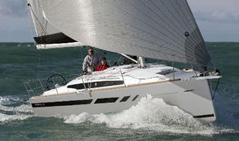
for
Yachts With 10 locations from Maine to Florida, S&J Yachts is one of the largest full-service yacht brokerages on the East Coast. Our extensive reach & marketing helps find top buyers quickly. S&J Yachts has established an outstanding reputation for integrity and service! Our experienced team of brokers is committed to serving both buyers and sellers, ensuring fair practices and complete satisfaction with every deal. Whether sail or power, we’ll help you find the perfect fit! 410.639.2777 info@sjyachts.com www.sjyachts.com
Deanna Sansbury developed her love of the water when she and her husband lived aboard their 40’ catamaran, eventually taking a sabbatical to cruise the Islands. Upon returning, she began selling sailboats for a large brokerage in Annapolis, winning the Beneteau Top Gun award for most new sailboats sold in North America. By focusing on providing exceptional customer service and listening closely to her clients’ needs, she is a top pick for buyers and sellers looking for outstanding results. Cell: 410.629.9186 Deanna@YachtBrokersofAnnapolis.com www.YachtBrokersofAnnapolis.com

Jon and Anne Hutchings established YaZu Yachting in Deltaville in 2020. They’ve been Deltaville based ’Dream Merchants’ since 2005. They lived the dream cruising across the Atlantic from South Africa to the Caribbean on their 35’ sailboat. They worked as captain and mate on charter catamarans, before settling on the Southern Chesapeake. They are committed to helping people realize their dreams and establishing relationships that last long after the purchase or sale of a boat. 804.567.0092 anne@yazuyachting.com www.yazuyachting.com
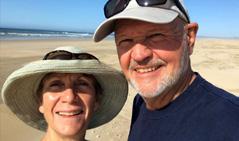
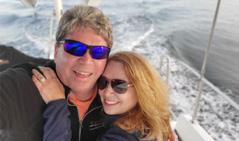
(Jangada) 35’ Hunter Legend ‘90 Solar. Wood stove. Cozy interior. Wellmaintained. Freshly painted hull. Ready to sail! $38,700 Located in Pasadena, MD. Call Dave at 240.285.4016 www.jangada.info


Sabre 38' Mark 1 Divorce sale. $10,000 Boat needs work. Sails included. Make this boat your winter project! Call 410.703.5699 or email 21401naptown@gmail.com
42’ Chris Craft Comanche ‘69 ECLIPSE is for sale. 1969 Chris Craft Comanche
Yacht View Brokerage, LLC announces our new 8% commission, which may include complimentary Annapolis dockage (for yachts above 100K and up to 80’ in length) and 10% co-brokerage listing commission! We will successfully market your yacht from her current East Coast location or arrange delivery to our secure dockage for yachts from 30’-80’ (Power/Sail). Located 20 minutes from BWI airport, our listings are easily inspected and demonstrated to prospective buyers. Targeted print advertising & Yachtworld.com MLS internet exposure with wide angle/high resolution photos and video. 30 yrs proven customer service! Call/text Capt. John Kaiser, Jr. @ 443.223.7864. Email your yacht’s details for a full market appraisal to: john@yachtview.com www.yachtview.com

(Bon Chance) 29’ Paceship Chance ‘74 Lively, actively sailed and well-loved cruiser/racer. Dependable Atomic 4 engine, new exhaust, newly replaced windows, Harken roller furling. In the water and ready to sail! $8,900 Call 443.822.4096 or artholtjr@gmail.com

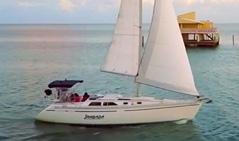
Catalina 30 ‘90 1990 Catalina 30 Tall Rig, Wing Keel. Free slip until spring at current owner’s private dock. Virginia, lower Potomac. New main. Cream color hull. MX25 engine. $19,000 703.963.8611
42. Good CBYRA racing record; coastal cruising history. Westerbeke diesel, Autostream 3-blade feathering prop. Solar on hard Bimini; 125 AMP alternator; 5 Group 31 AGM batteries and 1000-watt inverter. At Bay Bridge Marina. Health forces sale. $30,000 Much more info and pics, call Steve at 856.905.3822 or email stephentoner17@gmail.com
$32,500 410.490.1191 studioda35@gmail.com
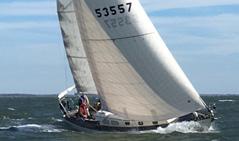
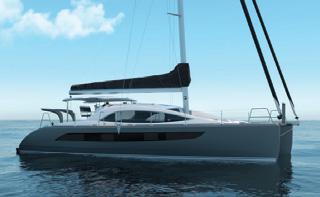

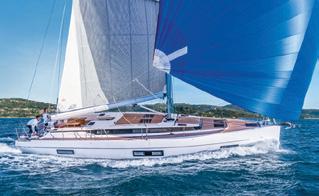
37’ Excess 11 ‘23 Model Year Boat of the YEAR winner! This new catamaran has won awards around the worldCome see what it’s all about! 37-foot Performance cruiser! Hull #75 IN STOCK 410.269.0939 or www.CrusaderYachts.com
41’ Jeanneau Sun odyssey 410 ‘23
Hull #242 IN STOCK! Very wellequipped! Call your Favorite CYS broker today for more info! Available now for Spring delivery 410.269.0939 or www.CrusaderYachts.com
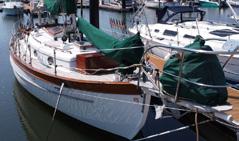
49’ Excess Catamaran 15 ‘23 Pulse Line Rigged. Loaded with cruising gear and elegance not yet seen in family cruising cats! Hull #14 IN STOCK!! Deposit NOW - Close/Deliver Spring 2023! Call your favorite CYS Broker for more info! 410.269.0939 or www.CrusaderYachts.com
38’ Sabre 386 ‘04 Quality build midsize cruiser. Cruise Equipped, Air, Solar, Updated Electronics and moreNew Main. Asking $215,000 Call Dan Bacot 757.813.0460 or www.CrusaderYachts.com

44’ Jeanneau 44DS ‘14 3 Cabin, 2 Head layout on this late model Beauty! Thruster, Watermaker, Solar, Low hours, lightly cruised. Dink and Davits are SOME highlights! Asking $315,000 JUST Listed, won’t last long! Call Rod Rowan 703.593.7531 or www.CrusaderYachts.com
49’ Jeanneau Sun odyssey 490 ‘23 Performance Cruiser, Furling mast, Air, Gen, Thruster, and more, ready to go cruising! Hull #168 IN STOCK!! Deposit NOW - Close/Deliver Spring 2023! Call today to schedule a showing with your favorite CYS Broker 410.269.0939 or www.CrusaderYachts.com
39’ Excess 12 ‘22 Another Excess Boat of Year Winner! Cruise Ready Excess 12 #29 is ready for delivery NOW! Call CYS offices and speak with your favorite Broker! $650,000 410.269.0939 or www.CrusaderYachts.com
46’ Jeanneau Sun odyssey 469 ‘13


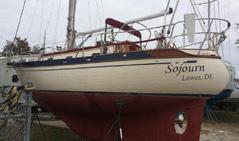
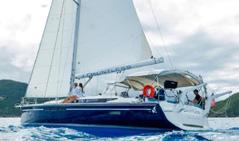
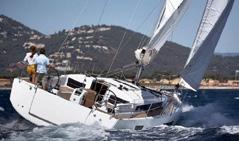
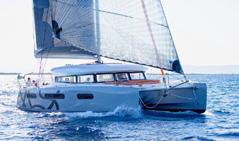
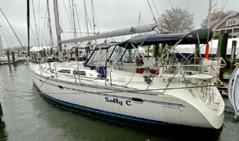
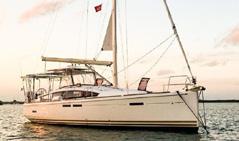
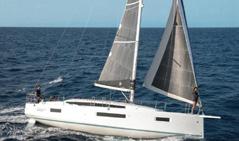
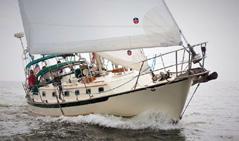

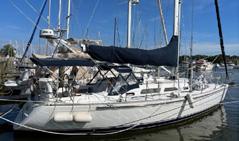

Lightly used on Chesapeake only, 3 Cabin, 2 Head layout, Genset, Electric Halyard and Primary Winches, Raymarine Electronics and more. REDUCED! $319,000 Call Dave van den Arend 443.850.4197 or www.CrusaderYachts.com
51’ Jeanneau Sun odyssey 519 ‘17 Great equipment list on this late model Jeanneau. All set for coastal or offshore cruising. Blue Hull, Davits, Genset, Thruster, Air Con, Water Maker, Solar and more! 3 Cabin, 2 head layout. Price reduced, asking $395,000 Call Gordon Bennett 410.739.4432 or www.CrusaderYachts.com
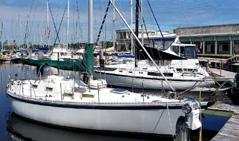
40’ Pacific Seacraft 40 ‘97 & ‘06
Beautifully equipped & maintained, ready for next offshore adventure! Great maintenance & upgrades. Asking $275,000 Call Rod Rowan 703.593.7531 today! www.CrusaderYachts.com
47’ Catalina 470 ‘05 2 cabin - 2 Head (and shower) layout. Large spacious layout with lots of cruising gear. Genset, Air, plus more! Asking $250,000 Won’t Last Long! Call Dave van den Arend 443-850-4197 or www.CrusaderYachts.com
Read boat reviews online at spinsheet.com
409 Chester Avenue,

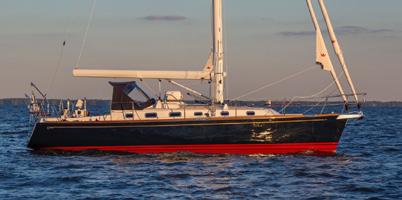
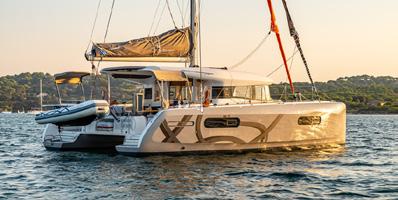
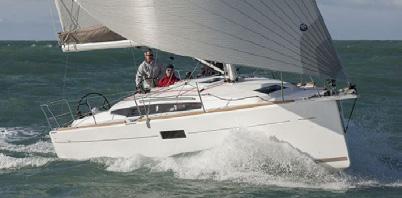



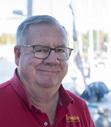
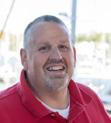

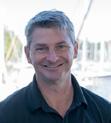

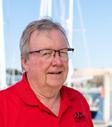





(Chanticleer) 42’ Endeavour ‘89
Bavaria Yachts NEW C42, C25 In Stock Now for Winter Delivery. Quality Performance Style. Enjoy the expertise of German engineering. 2022 delivery is still available for some models. Thinking of a new boat or wanting to sell your Bavaria? Contact S&J Yachts 410.639.2777 www.sjyachts.com
Leave 10% Brokerage Fees in Your Wake Jay Porterfield • Knot 10 Sail (410) 977-9460 • jay@knot10.com
2001 Lagoon 380 3-stateroom owner version. Generator, ac/heat. Call Jay 410.977.9460 jay@knot10.com www.knot10.com

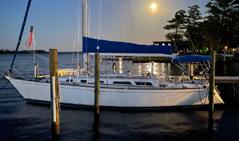
43’ Jouet 1280 Most well-designed motor sailor I have ever seen! Perfect condition. This is a must see! Visit Knot10.com and look at her! Call Jay 410.977.9460 jay@knot10.com www.knot10.com
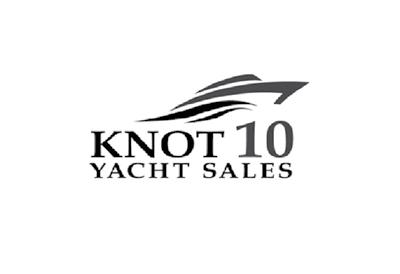
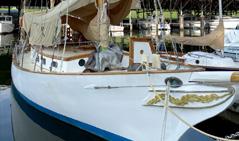
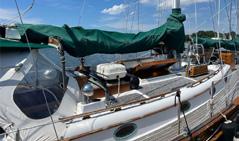

35’ Catalina 355 ‘14 Nicely equipped & very well kept. 2 spacious cabins, 1 head, AC, solar, in-mast mainsail furling, AIS (transmit & receive), dinghy & outboard, professionally installed lithium batteries w/ new wiring & invertor/charger. $205,000 S&J Yachts 410.639.2777 www.sjyachts.com
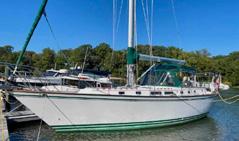
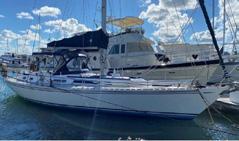
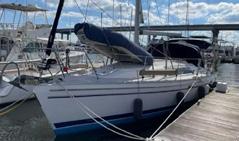
2002 Moody 38 Well-equipped and ready to cruise. Bow Thruster, Roller Fulling Boom, Arch, Dingy, New Electronics, New Sails & Full Enclosure Canvas, Much More. $220,000 S&J Yachts 410.639.2777 www.sjyachts.com
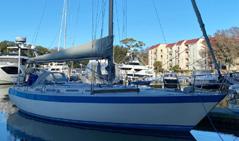
2017 Beneteau 41.1 Original owner boat. 3 cabin/1 head. New Upgrades: Lithium Batteries, Quantum FUSION MC 6000 main sail and genoa, Gennaker and Code 0, Solar Panels, Watermaker, Bow Thruster, Folding Prop, Dinghy & Liferaft. Full B&G Instrumentation including AIS. $349,999 S&J Yachts 410.639.2777 www.sjyachts.com
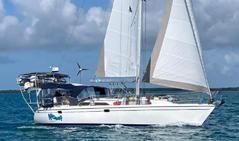


Annapolis, MD 410-571-3605 Rock Hall, MD 410-639-2777 Deltaville, VA 804-776-0604 Charleston, SC 843-872-8080 Palmetto, FL 941-212-6121
2005 Jeanneau Sun odyssey 54 DS Captain’s layout. Full B&G Yacht Electronics. Call Jay 410.977.9460 jay@knot10.com www.knot10.com www.SJYACHTS.com
Southerly Yachts 37’-57’ NEW & Brokerage. Best shoal draft, bluewater boats for over 40 yrs. Sail the Bay or cross Oceans. Push button variable draft swing keel completely retracts inside hull. Several brokerage boats available: S115 - 37’, 42’, 45’, and 57’. S&J Yachts 410.639.2777 www.sjyachts.com
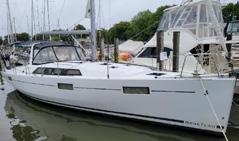
43’ Hans Christian 43T ‘91 Custom design. Modified sail plan, Mark ll interior; forward stateroom, queen pullman berth, Telstar keel w/ cutaway forefoot & skeg hung rudder for improved speed, safety and maneuverability. $135,000 S&J Yachts 410.639.2777 www.sjyachts.com
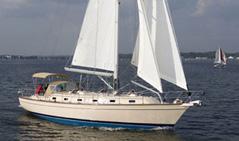
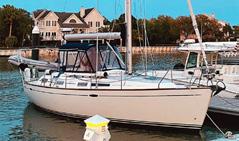
Island Packet Yachts 27’-52’ Excellent cruiser liveaboard w/ tremendous storage/comfort. S&J Yachts is the world leader in selling IPs. No team knows these boats better! We have many buyers looking now. List your boat with S&J Yachts! 410.639.2777 www.sjyachts.com To find more sailboat listings and boat reviews, visit spinsheet.com
Athena 38 1995 New Listing. Designed and built by Fountaine Pajot. Spacious, bright and airy salon. 4 double cabins, 2 heads. Attractive and performs well. Large cockpit with plenty of space on deck. $145,000 S&J Yachts 410.639.2777 www.sjyachts.com
1994 Hylas 45.5 Nice list of upgrades & prepped for long-distance cruising. Available w/ a six-month-old survey - all survey findings have been addressed. 2 cabin/2 head. Classic, functional teak Sugar Scoop transom. $198,500 S&J Yachts 410.639.2777 www.sjyachts.com
1998 Sabre 452 Rare OpportunityHull #1! Handsome Sailing Sloop. 2 cabin/2 head. Incredible woodwork, fast sailing, & great sea-kindliness. Schedule your private visit or a brokerled video walkthrough. $239,900 S&J Yachts 410.639.2777 www.sjyachts.com
17218 General Puller Hwy, Deltaville, VA Anne: 804-567-0092 | Jon: 804-567-0093 www.yazuyachting.com


Beneteau 473 ‘06 Above average condition & ready to leave the dock. 3cabin/2head. Many recent upgrades include Sunbrella (Storm) dodger/ bimini w/ custom covers, new standing & running rigging. $265,000 S&J Yachts 410.639.2777 www.sjyachts.com

38’ Alajuela 38 1974/2016 Build completed 2016 by top New England boatyard - superb cruising vessel with top quality finish. Cutter rig, bowsprit, wind vane, wind generator, tiller, classic mainsail. $174,000 Deltaville, VA. Call Jon Hutchings 804.567.0093 or jon@yazuyachting.com www.yazuyachting.com

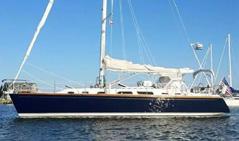
Custom Islander 56 ‘92 Lloyd’s construction, sailplan options deliver safe, efficient passage-making. Belowdecks, warm, rich cabinetry & luxurious fabrics create elegant social areas. Generous storage. Secure accommodations. Equipped for your adventures! $339,000 S&J Yachts 410.639.2777 www.sjyachts.com
41’ Fountaine Pajot Lipari ‘13 4-Cabin, 2-Head. 220V/12V. Never Chartered. Solar, Volvo 30Hp (upgrade), Flexofold prop, ROCNA 33KG, Anchor Camera, Asymm Spinnaker, Davits, Liferaft, Garmin instruments, Dinghy & Outboard. Mathews, VA. Call Anne Hutchings 804.567.0092 or anne@yazuyachting.com www.yazuyachting.com
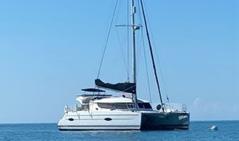
scan this code with your phone’s camera and To find more used boats, visit spinsheet.com

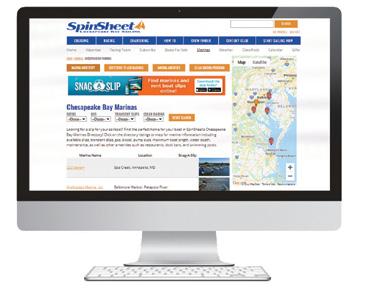


42’ Leopard 42 ‘04 Cruising catamaran, low profile. Bottom & bootstripe stripped 2022, Electric winches, Spinnaker & Code 0, Aircon, Generator, 3 cabin 2 head, 1 cabin/ head as workshop/storage, Victron Inverter Charger, Solar, SSB, Maxprops, hatches replaced. $298,900 Deltaville, VA. Call Anne Hutchings 804.567.0092 or anne@yazuyachting.com www.yazuyachting.com
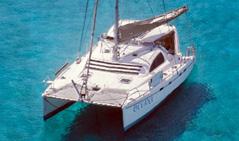
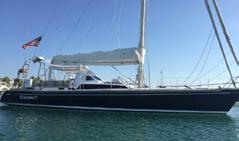
41’ Tartan 41 ‘74 Sparkman & Stephens design - sporty, sailing machine w/ flush deck! Spacious below, very well maintained. Standing Rigging 2016, 37Hp Beta Marine engine & Autostream Prop, new mainsail 2018. $49,000 Deltaville, VA. Call Jon Hutchings 804.567.0093 or jon@yazuyachting.com www.yazuyachting.com
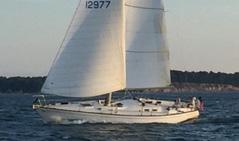
49’
49 ‘09 2
2
Electric heads, Shoal draft, Inmast furling, New batteries, Bowthruster, Marelon through hulls, Teak side decks, Generator, No Canvas, Raymarine instrument package. $225,000 Deltaville, VA. Call Jon Hutchings 804.567.0093 or jon@yazuyachting.com www.yazuyachting.com
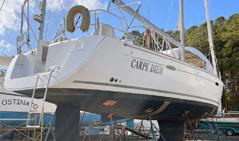
47’
Anne Hutchings 804.567.0092 or anne@yazuyachting.com www.yazuyachting.com


Electronic
are Monday to Friday, 8:30 AM to 5 PM. Pay and benefits based on experience. Our office is located at Bert Jabin Yacht Yard in Annapolis. Please email your resume to Sales@ElectronicMarine.com

Get Paid to Sail! The Woodwind schooners are hiring crew/deckhands. Some sailing knowledge is necessary. Fun people and guests - avg. $27/hour, and lots of great sea time. FT & PT. 410.263.1981 Download application at www.schoonerwoodwind.com/employment/
The Eastport Yacht Club (EYC) is hiring Head, Lead, and Assistant Sailing Instructors for the 2023 Summer Program. Please send your cover letter and resume to the Waterfront Manager at waterfront@eastportyc.org
Are you on a search for a full-time sales position that requires you to get out and enjoy the water, where all your co-workers are super cool, and where flip-flops and shorts are considered business casual? SpinSheet, PropTalk, FishTalk, Start Sailing Now, and PortBook magazines are in growth mode, and we are looking for that special advertising sales rep who understands the marine industry and knows how to work and play hard. If you think you will excel in creating sales and marketing solutions for advertisers, then we would love to chat with you. Send your resume, a description of your boating experience and interests, and a cover letter telling us why you’d be a great fit for our team today! info@spinsheet.com
Dock Hand/Dock Staff FT & PT April-October. Hourly pay plus tips $$ to tie-up boats located at a busy dock bar location in Annapolis. Boating knowledge is a plus. 410.263.1981 Download application at www.schoonerwoodwind.com/employment/
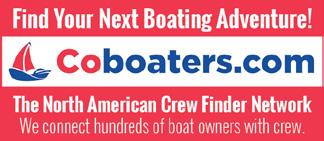

Electronic Marine Annapolis is looking for a Full or Part time installation technician and an installation assistant to install and service marine electronic and electrical systems on boats. Prior boat maintenance experience preferred. Our Full Time Tech’s work Monday to Thursday, 10-hour days. Pay and benefits based on experience. Our office is located at Bert Jabin Yacht Yard in Annapolis. Please email your resume to Sales@ElectronicMarine.com
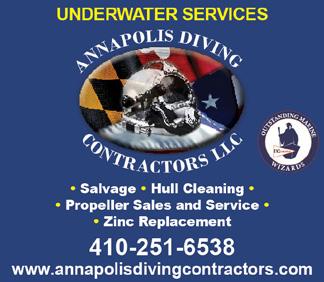
TWo P/T Delivery Drivers - Annapolis & Baltimore for three-day-a-month magazine distribution route in Baltimore and Annapolis (one per area). Compensation based upon quantity of stops. Must have a valid driver’s license in good standing, reliable vehicle, and be able to lift up to 25 lbs. Contact Beatrice at 410.216.9309 or beatrice@spf-360.com
Yacht Sales - Curtis Stokes and Associates, Inc. is hiring new salespeople for our Chesapeake area operation. Candidates must be honest, ethical and have boating experience. This is a commission only position. Contact Curtis Stokes at 410.919.4900 or curtis@curtisstokes.net www.curtisstokes.net
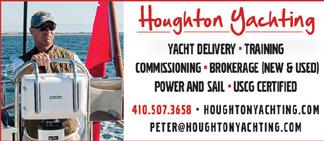
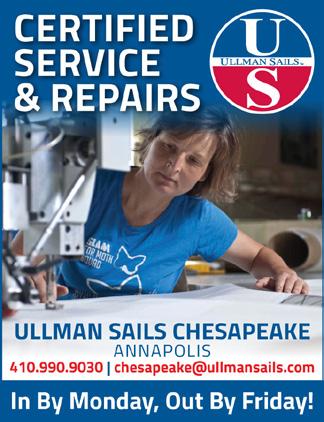

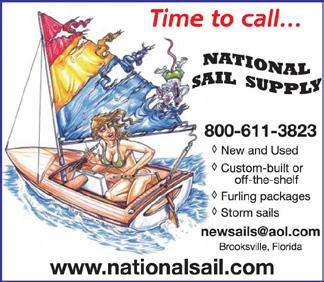

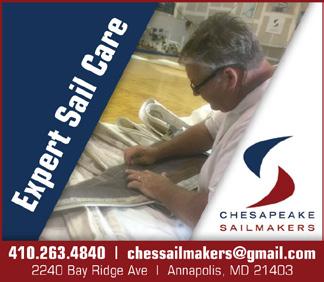
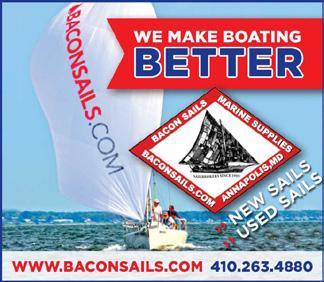
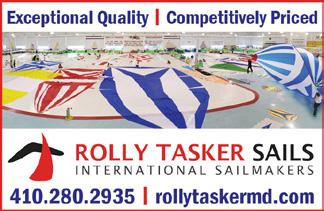


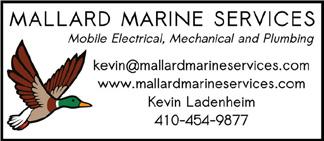
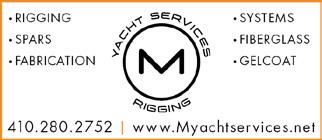
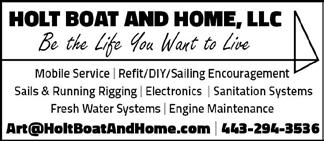
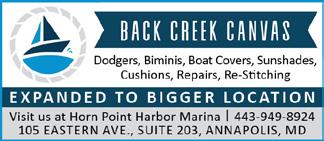
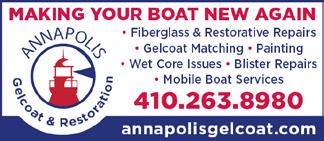
30’-50’ Deepwater Slips for Sale & Rent Flag Harbor Condo Marina on western shore of Chesapeake in St. Leonard, MD. Slip sales & rentals 410.586.0070/ fhca@flagharbor.com. Storage & Repairs 410.586.1915/ flagboatyard@gmail.com www.flagharbor.com

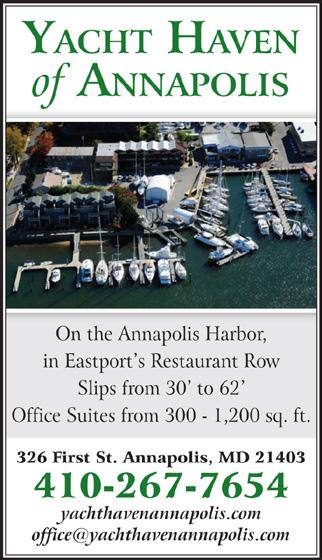
Sailor’s Wharf Marina on Mill Creek off White Hall Bay, 20-to-45-foot slips with water & 30-amp electric. 1651 Orchard Beach Road, Annapolis, MD 21409. For more information, please call 443.336.3615 or email sailorswharfmarina@gmail.com


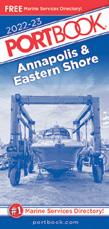
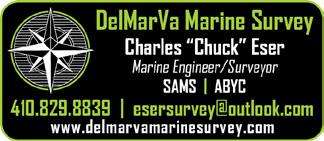

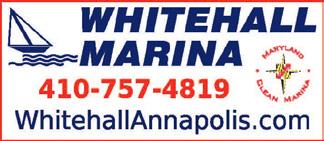
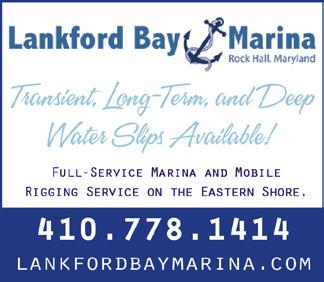
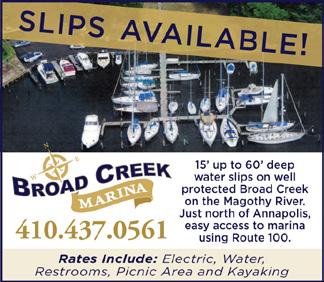
Who would have thought that the 32nd President of the United States, a known yachtsman, honed his skills in hardwater sailing on the Hudson River? In fact, Franklin Delano Roosevelt followed in a long family tradition of ice yachting.
Records at the FDR National Historic Site in Hyde Park, NY, tell the story of the active ice boating scene in the late 19th century. Sailing on ice started as a utilitarian mode of transport for the Dutch, who attached metal and wood runners to the bottoms of hulled working boats. Dutch settlers in America moved sheep and people on a Hudson River that often froze the 80 miles from Albany south to Poughkeepsie.
If you wanted your cargo transported the fastest, the choice was ice delivery and the vehicle was the Hudson River ice yacht. The incentive to go fast was driven by economics. The iceboat captains, like the skippers of the Chesapeake Log Canoes, wanted speed to get their catch to market. At some point, Chesapeake captains decided to take their work boats, refine them, and race them. It was the same with Hudson ice boats.
The recreational potential for sailing on ice yachts quickly attracted Hudson Valley residents who redesigned them with lightweight frames, gaff rigs, and cast-iron runners. Property owners along the Hudson had the resources to build
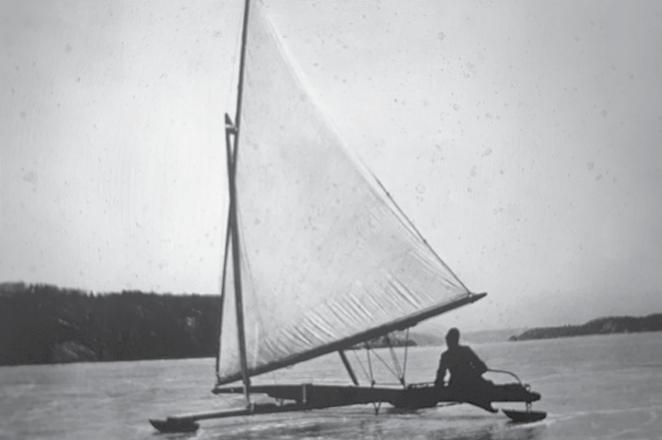
iceboats, construct buildings to house them, and hire crews to maintain them.
John Aspinwall Roosevelt and his neighbor Archibald Rogers were two of the most competitive captains, successfully building many boats. Two of them, the Icicle and Jack Frost, went on to win the biggest prize in ice yacht racing: the Ice Yacht Challenge Pennant of America. Roosevelt’s Icicle was the largest classic ice yacht, at 70 feet, with 1000 square feet of sail; she travelled to competitions on a railroad flat car.
According to the National Park Service brochure, “Ice Yachting on the Hudson River,” the Hudson River Ice Yachting Club grew out of the Poughkeepsie Ice Yacht Club, which was founded in 1861 as the first ice yacht club in America. Members of that club formed the Hudson River

# FDR's Hawk on the Hudson.
Courtesy of Archives NPS FDR National Historic Site, Hyde Park
Ice Yachting Club (HRIYC), electing FDR’s uncle John A. Roosevelt as the first commodore. The club book of 1908 lists 52 ice yachts in its roster, including the commodore’s Icicle, Vixen, and Kriss as well as FDR’s Hawk
From his family home in Hyde Park on the east side of the Hudson, FDR ventured down weekly to compete in ice yachting, especially when home from Harvard during his school days. His Hawk was built by George Buckhout, the most famous Hudson River designer. Hawk was presented to him at age 18 as a gift by his mother Sara on Christmas Day, 1901. Today, Hawk is in the museum collection at the Franklin D. Roosevelt National Historic Site at Hyde Park.
Source: National Park Service: “Ice Yachting on the Hudson. FDR National Historic Site.”
To hear Tom Darling’s Conversations With Classic Boats podcast, hold your phone’s camera over this code or click to conversationswithclassicboats.com.

Thanks to the support of our readers and advertisers, SpinSheet Magazine is able to continually provide FREE coverage of Chesapeake Bay Sailing.


Allstate Insurance 48
Annapolis Sailing School 40
Annapolis to Newport Race / A2N 2
Annapolis Trident Swim 18
Bacon Sails & Marine Supplies 21
Bay Shore Marine 24
Blue Water Sailing School & Charters 47
Boatyard Bar & Grill 20
Bowleys Marina 15
Brendan Sailing 39
CDI - Cruising Design Inc. 47
Chesapeake Boating Club 7
Coppercoat USA 17
Crusader Yacht Sales 75
Curtis Stokes & Associates, Inc.

DC Sail 40
EWE Spirit Foundation 65
Ewol Propellers 19
Fawcett Marine Supplies LLC 18
Hampton Yacht Club 41
Herrington Harbour 23
Knot 10 Yacht Sales Inc. - Jay Porterfield 77
LakeErieWX Marine Weather 53
M Yacht Services 11,46
Mack Sails 48
Maritime Fabrication ...................................... 57
Miles River Yacht Club
Mount Gay Rum.............................................. 61
New Found Metals, Inc. ................................. 55
Planet Hope / The Sailing Academy 27
Pocket Yacht Company 8
PortBook 81
Progressive Insurance 4
Quantum Sail Design Group 84
Rock Hall Yacht Club Sailing School 42
S&J Yachts

Sailrite Enterprises, Inc.
Sunsail............................................................... 9
Switlik Parachute Co....................................... 44
Vetus Maxwell, Inc
West River Sailing Club
YaZu Yachting
Youth Sailing Virginia
